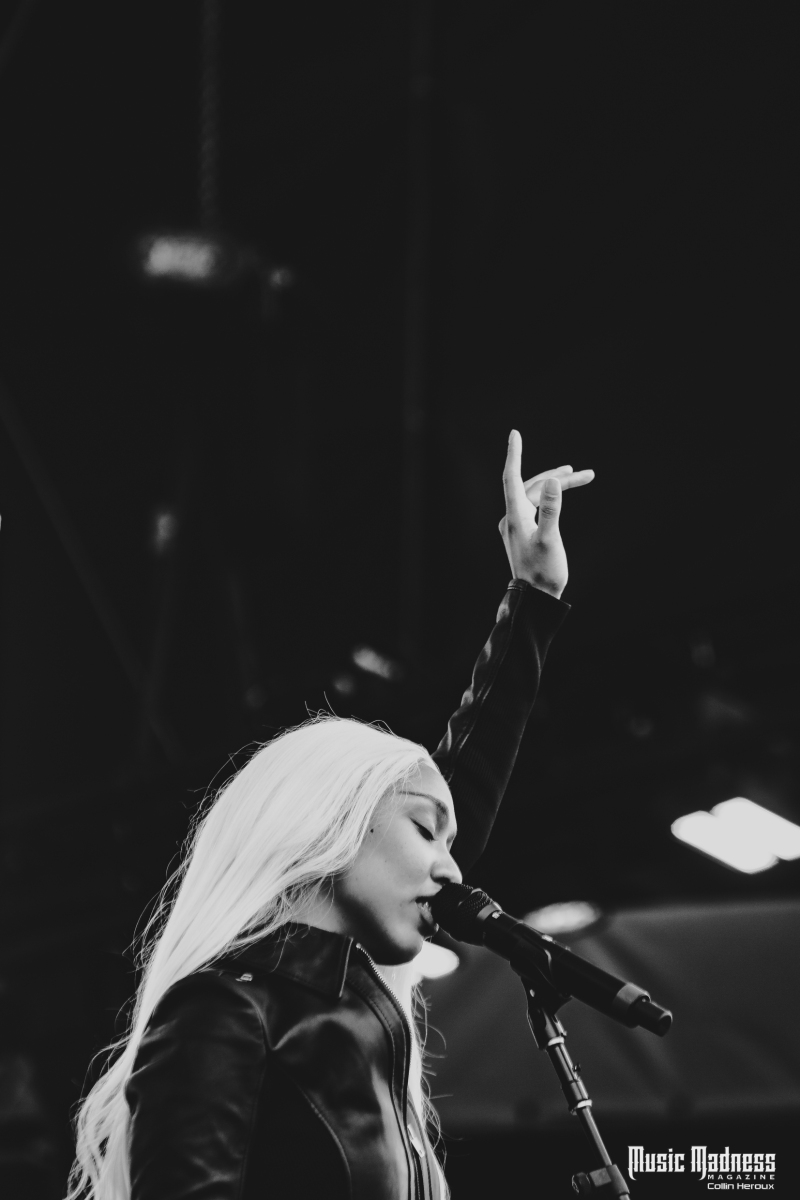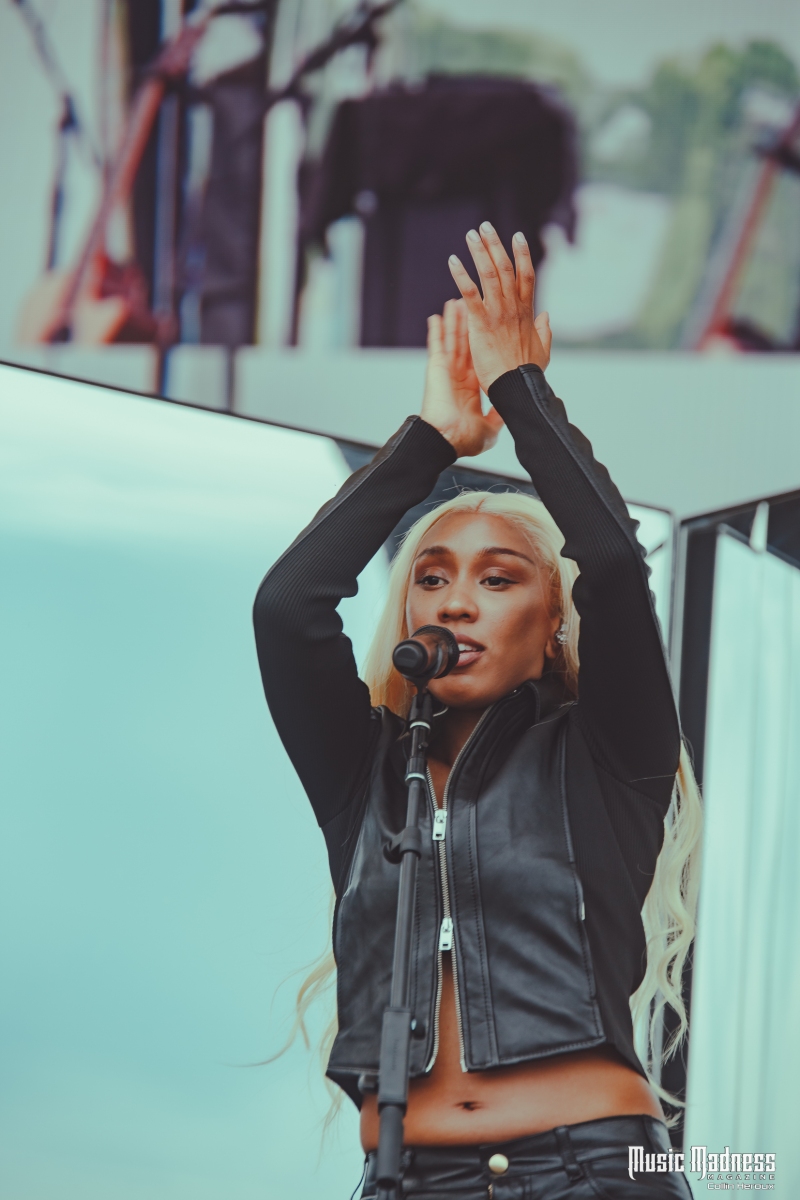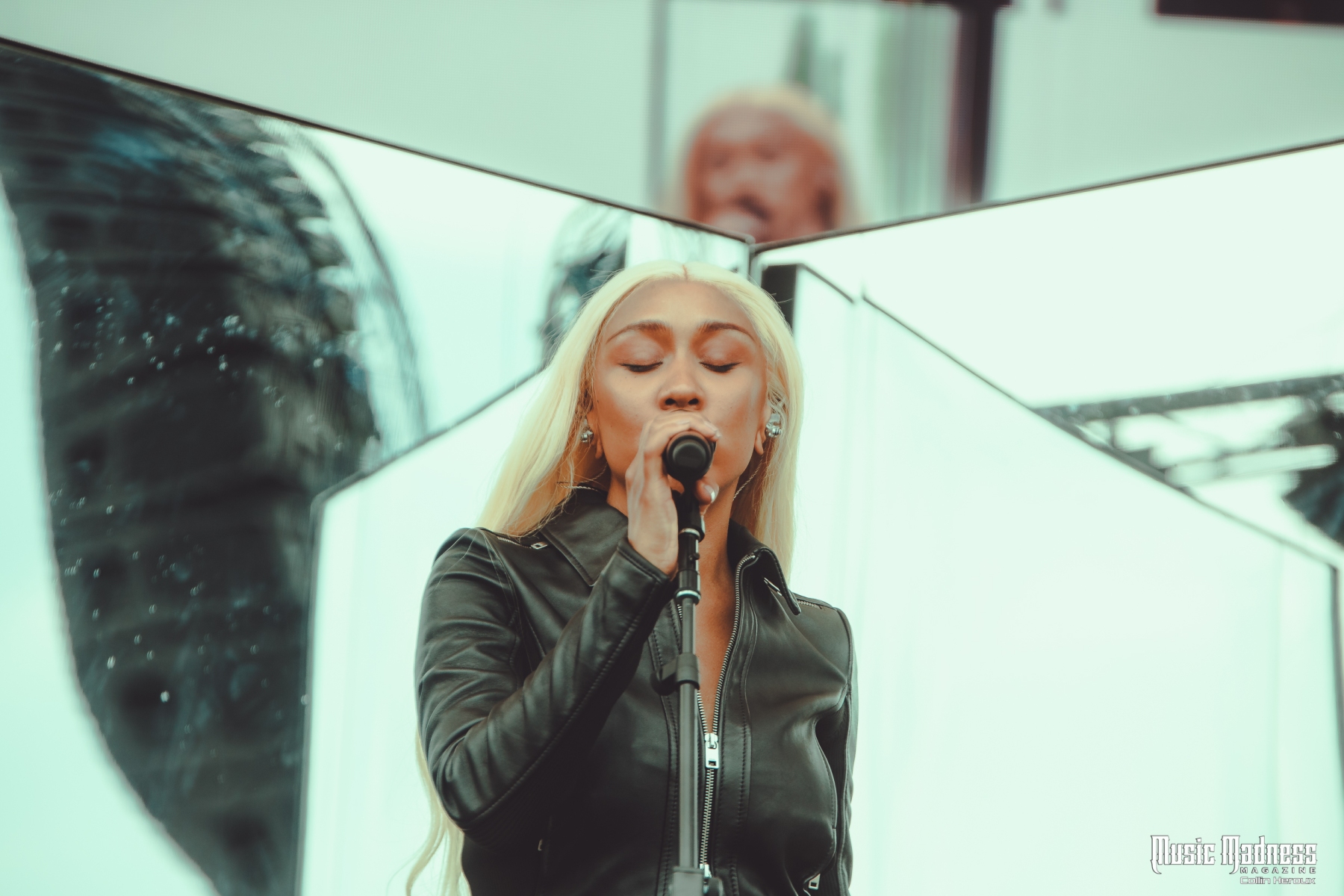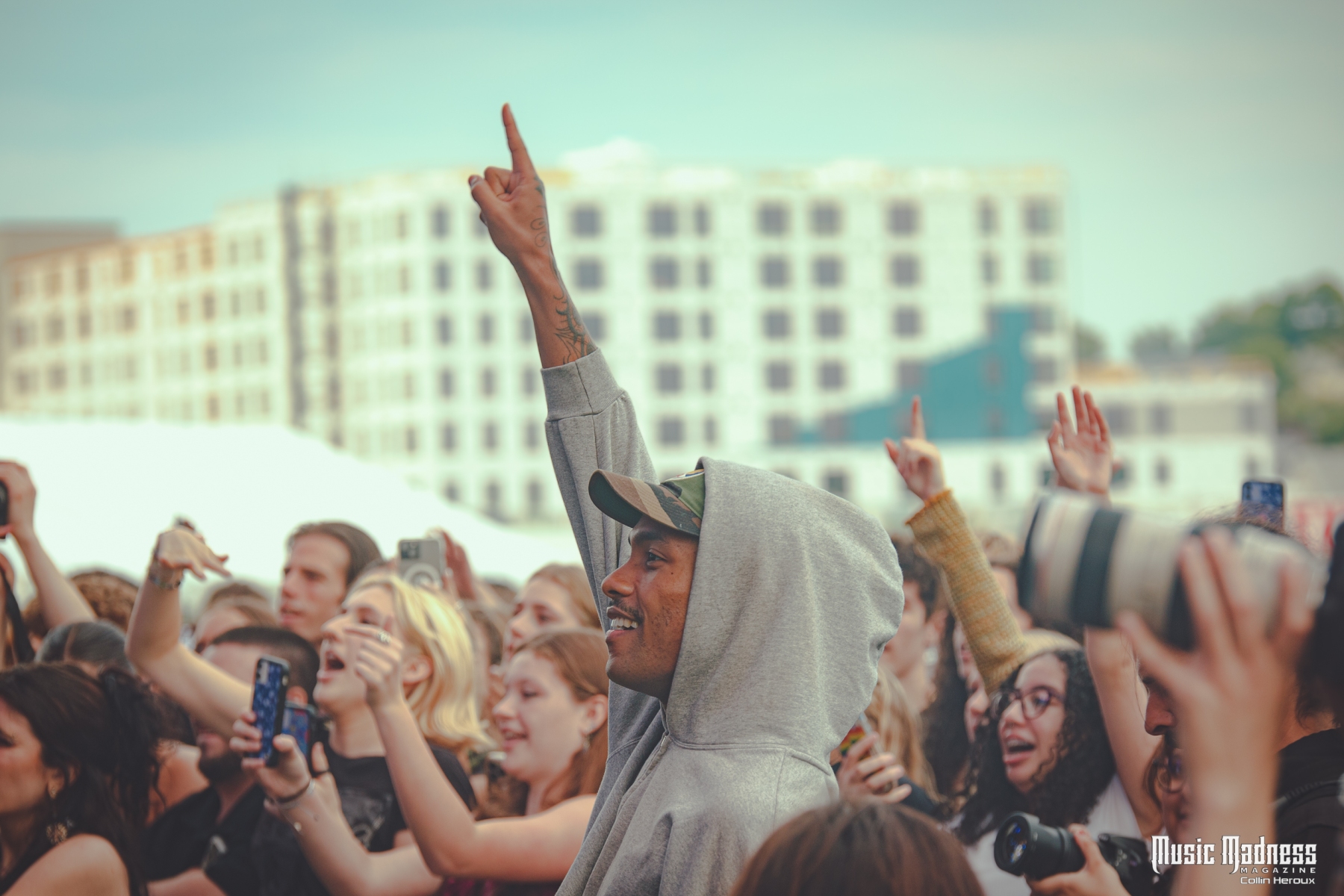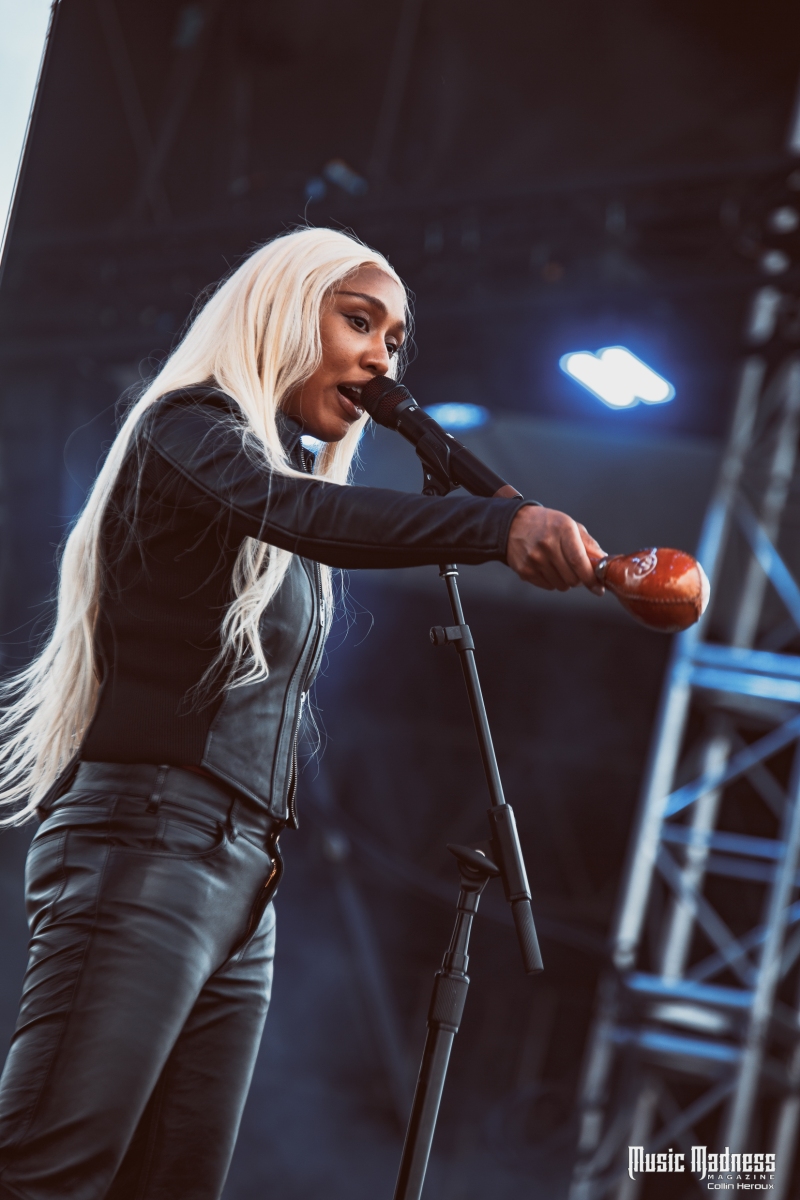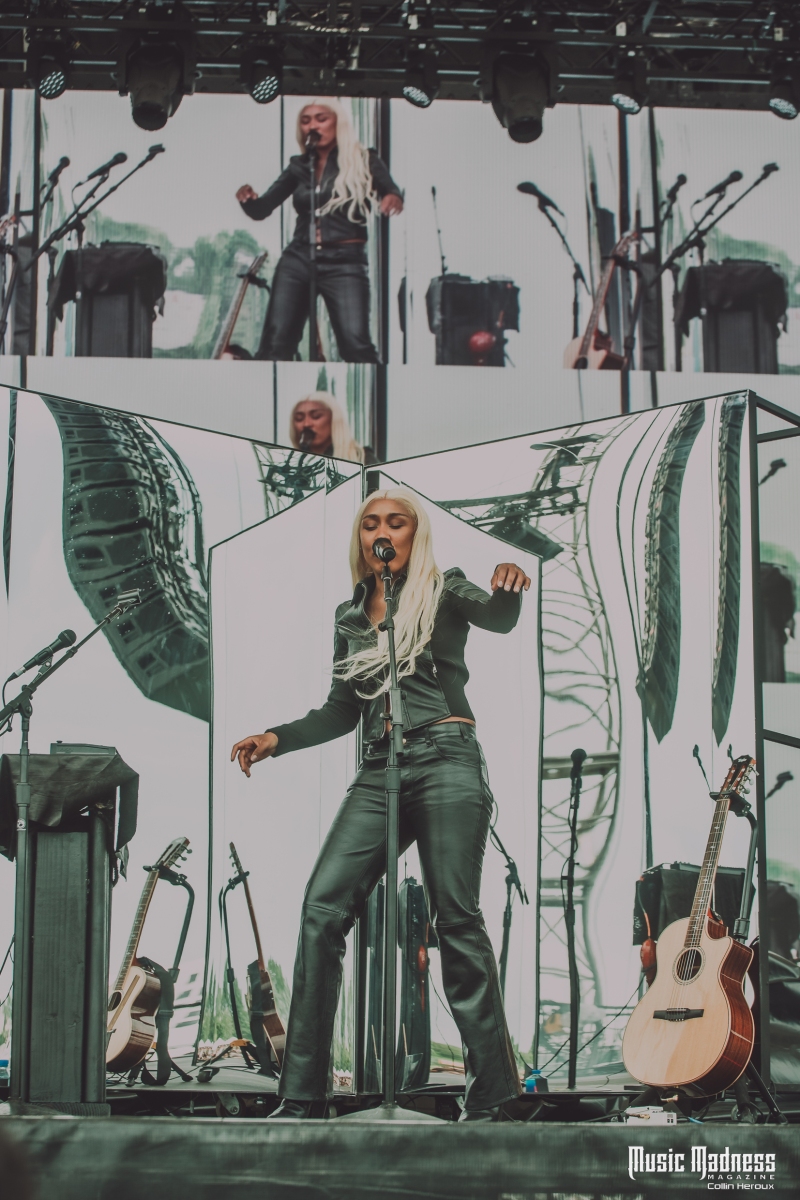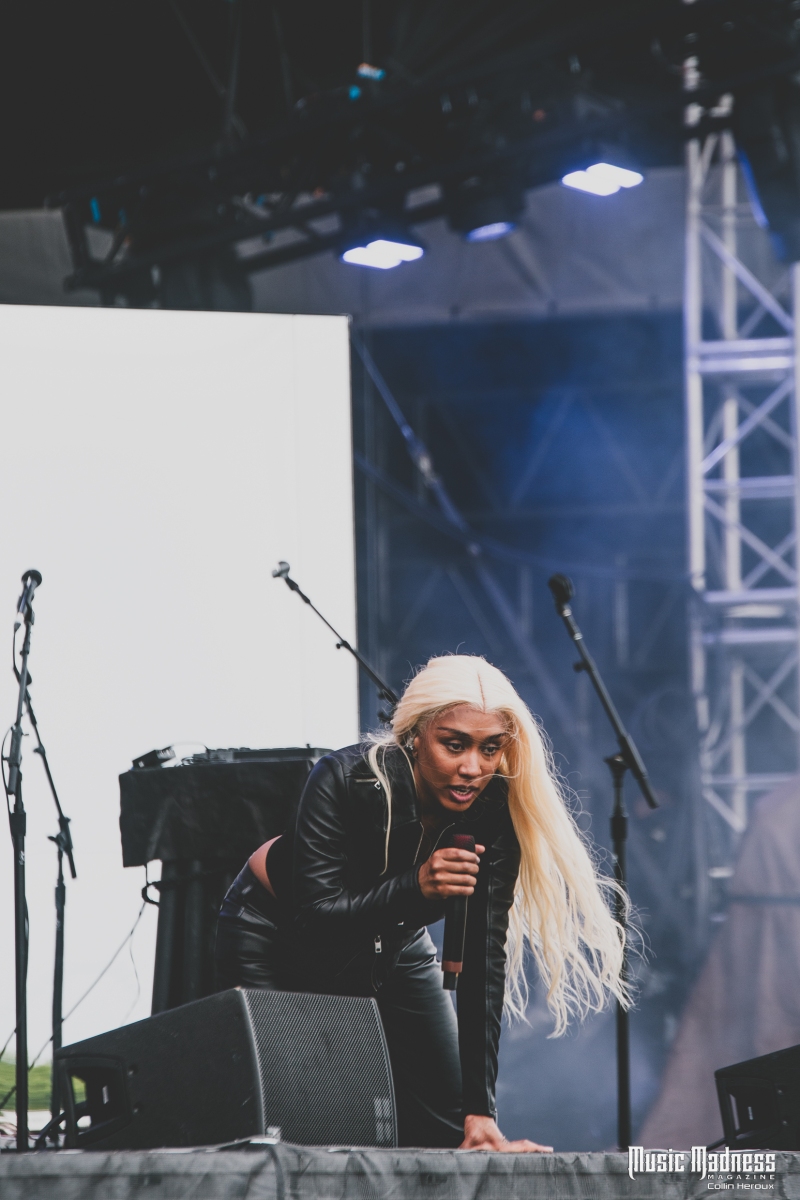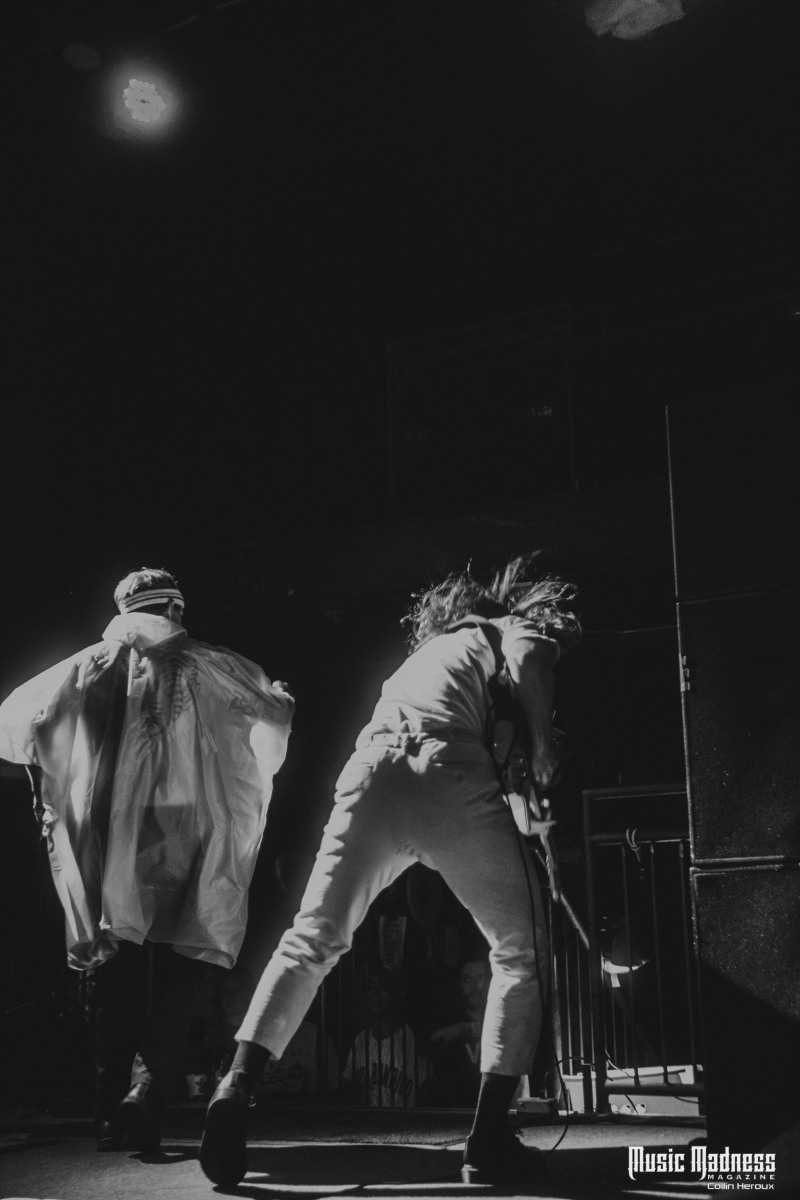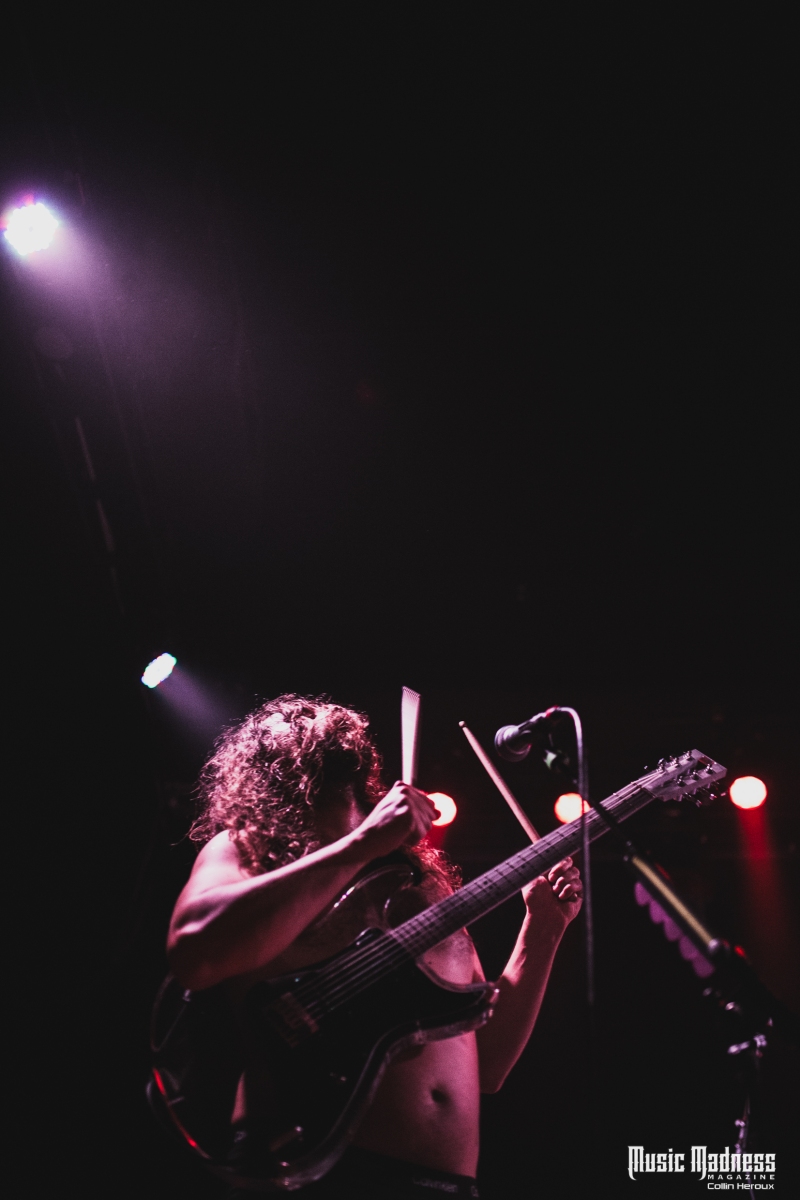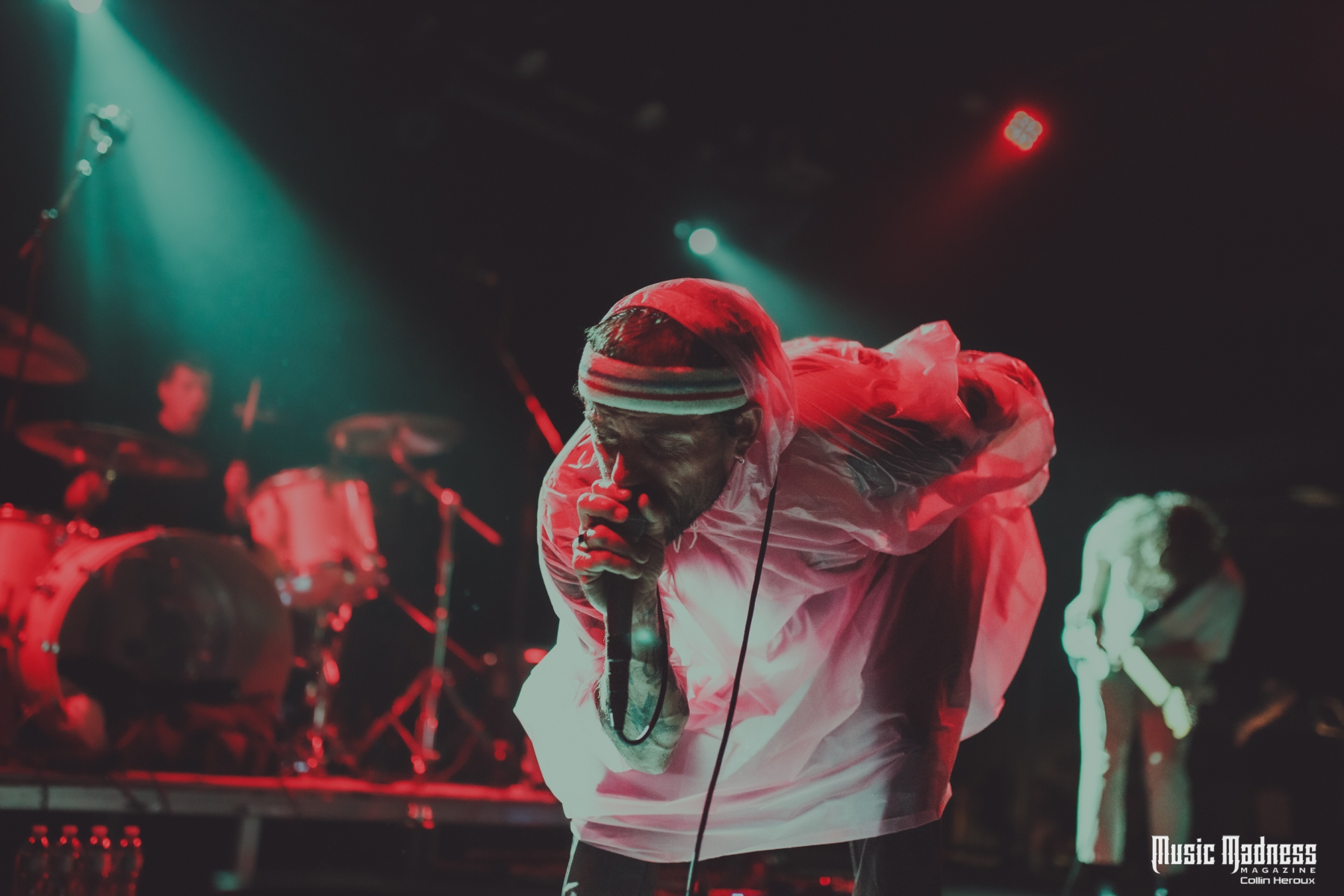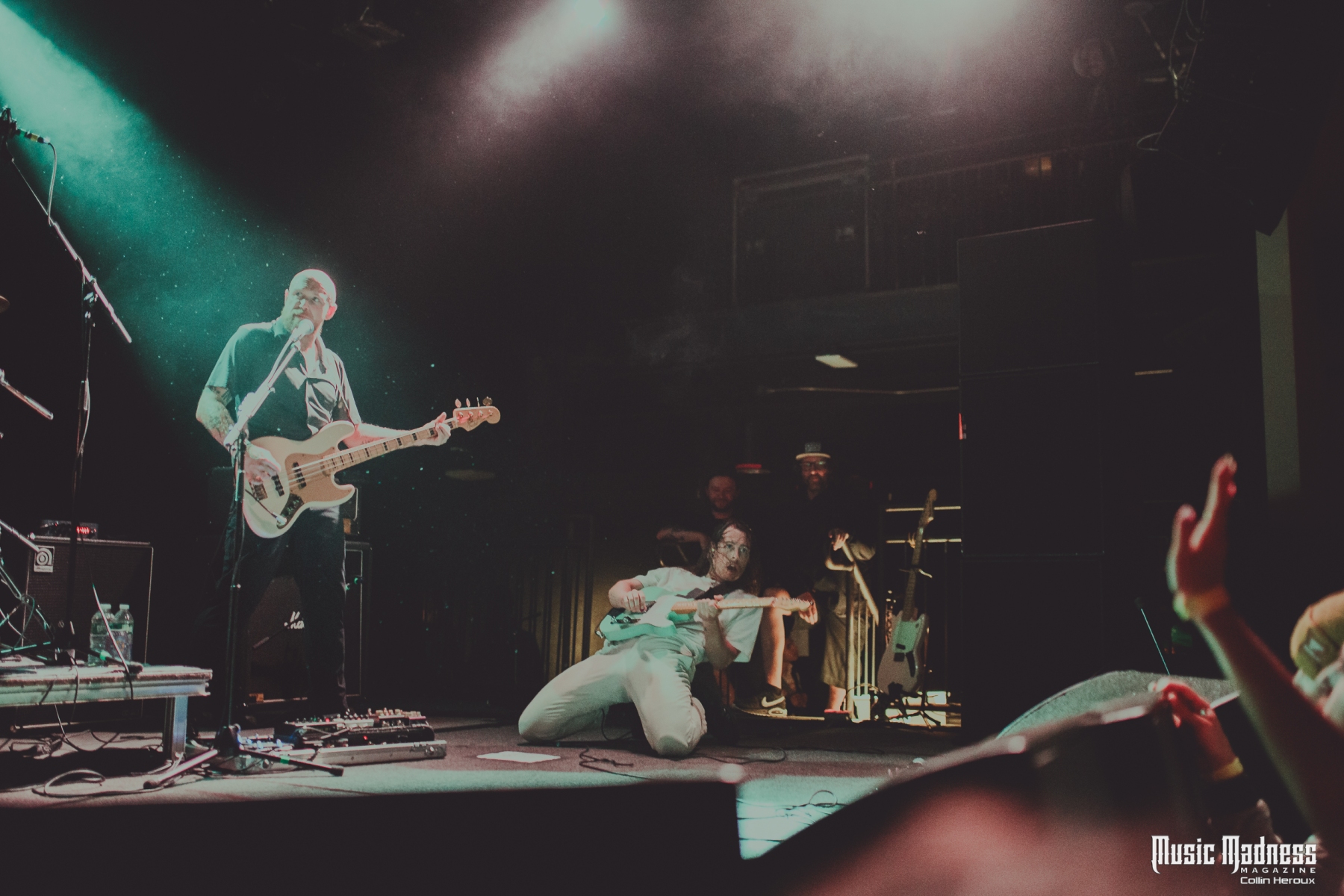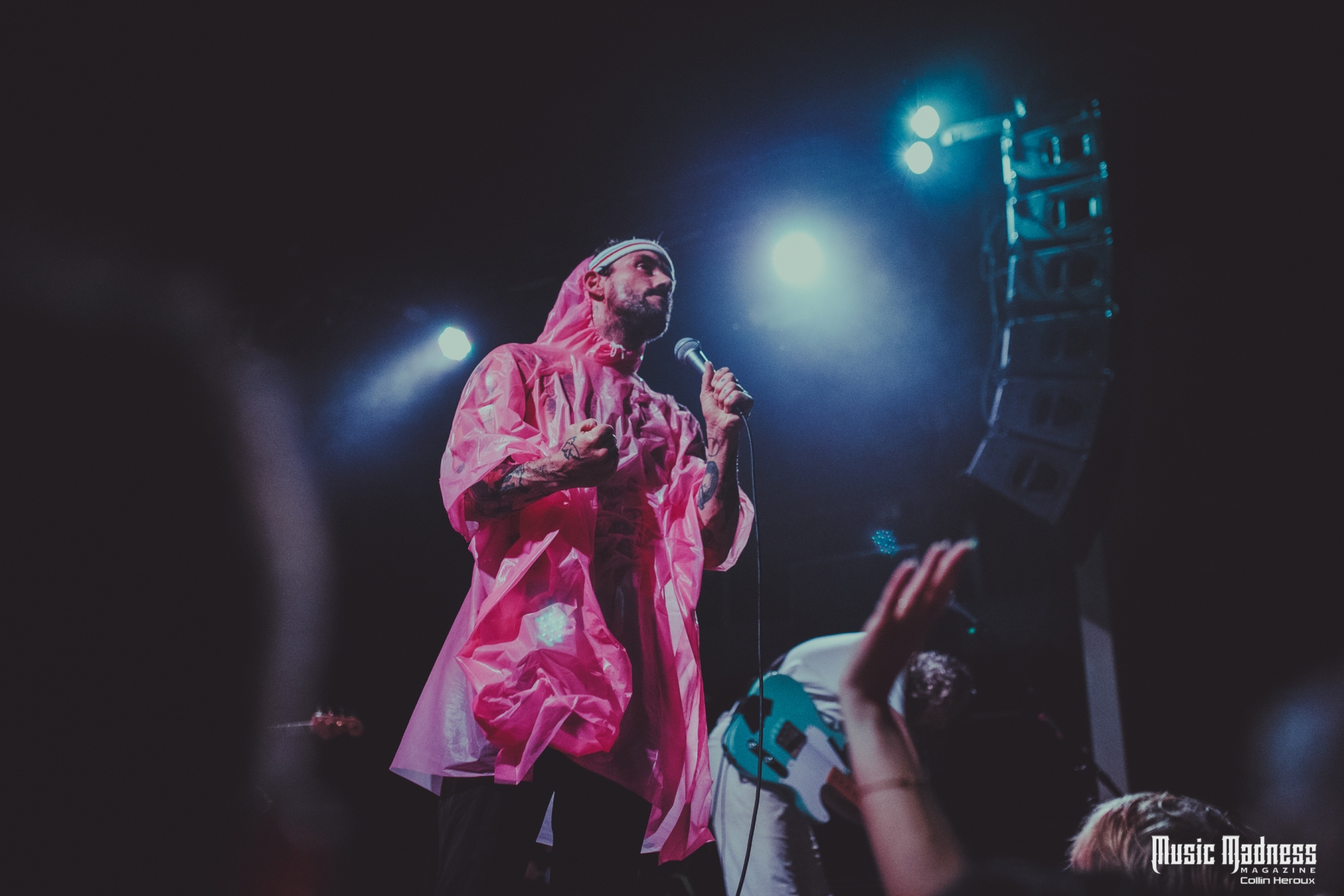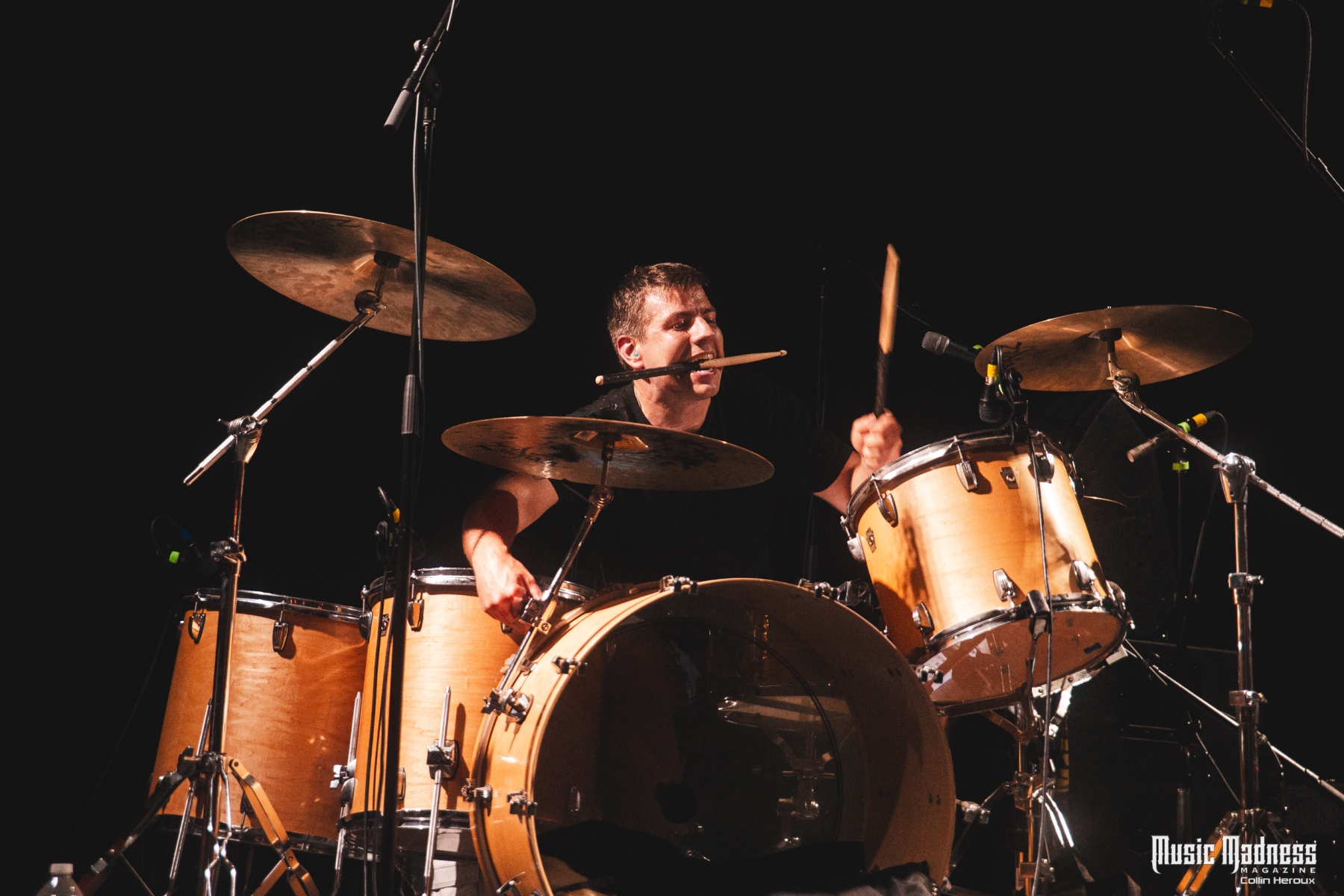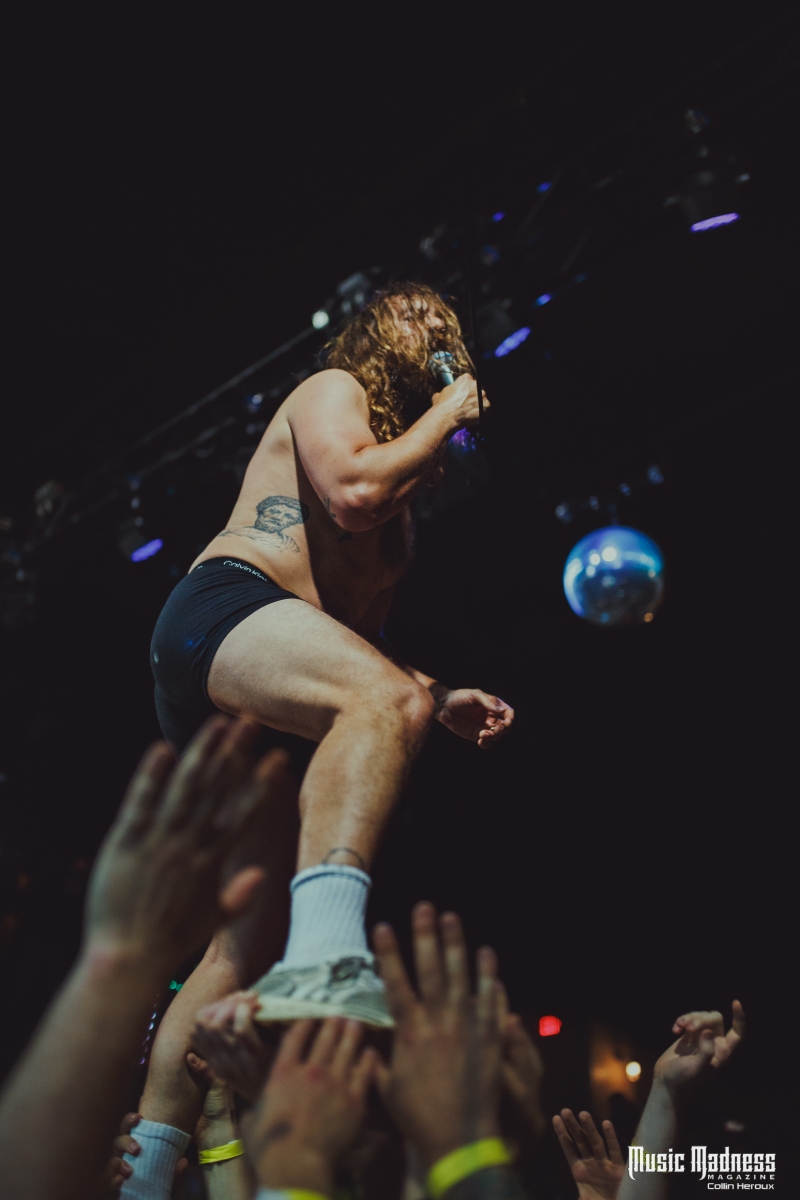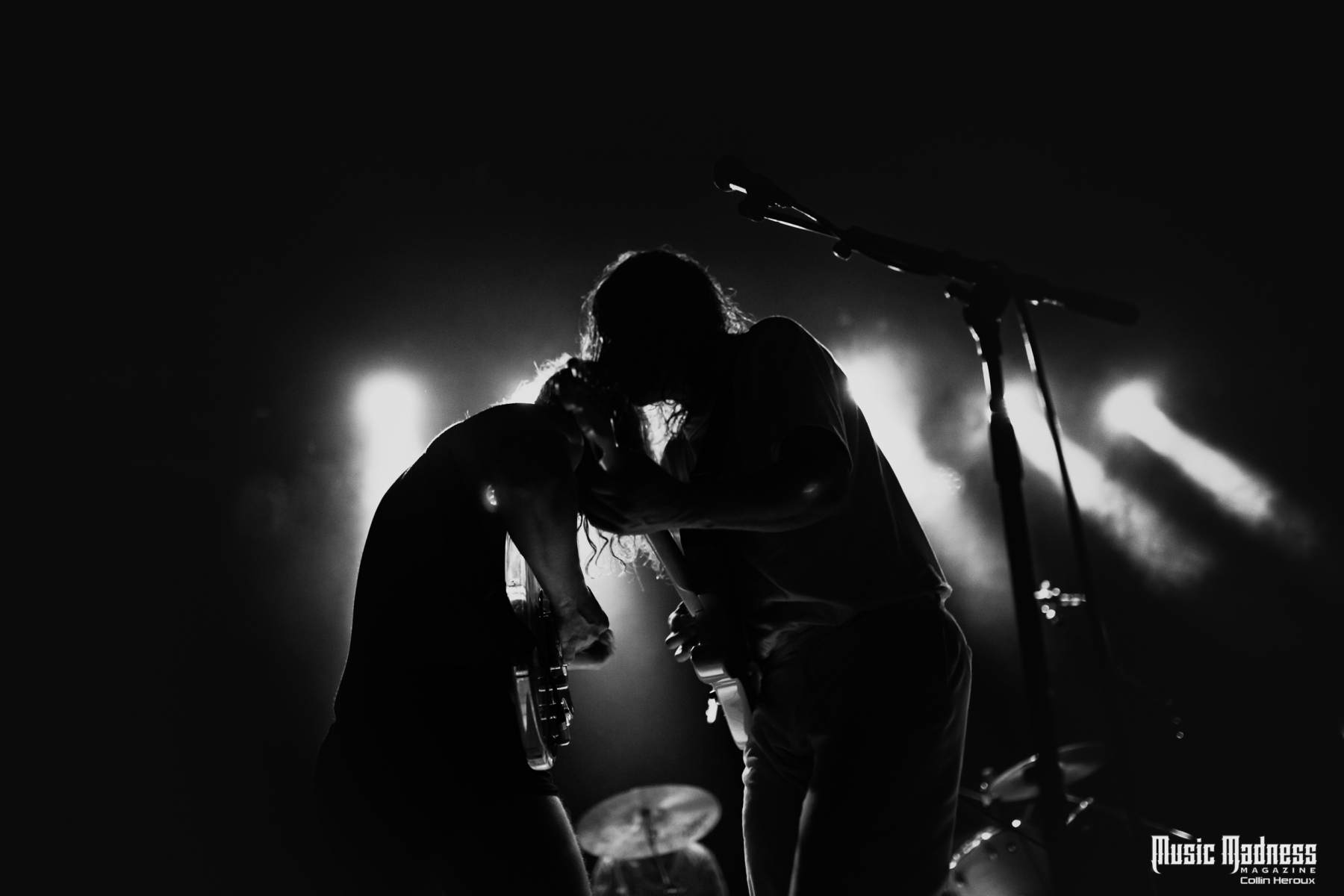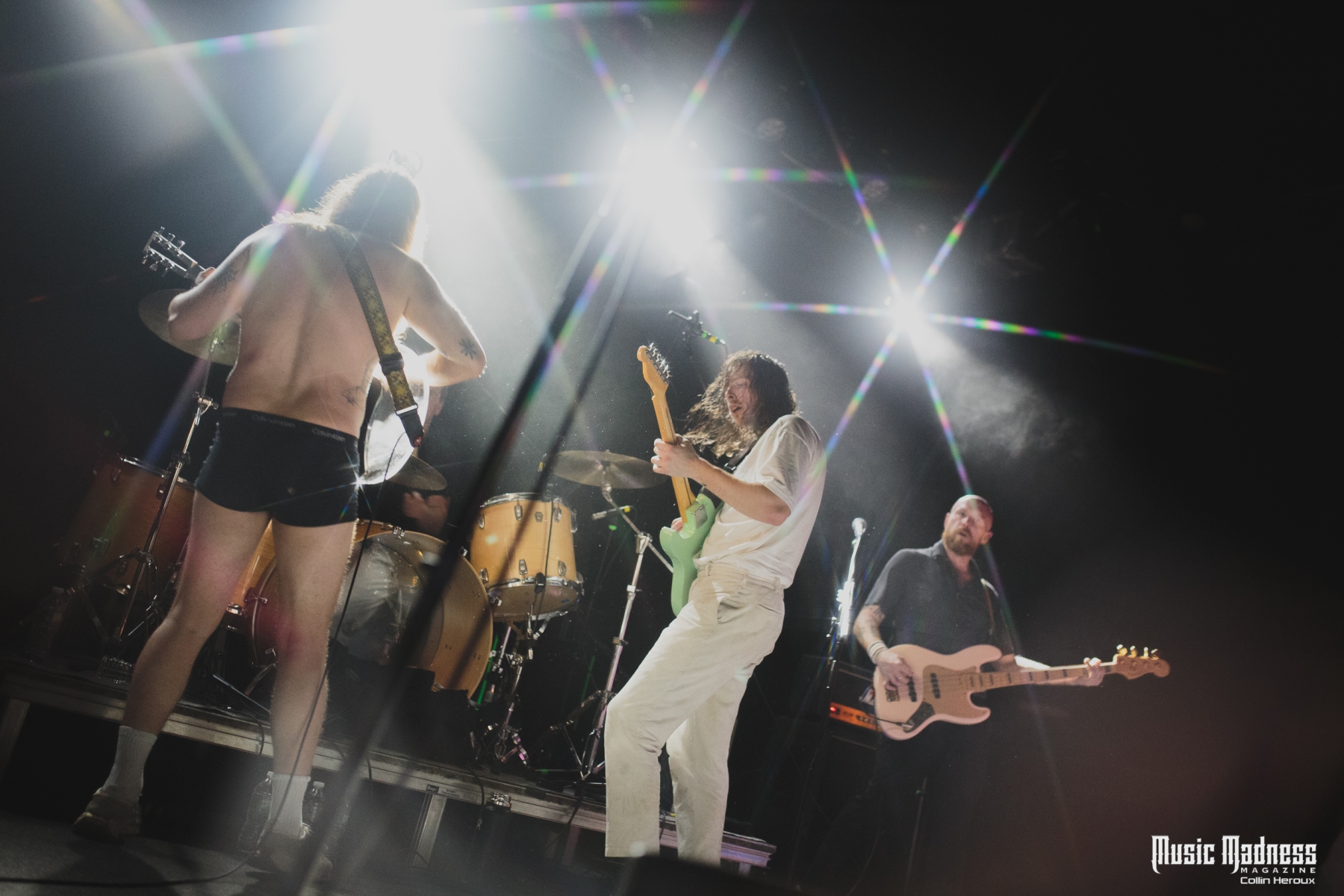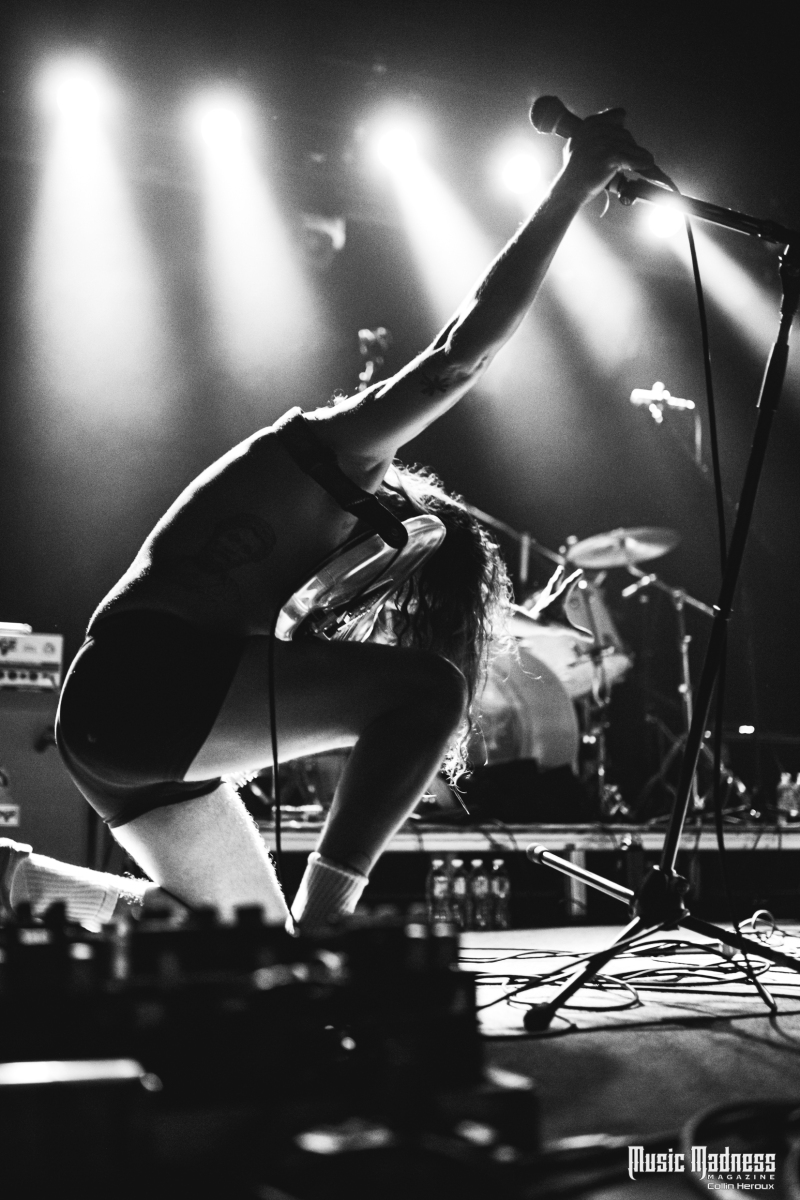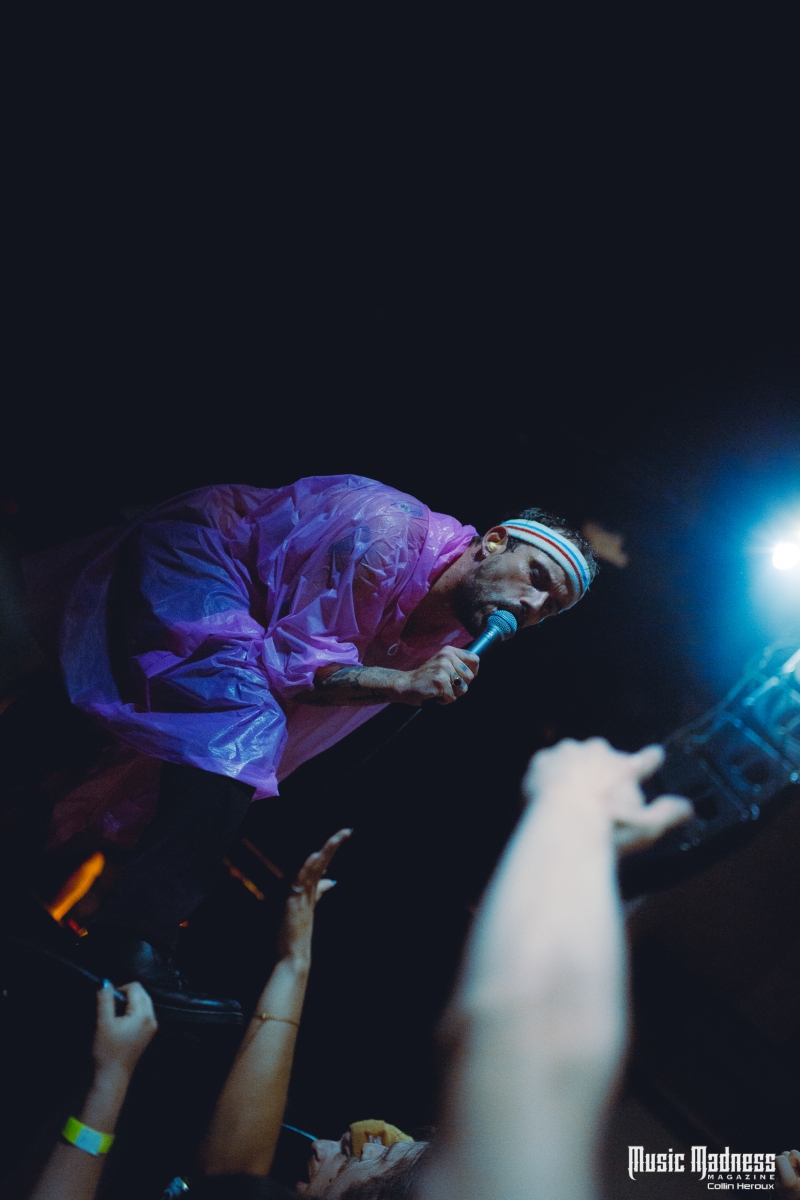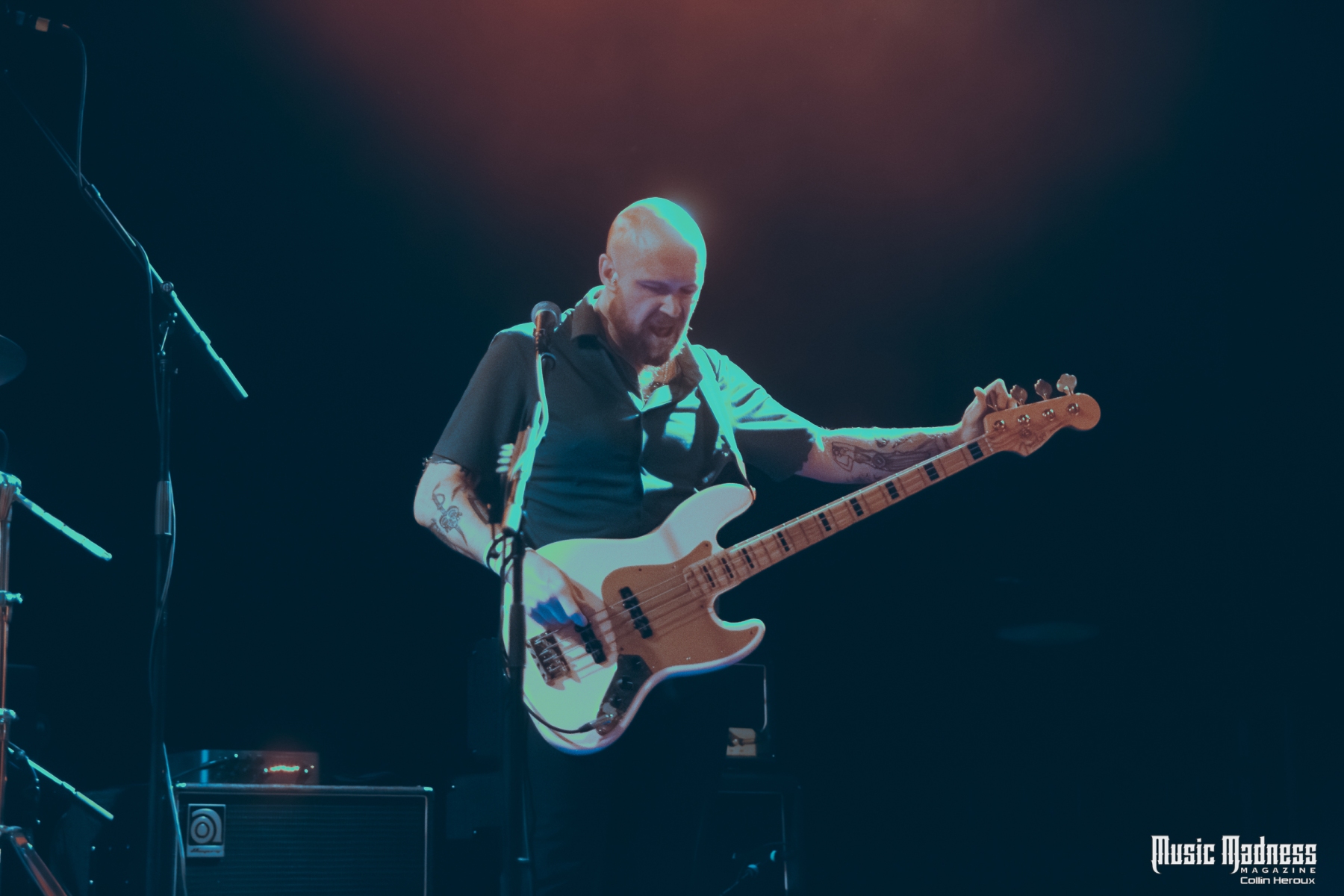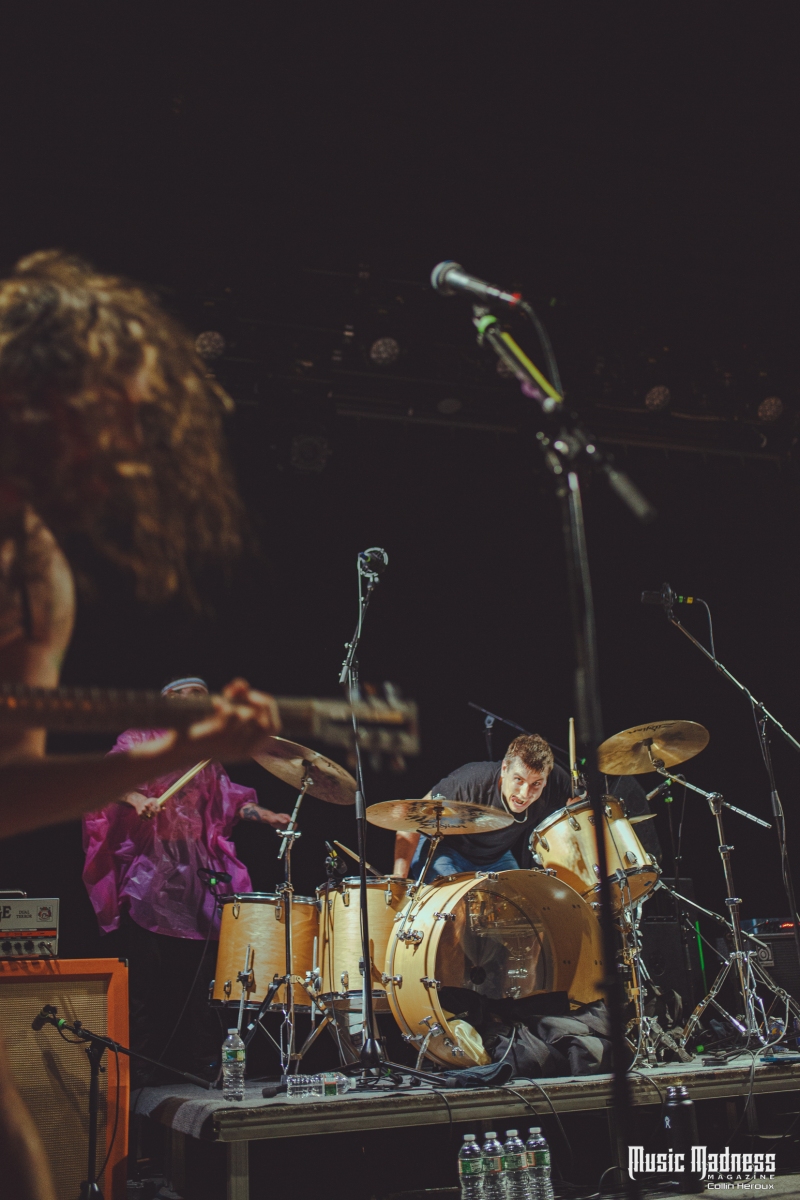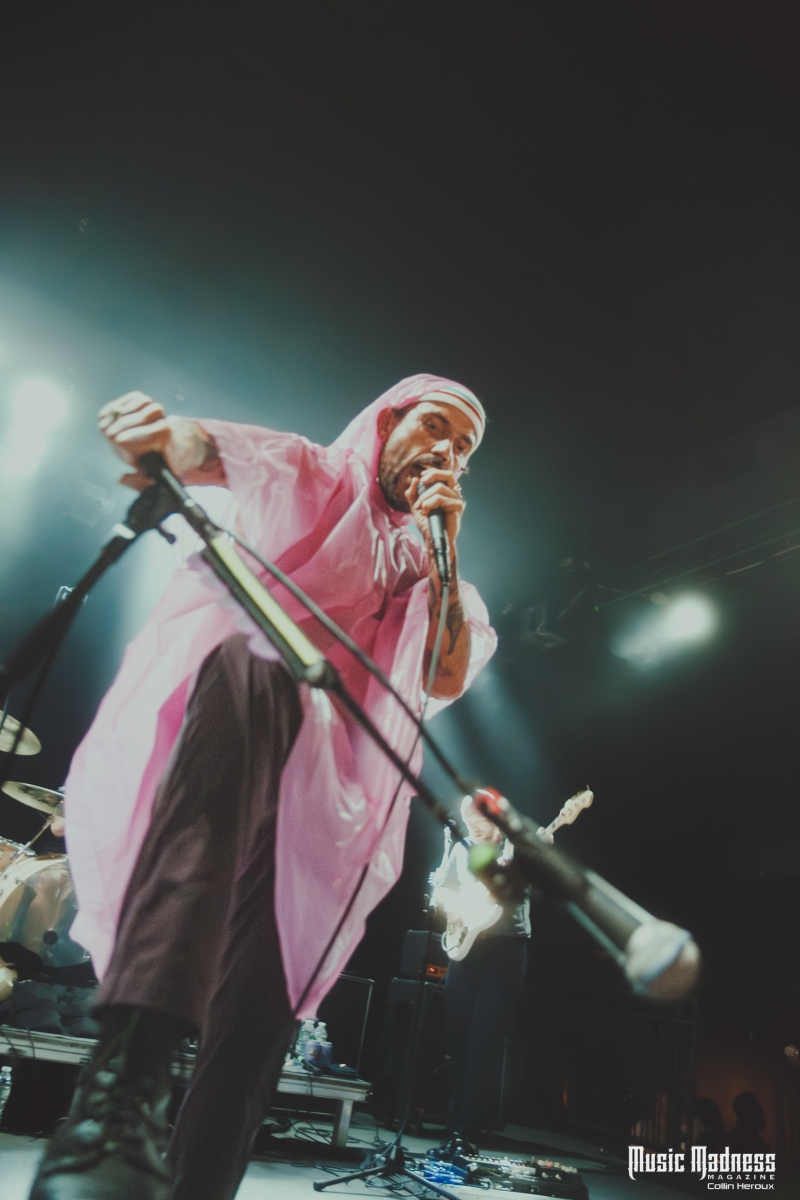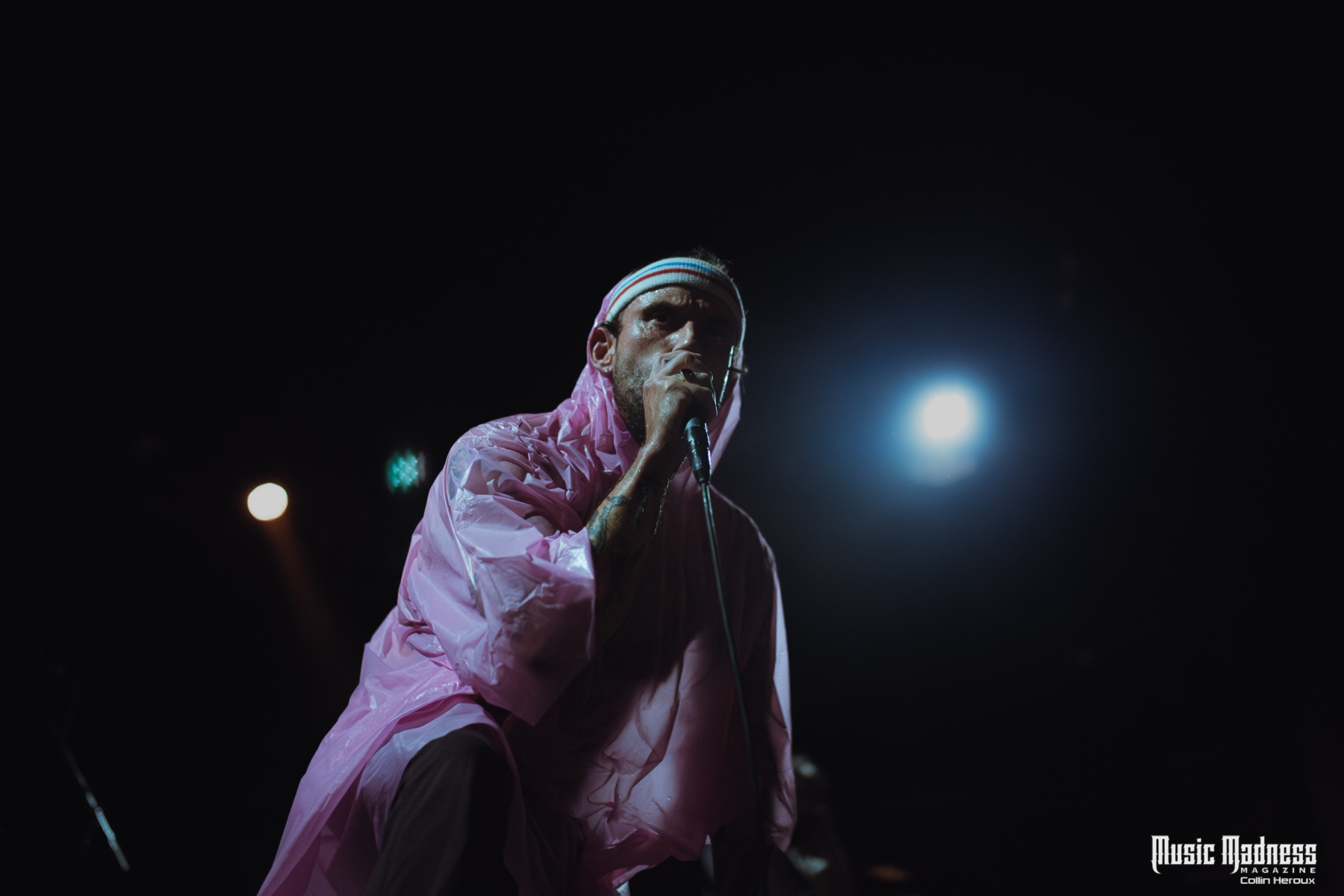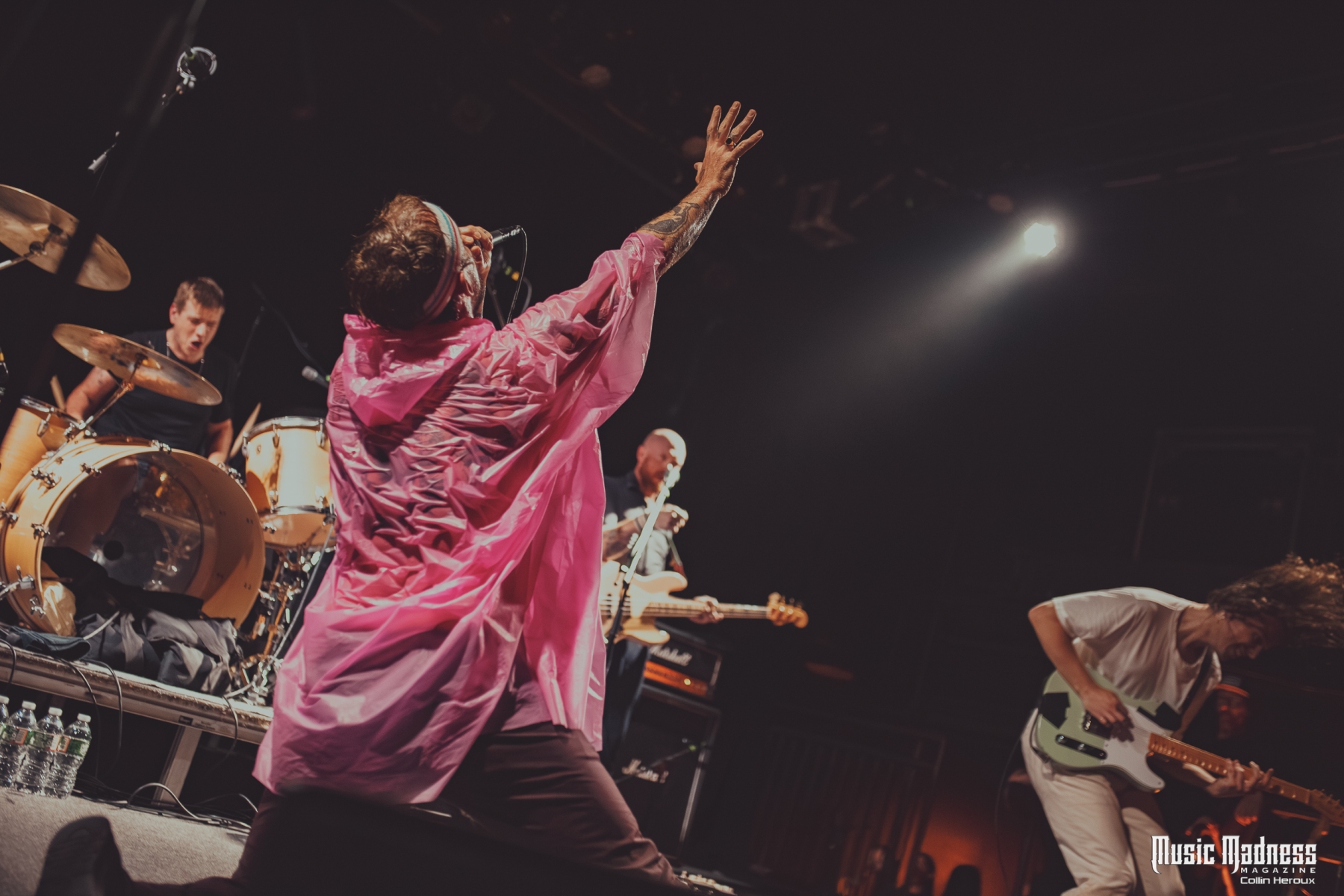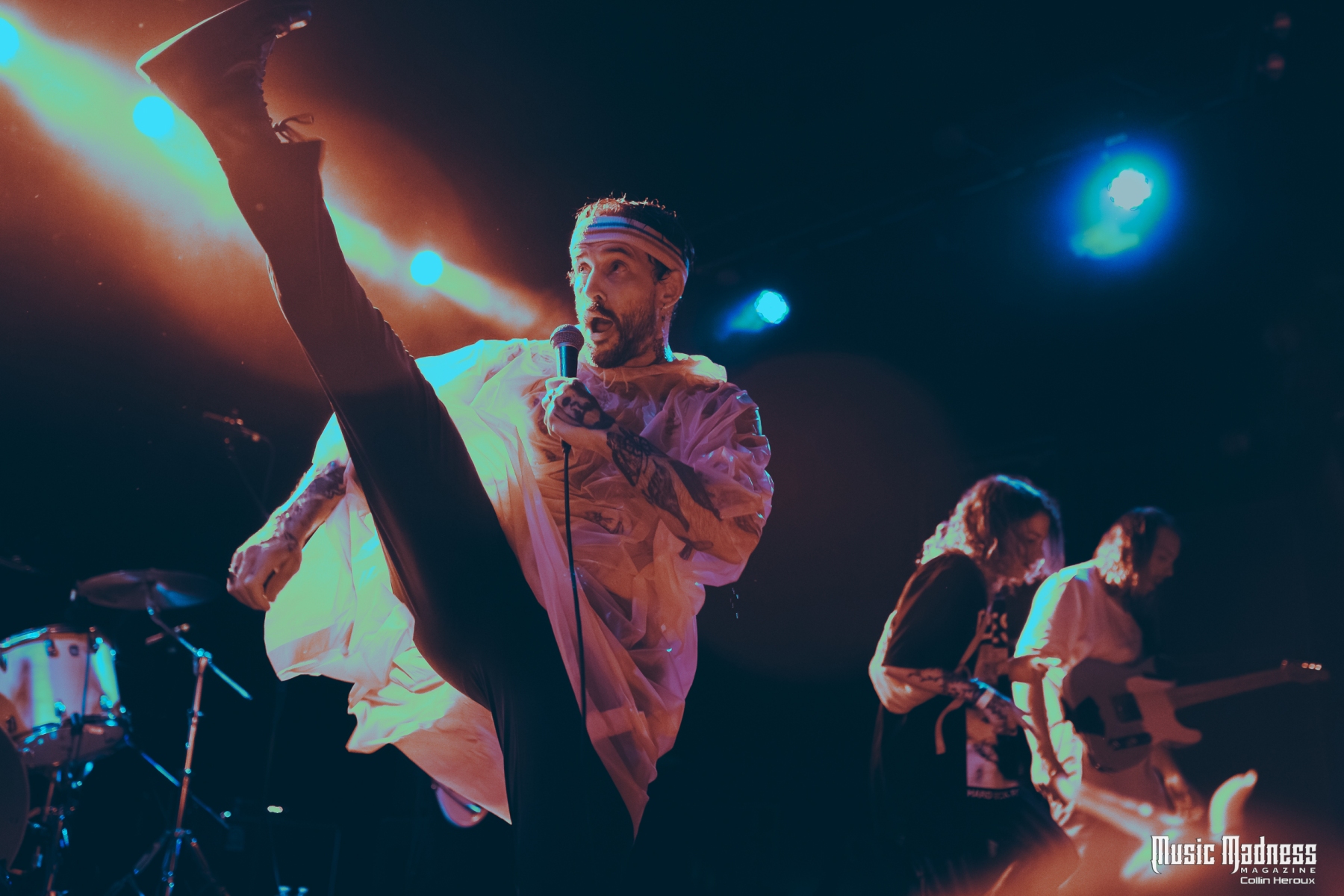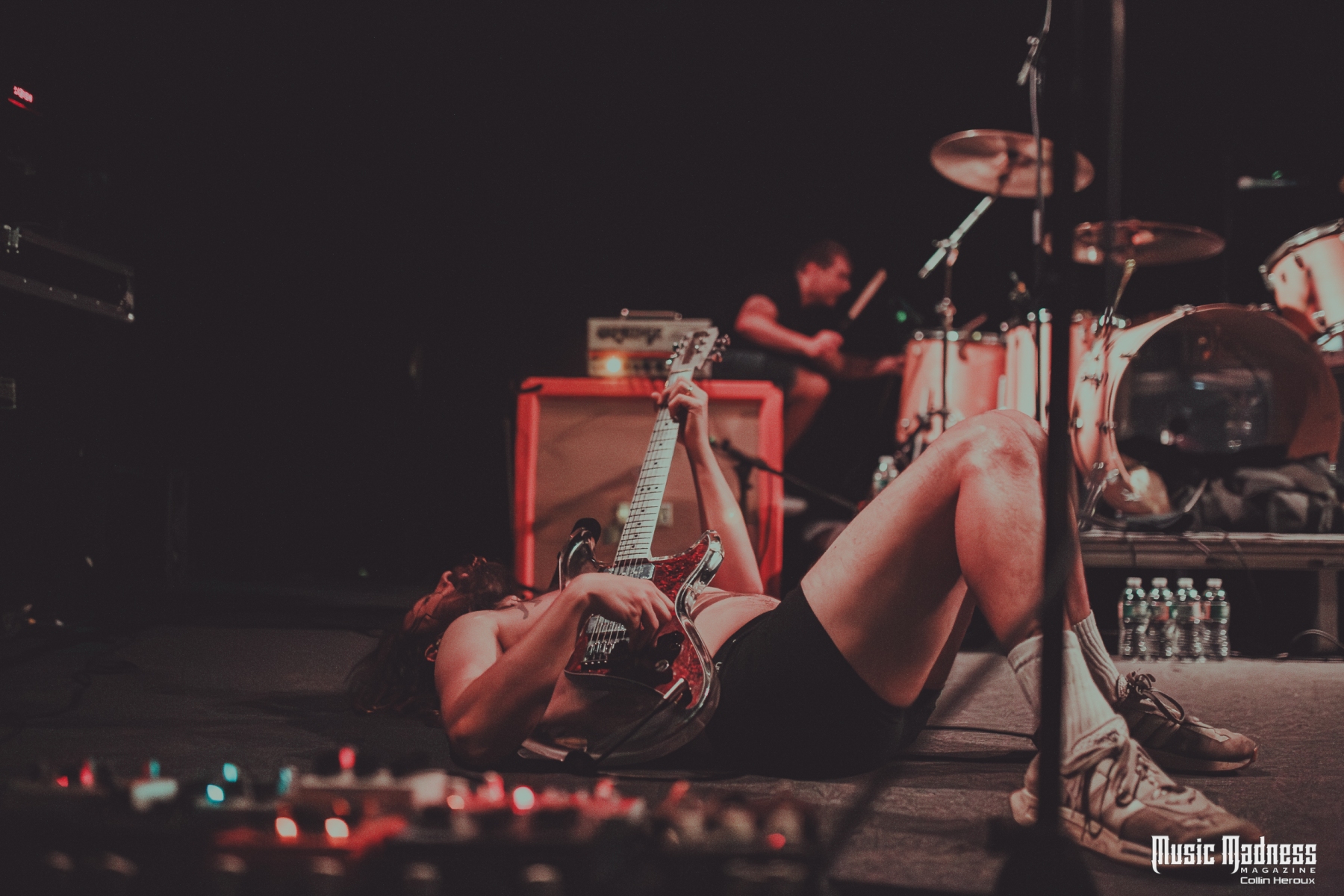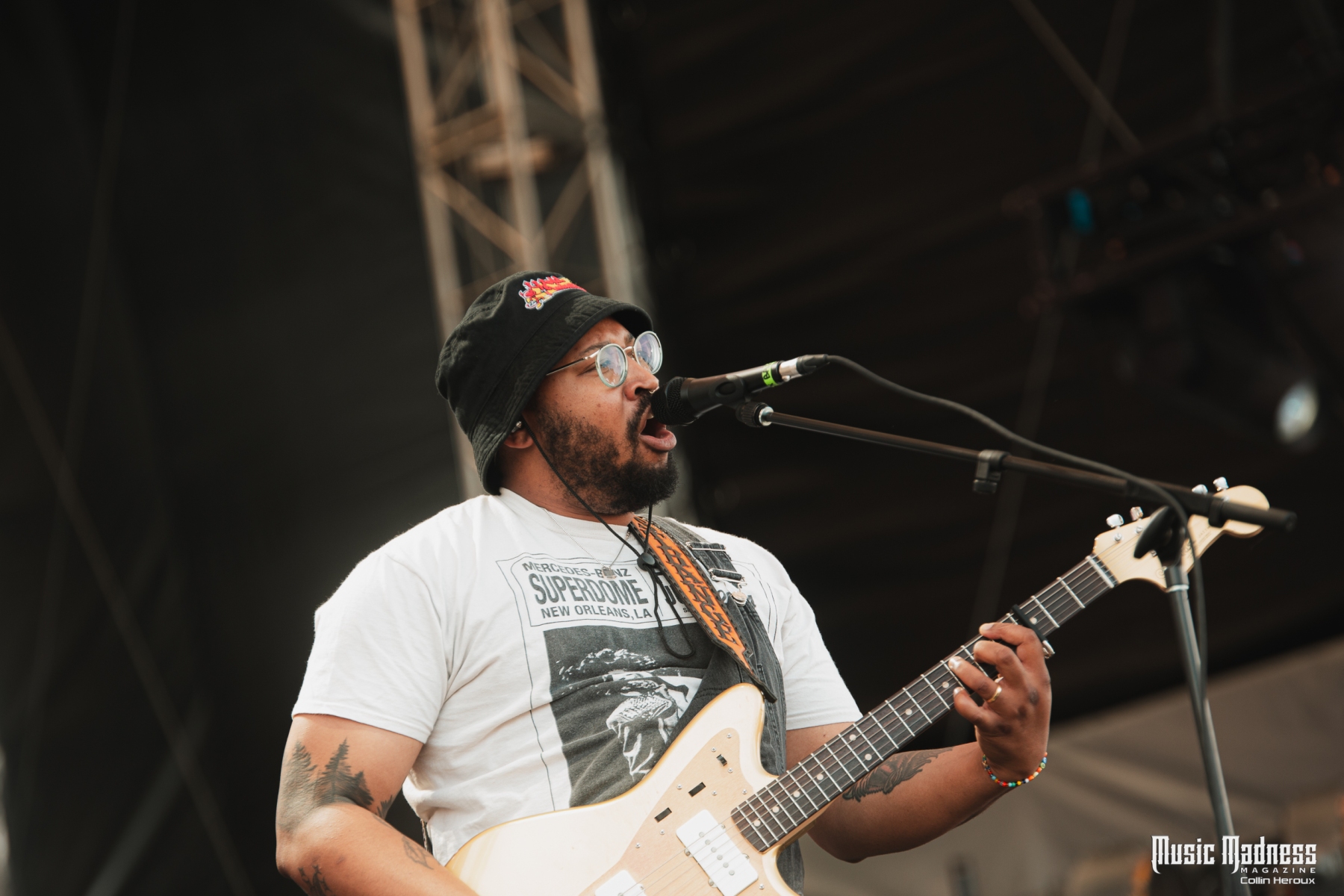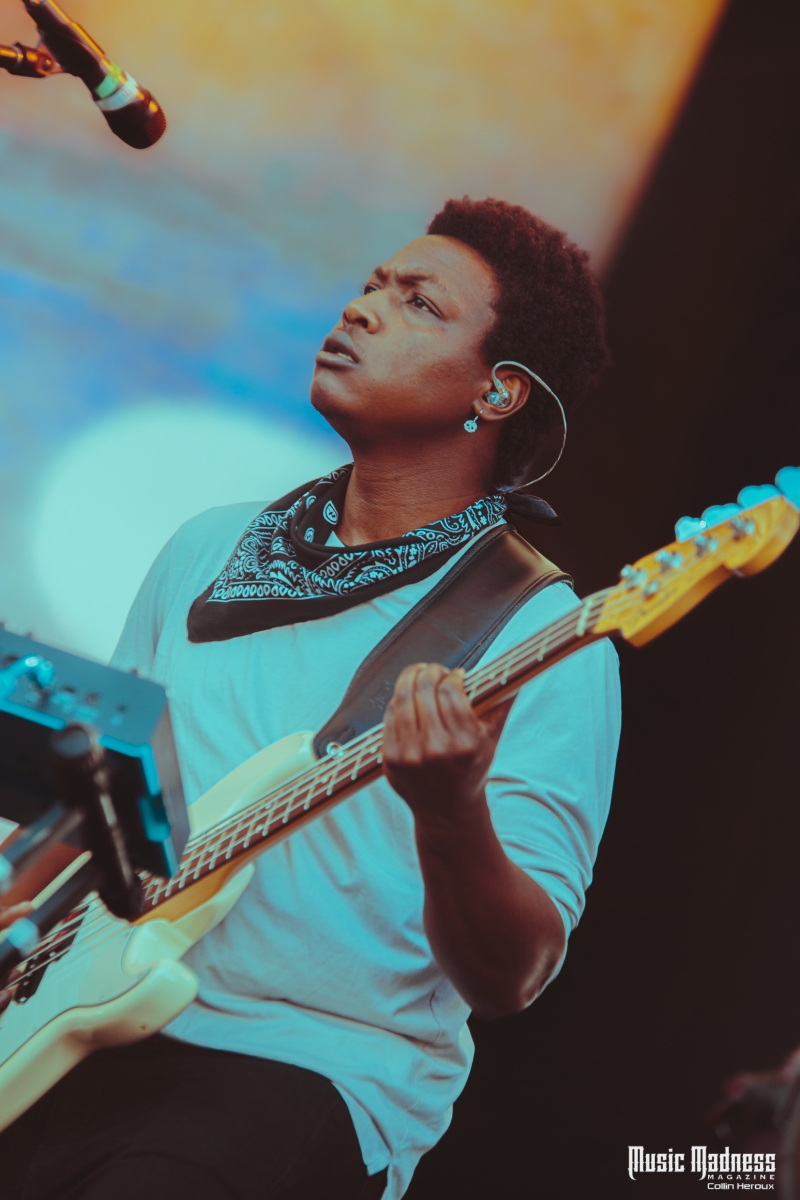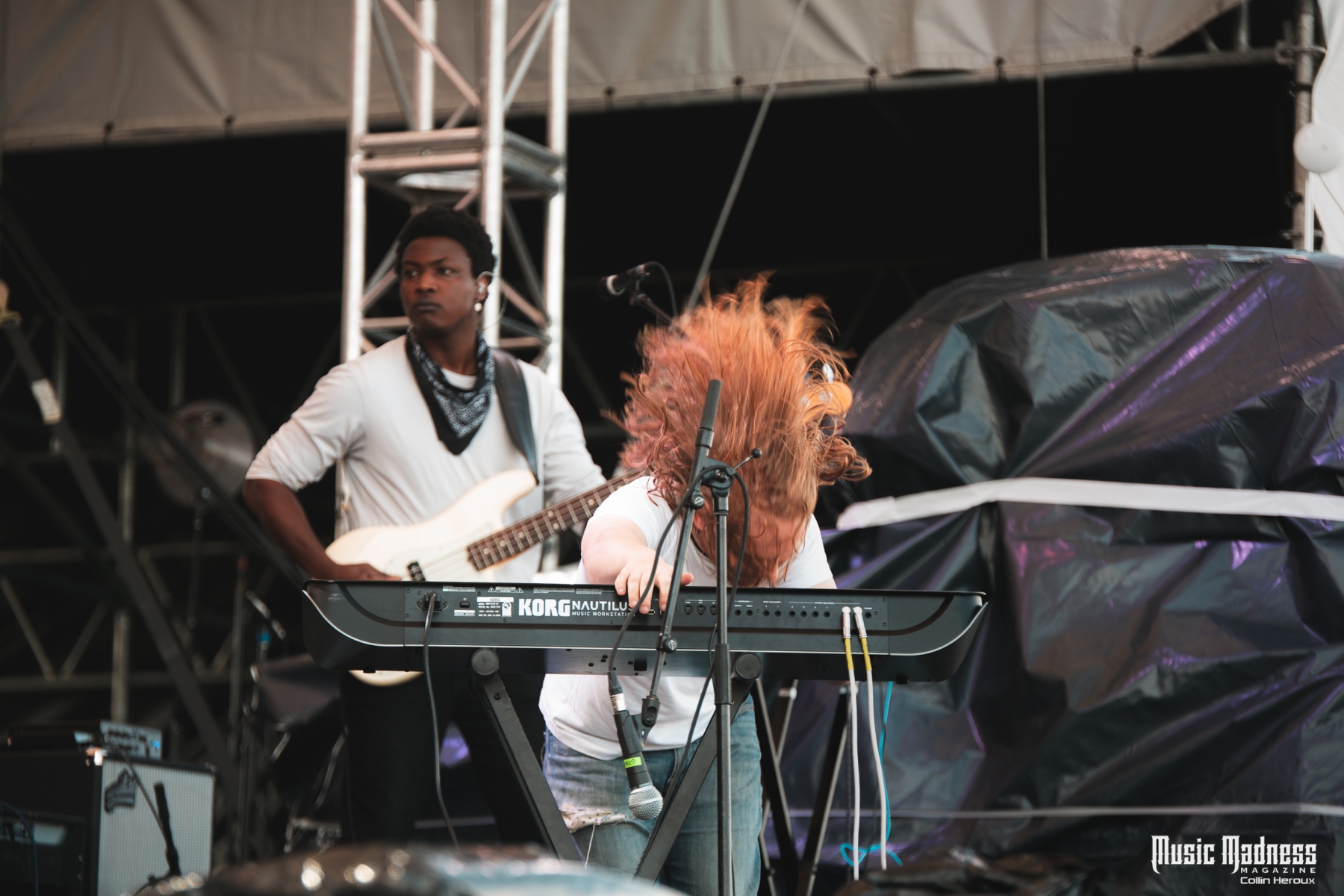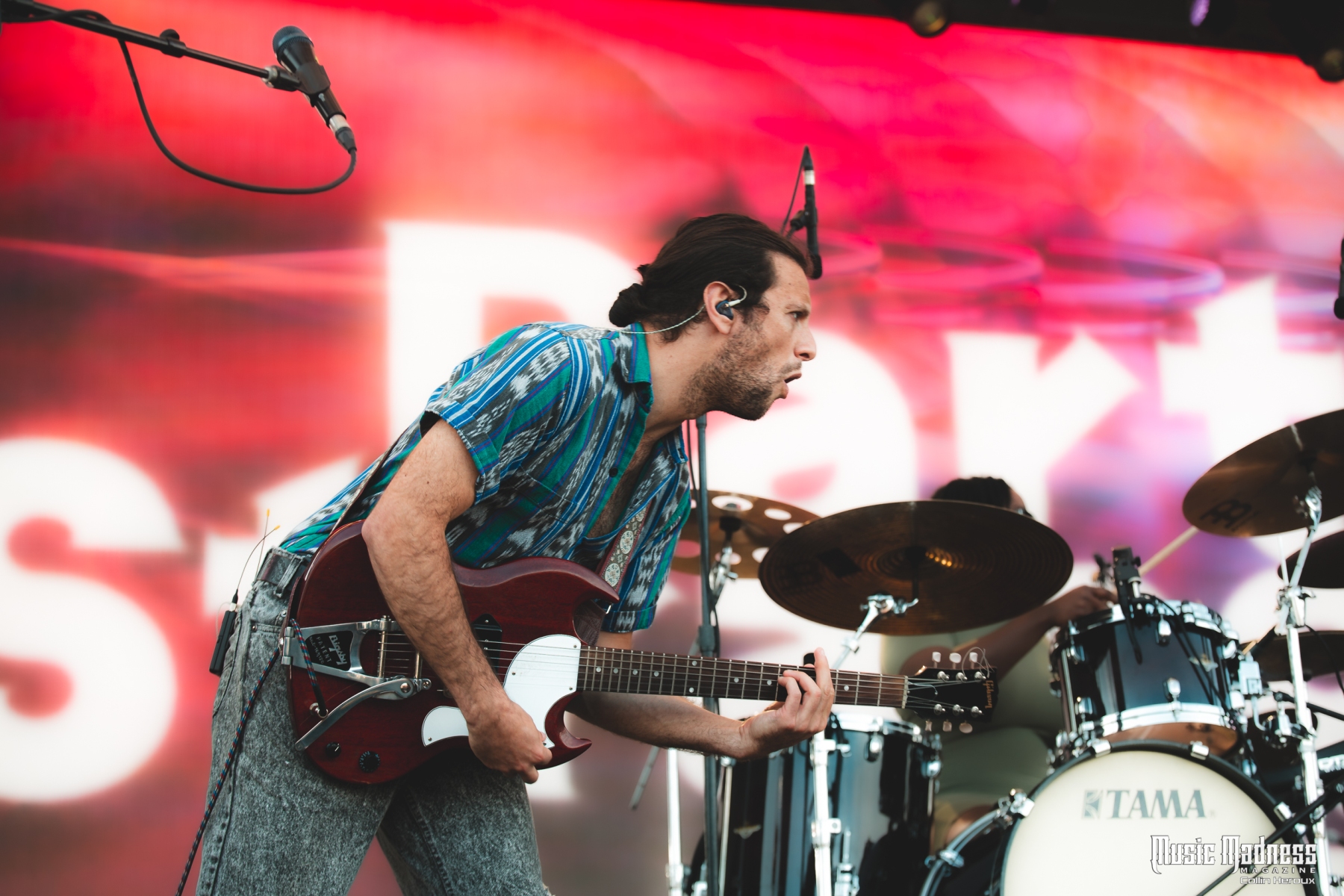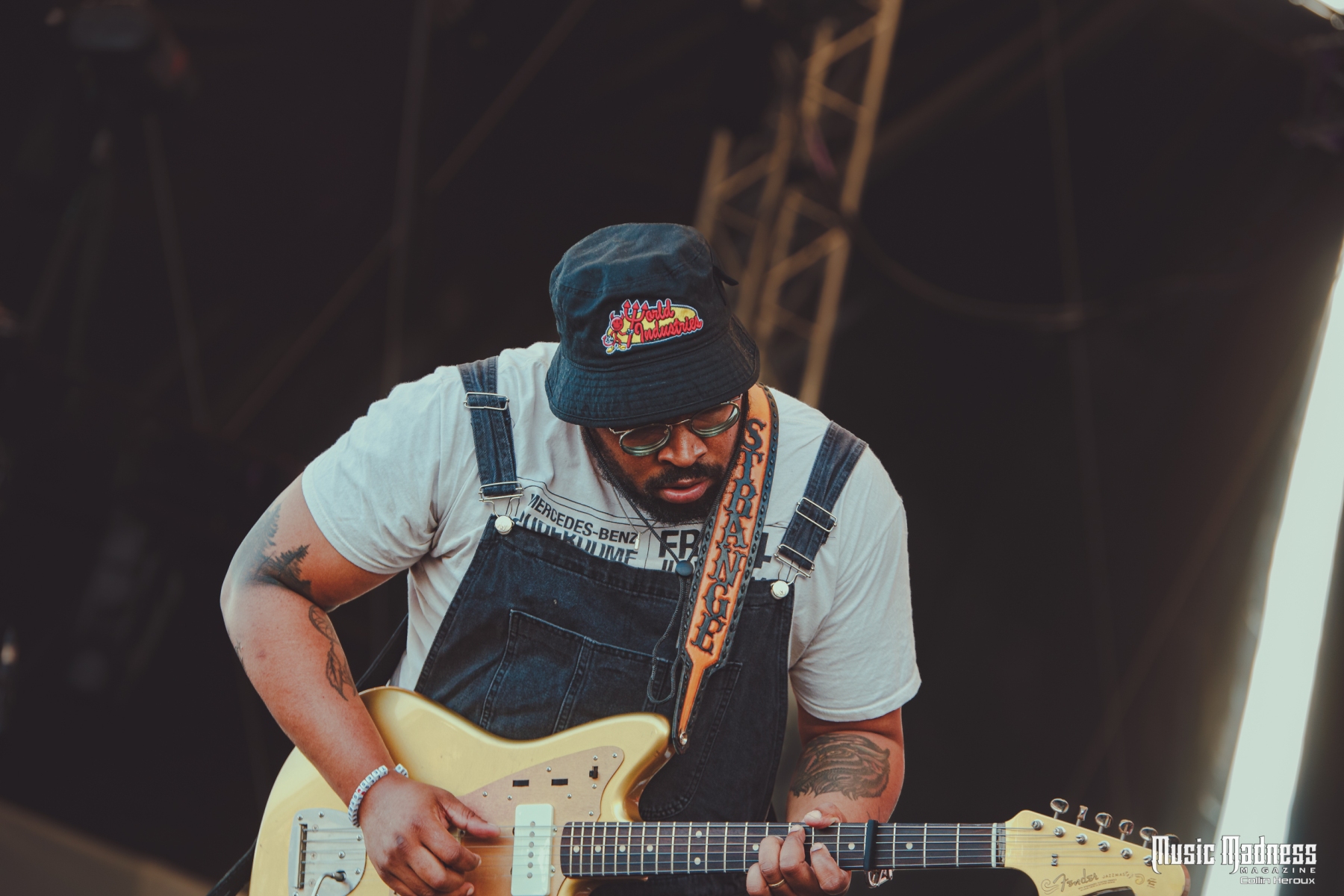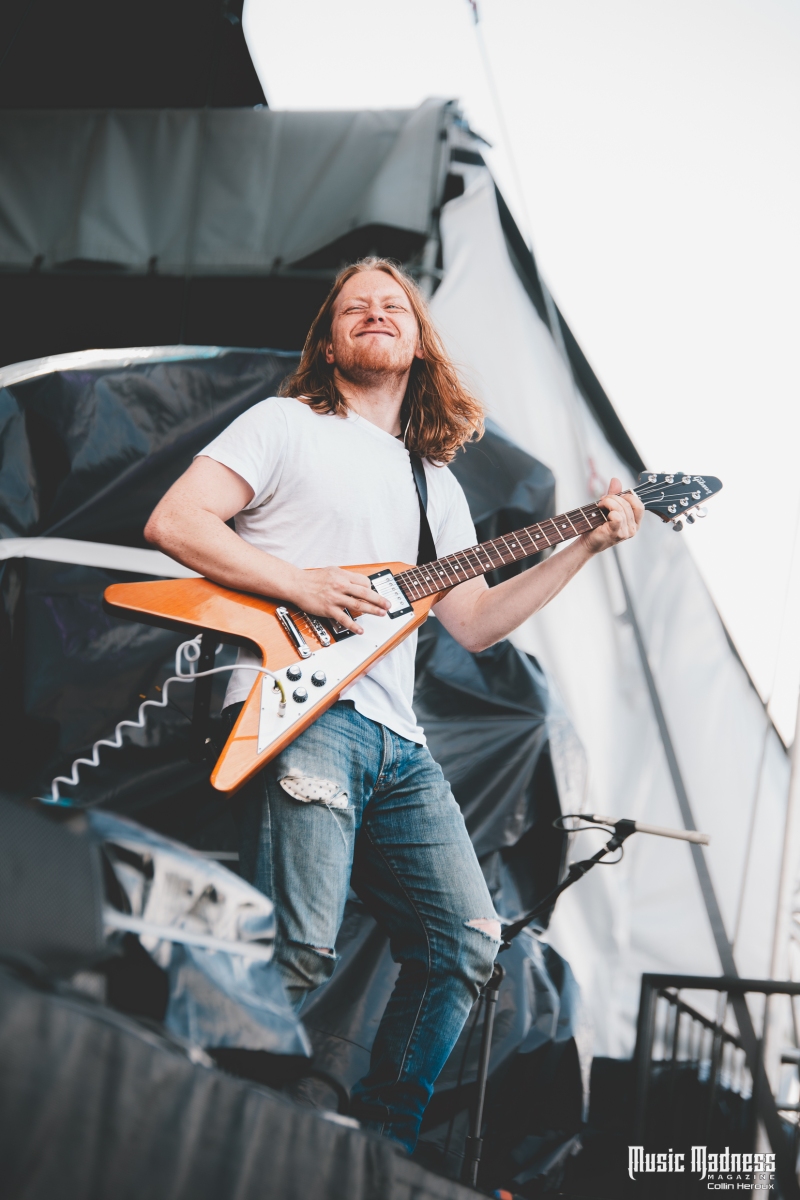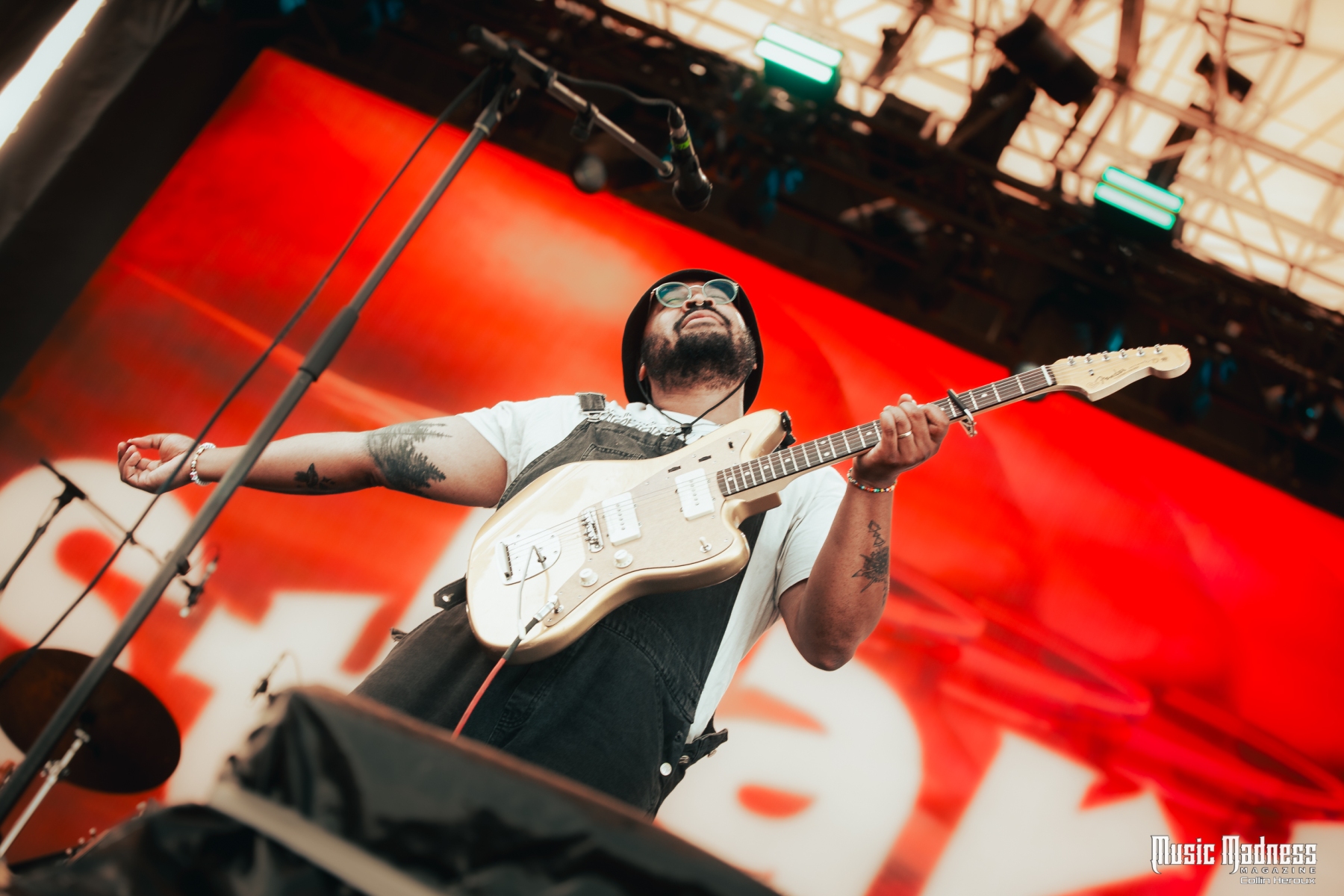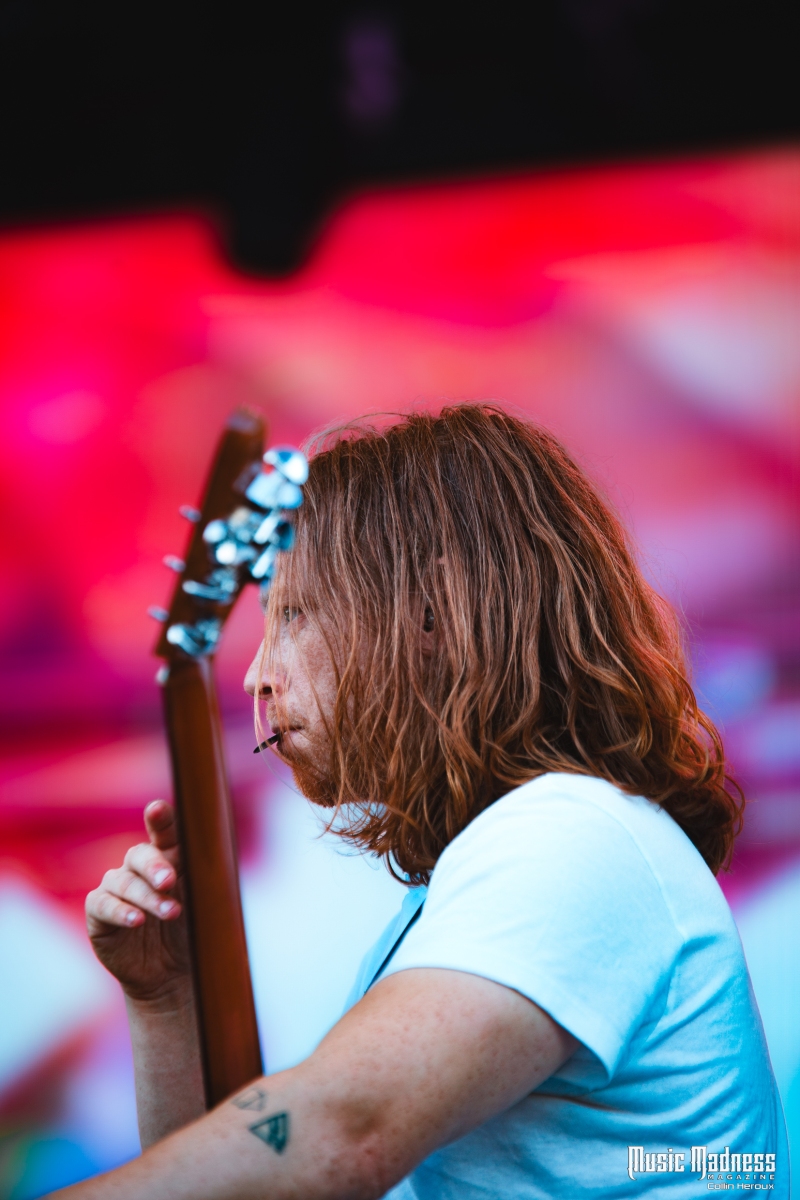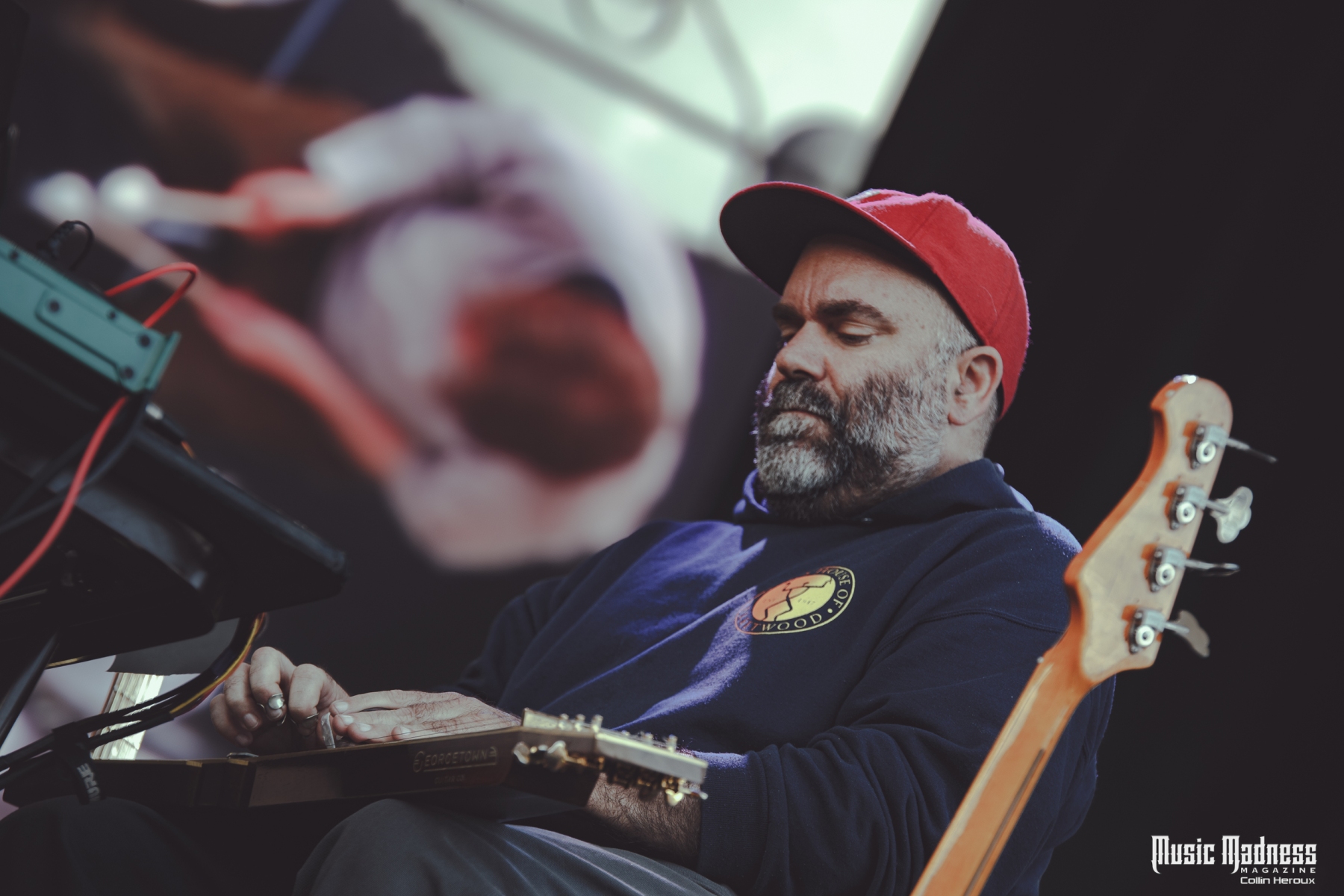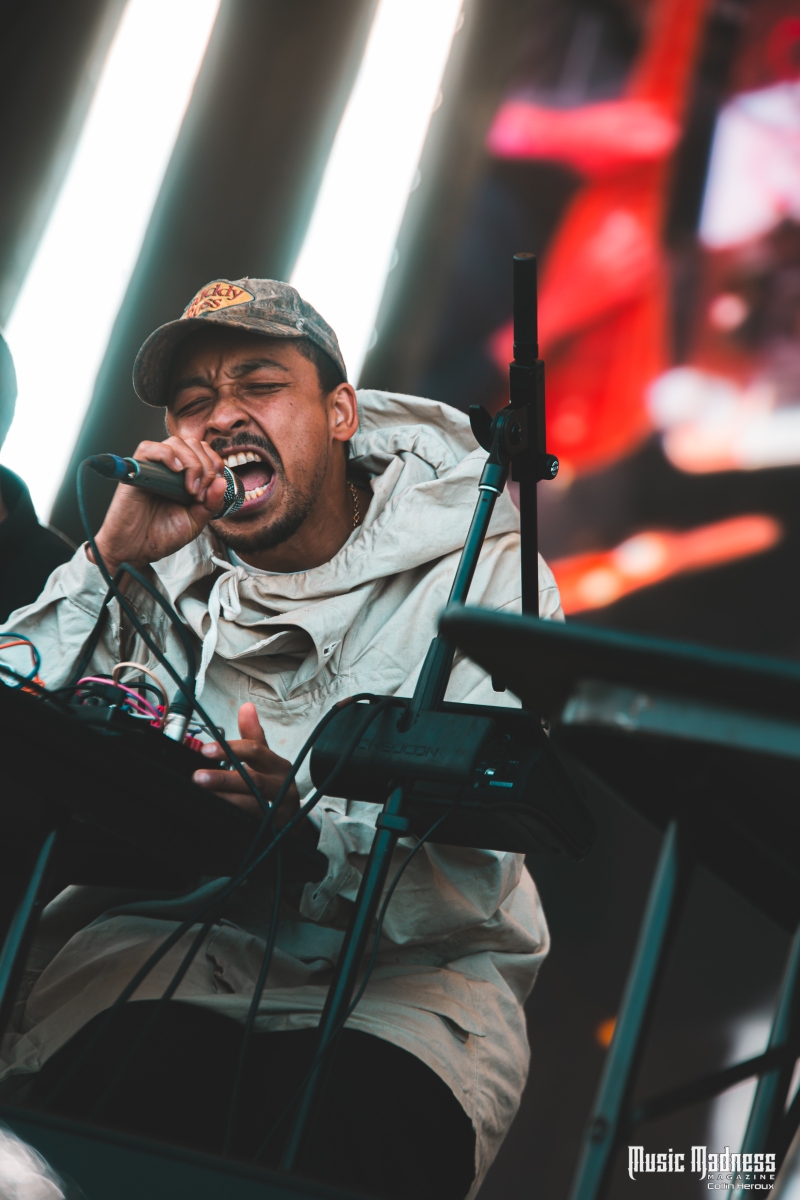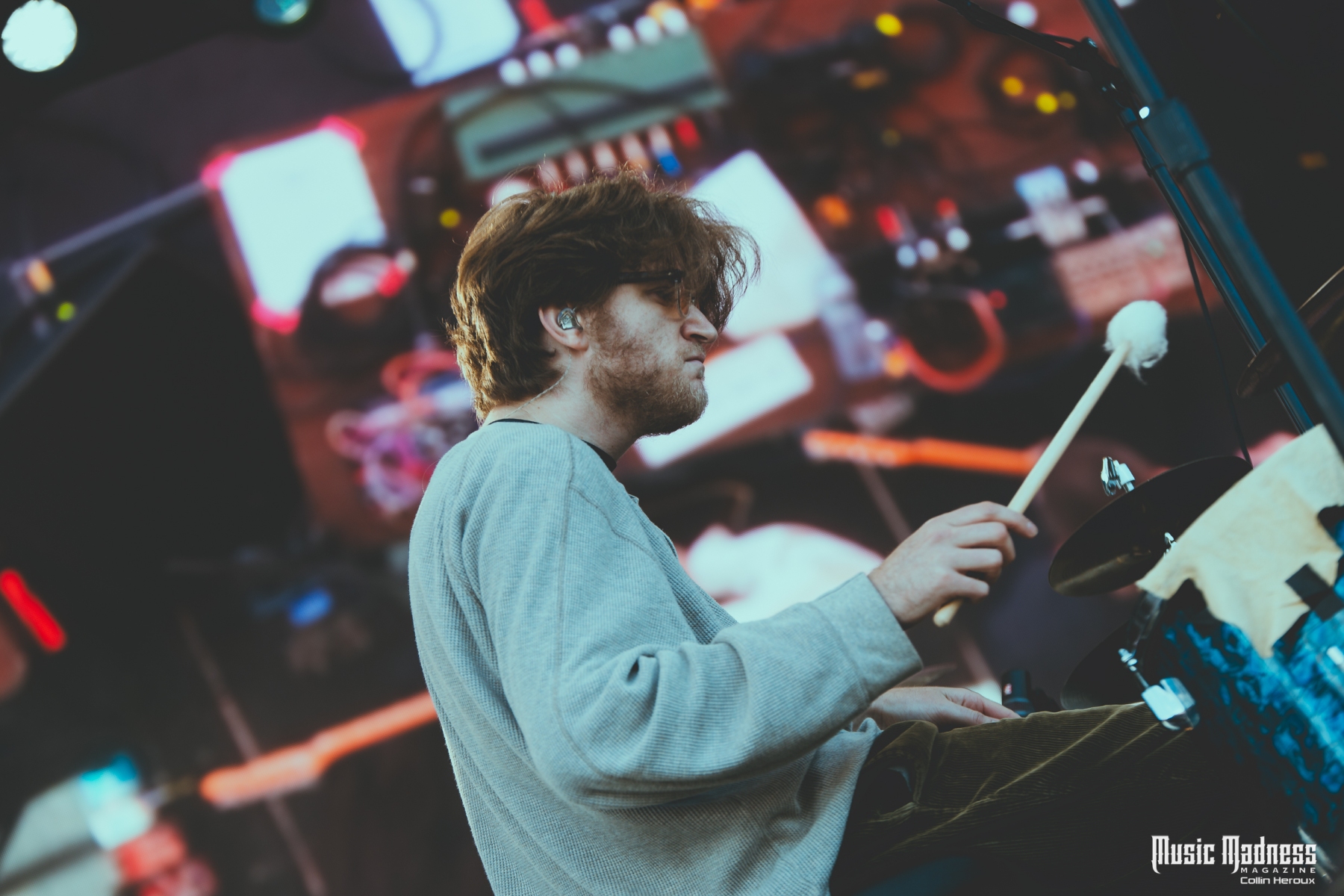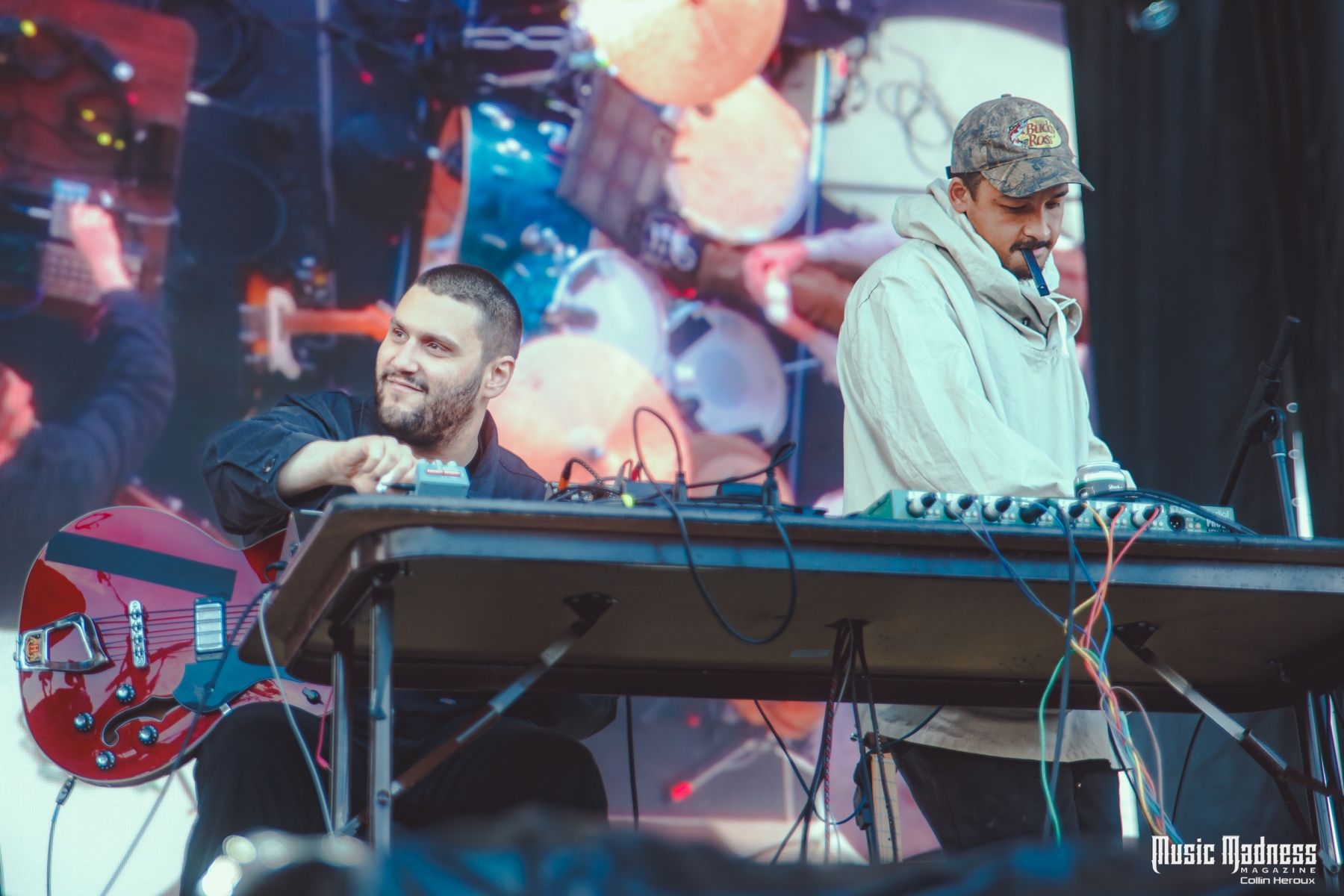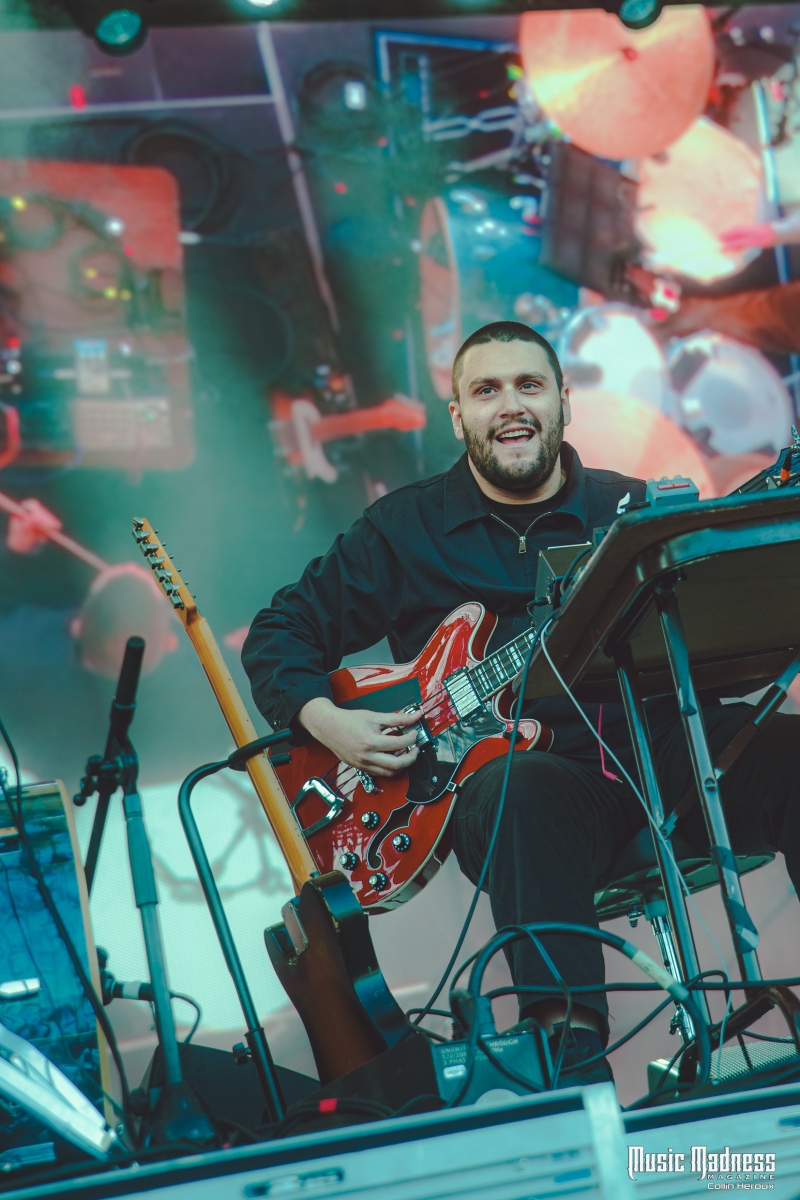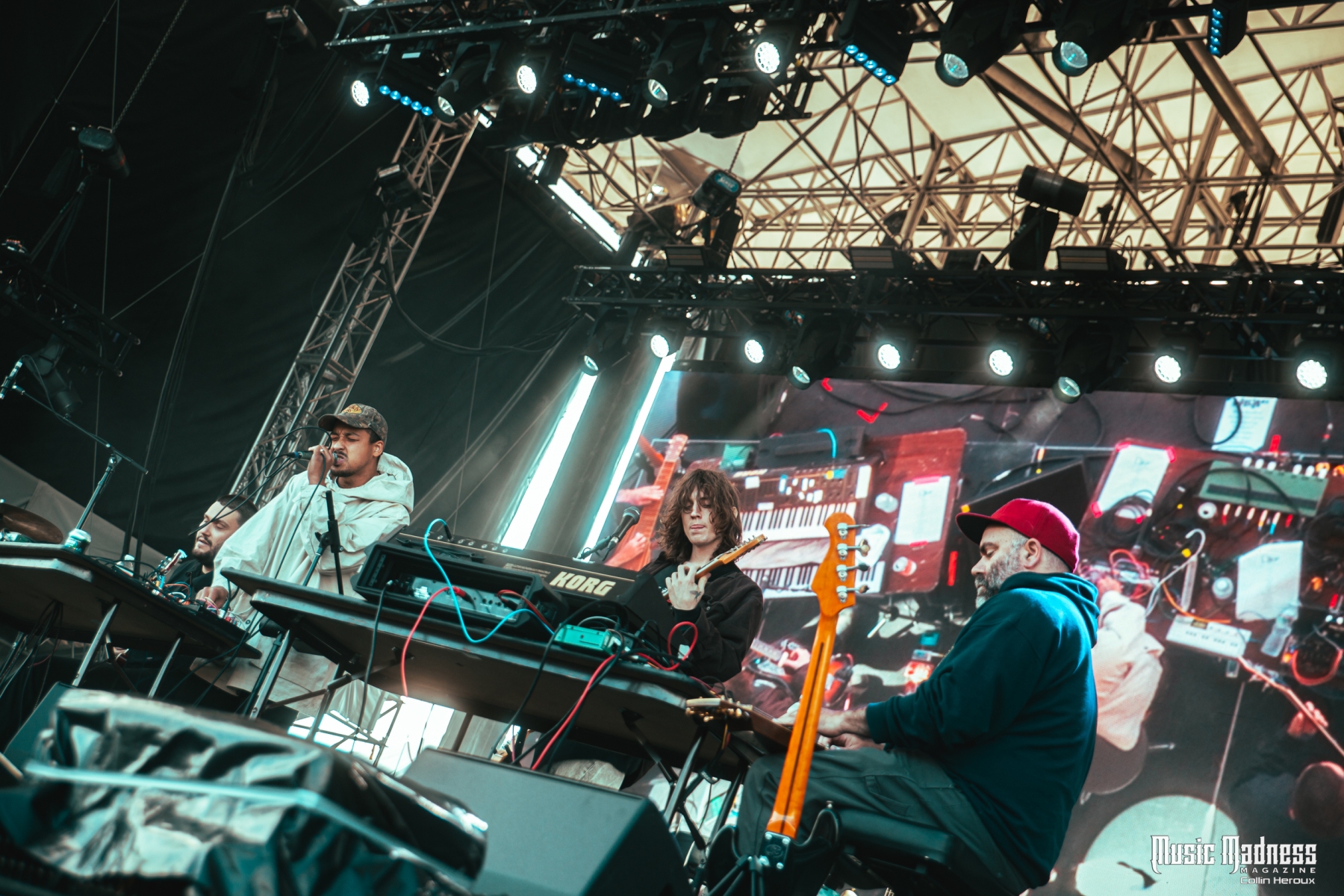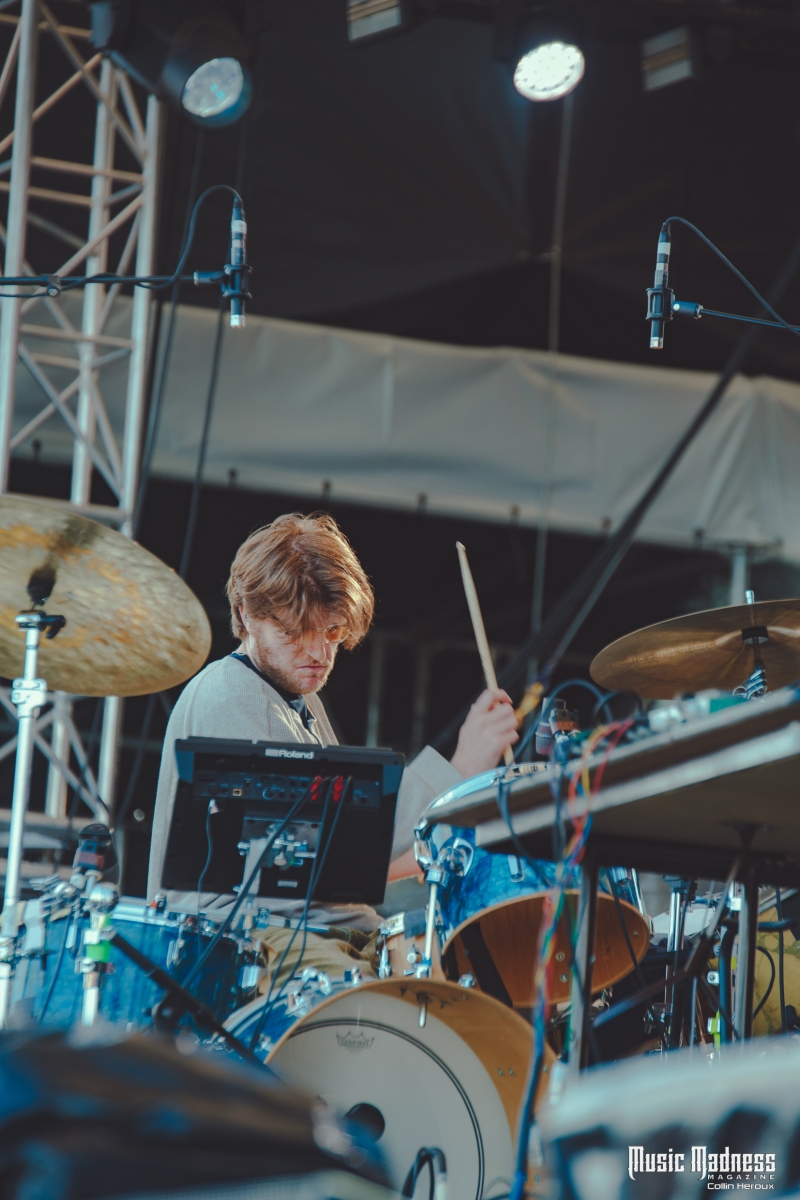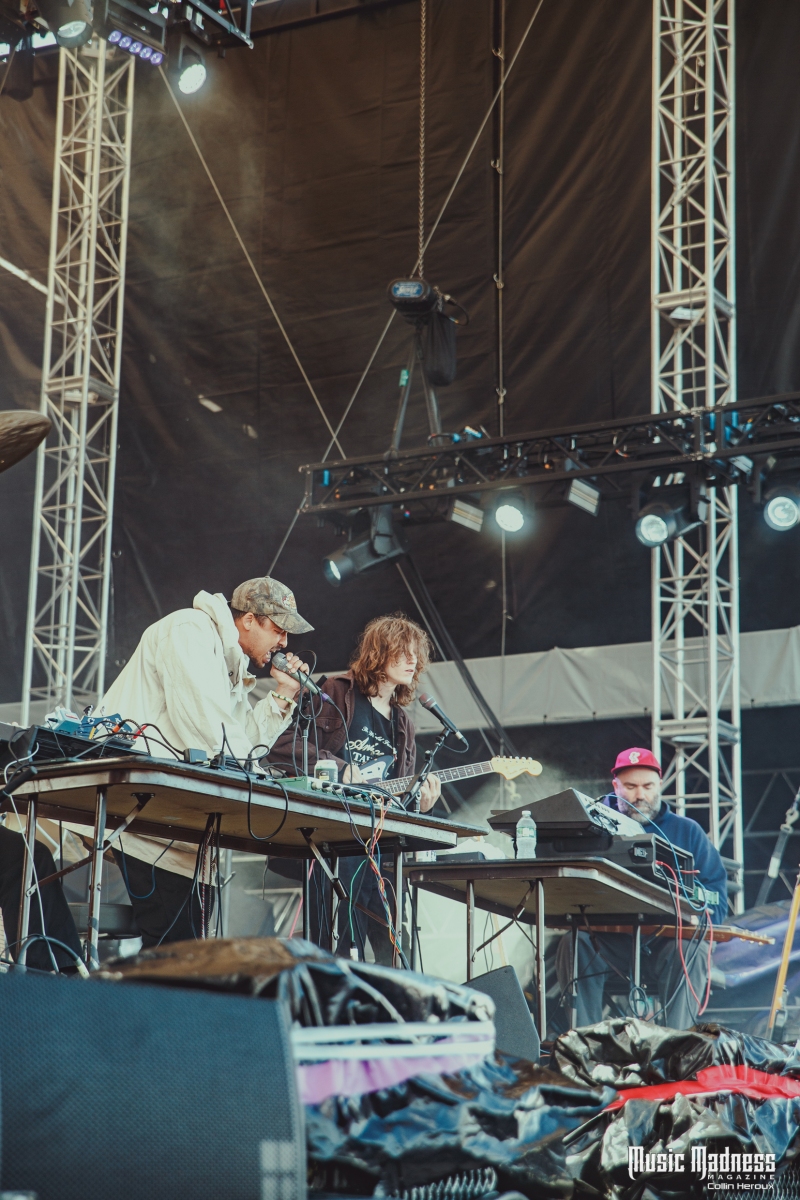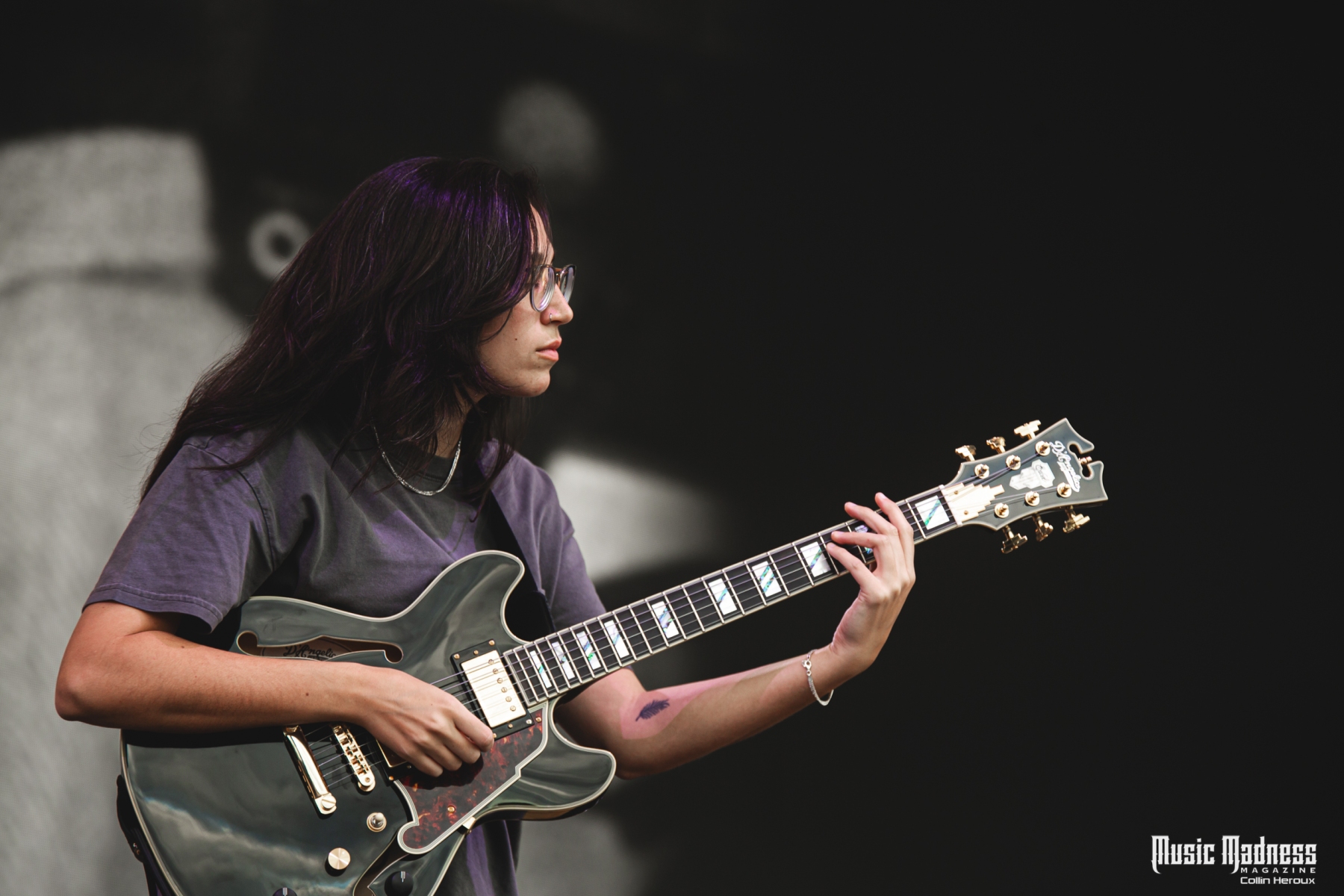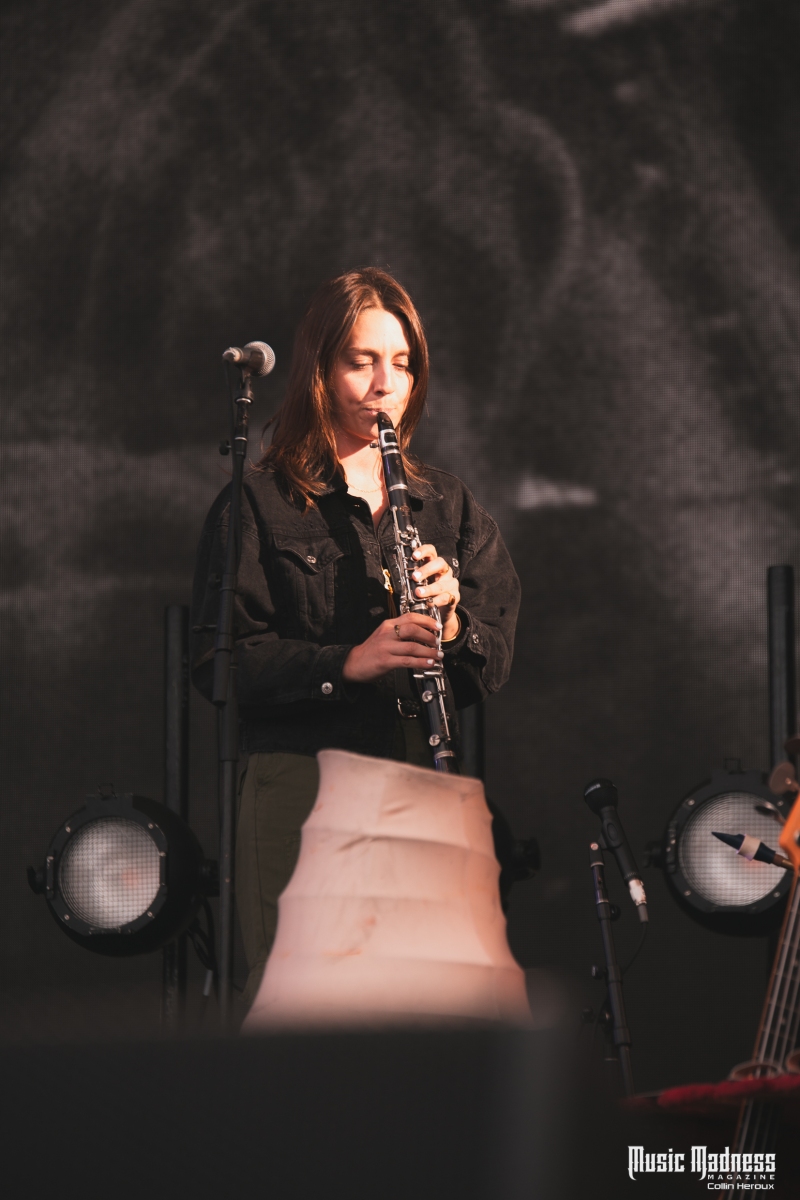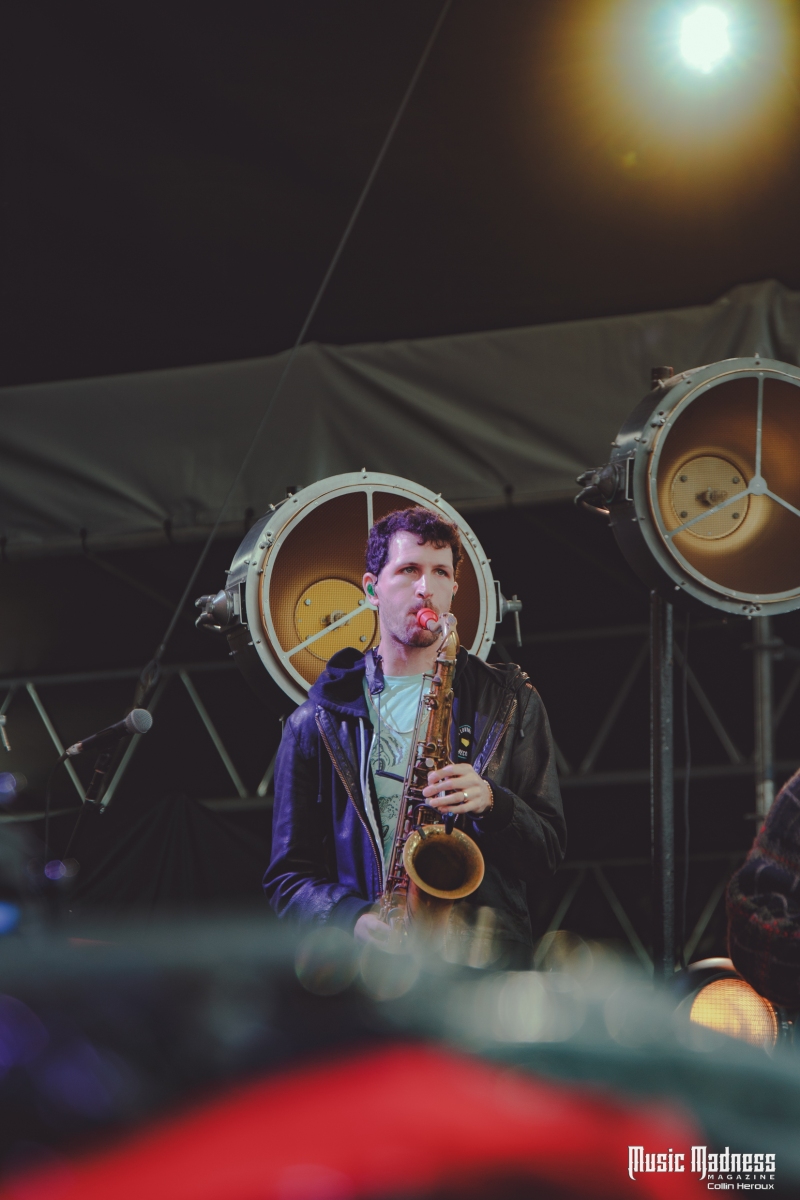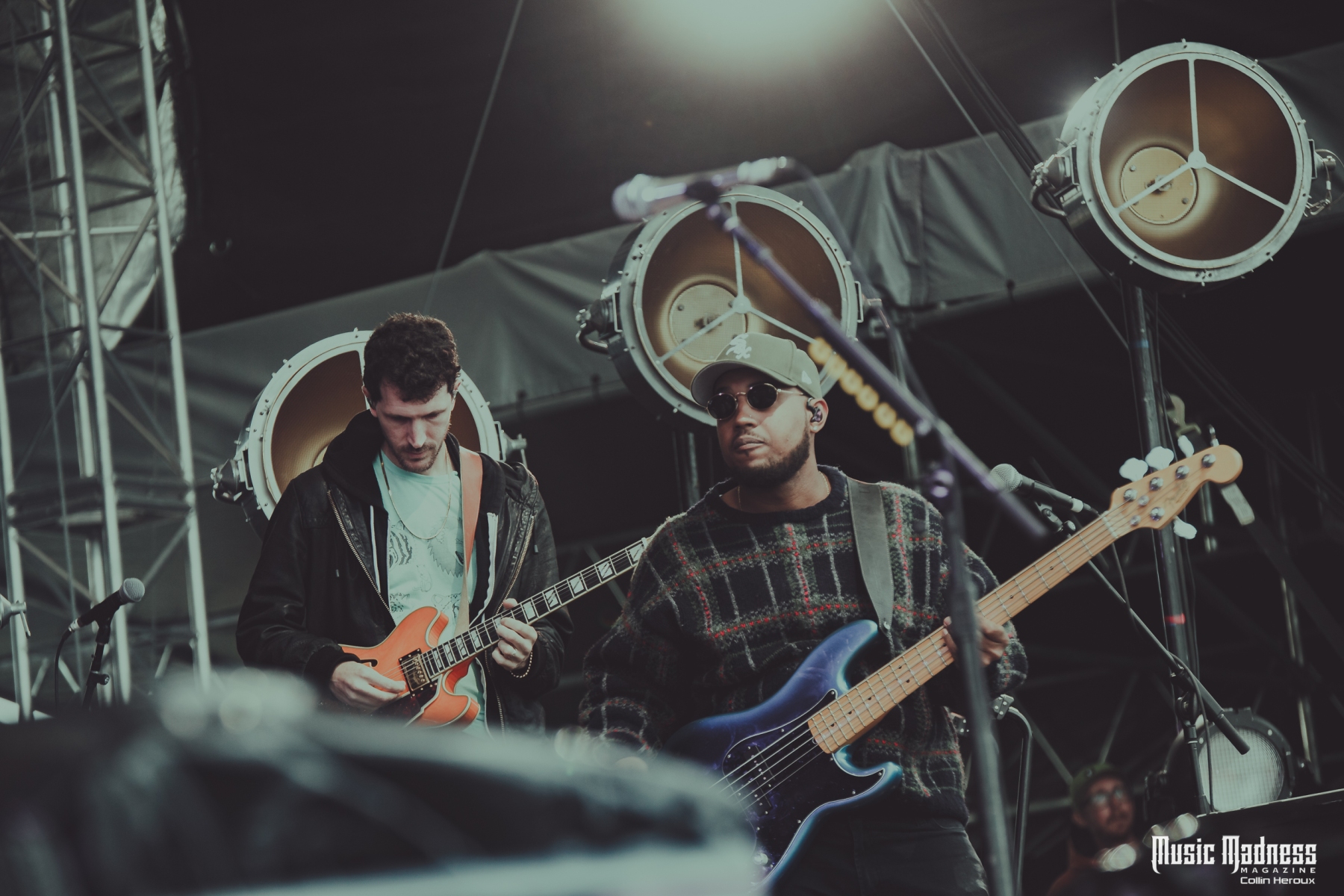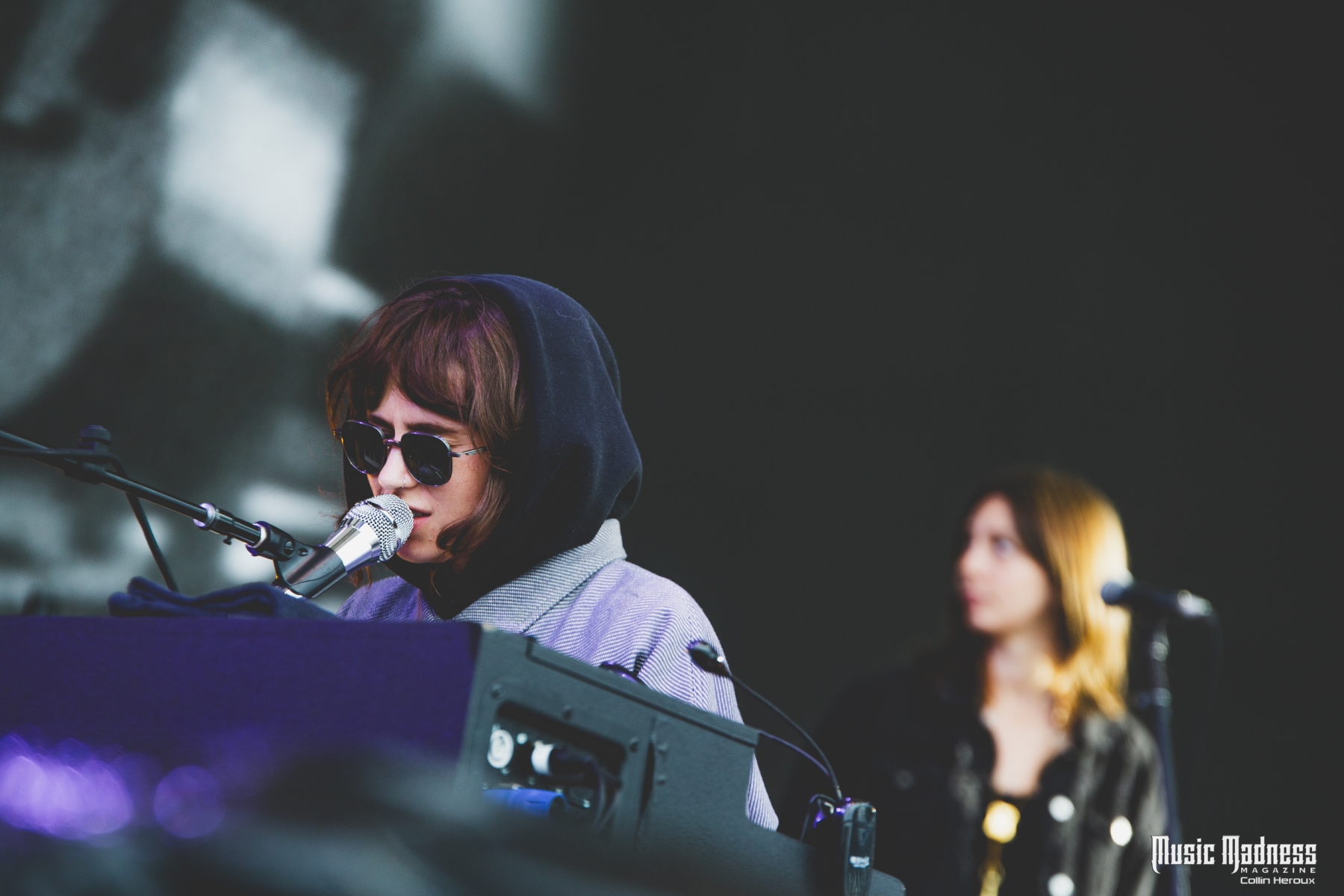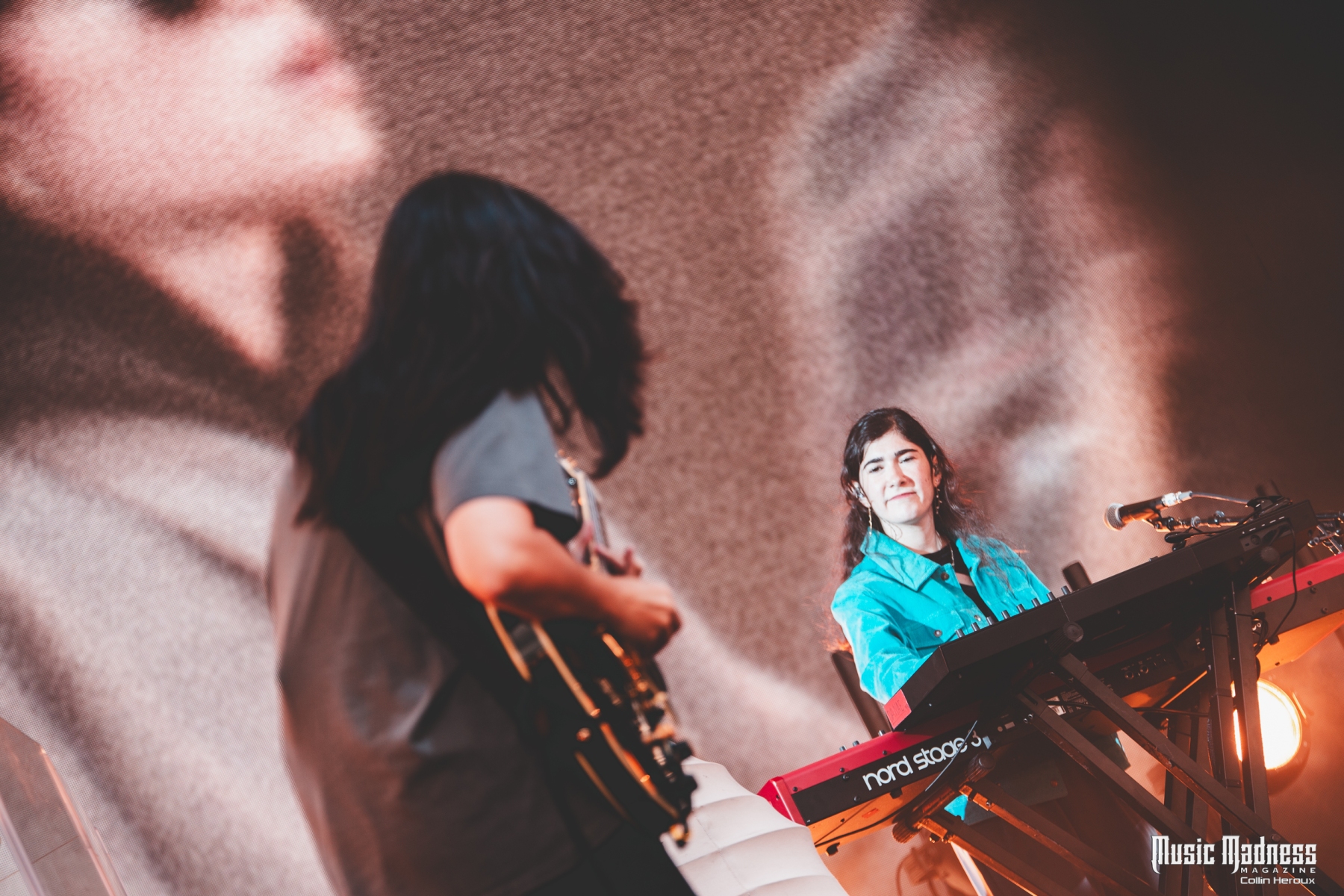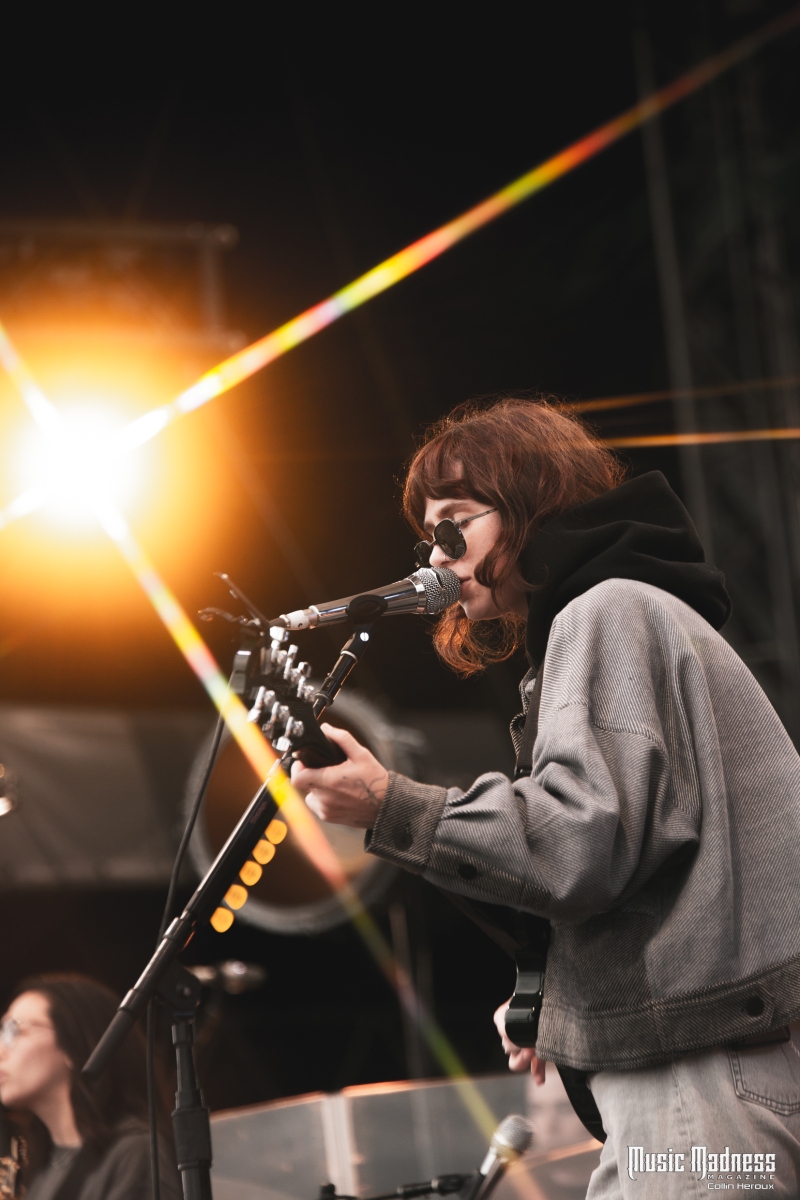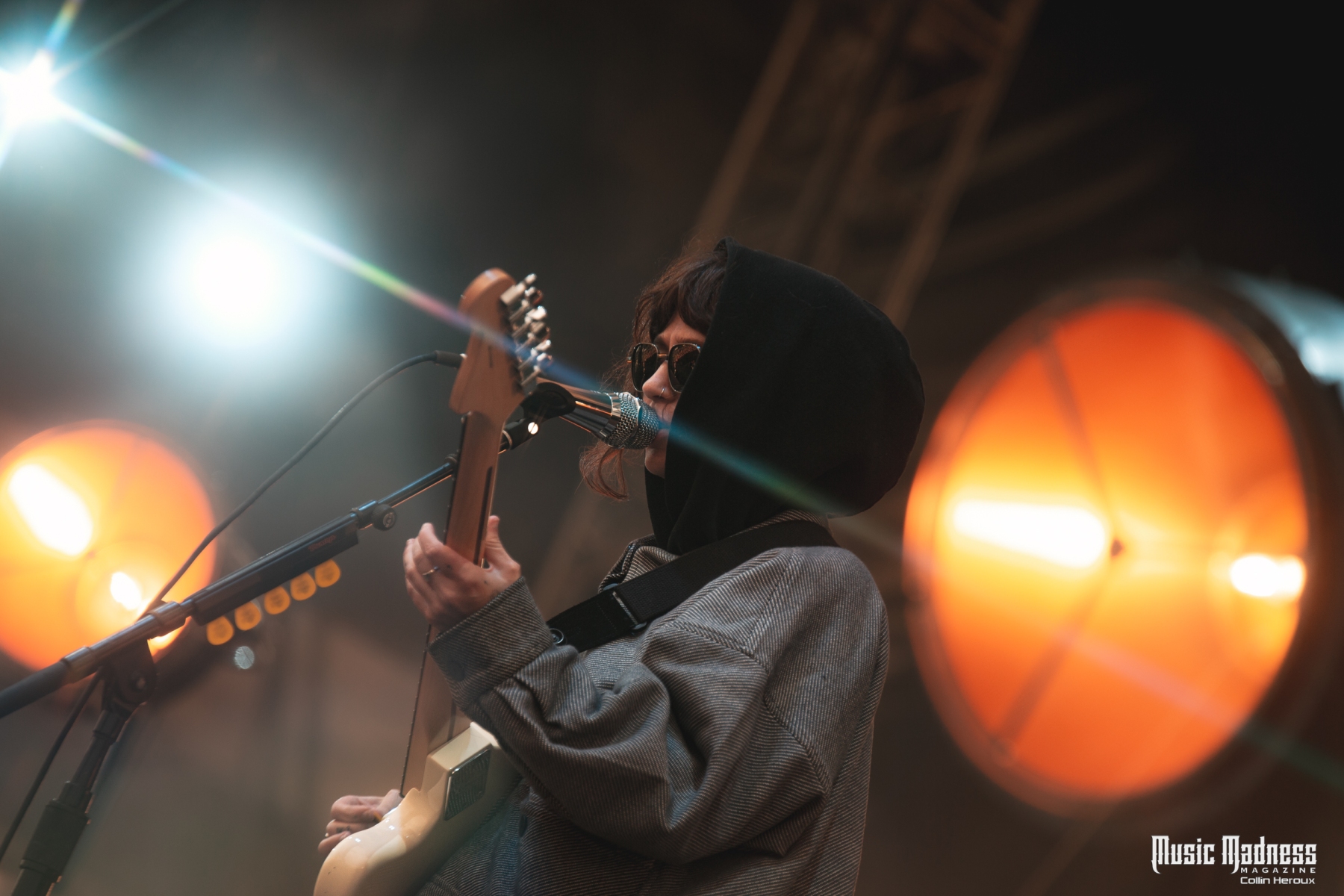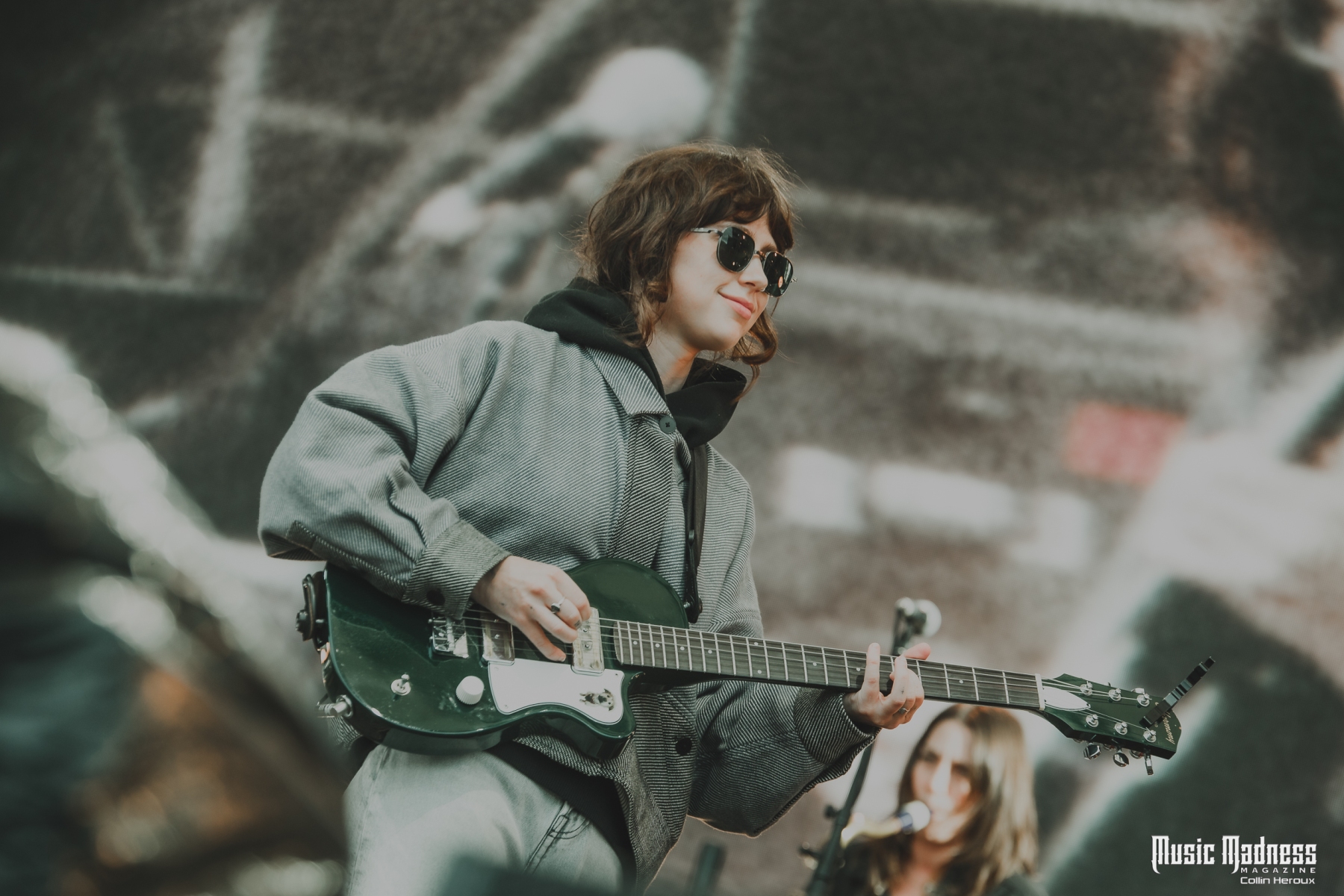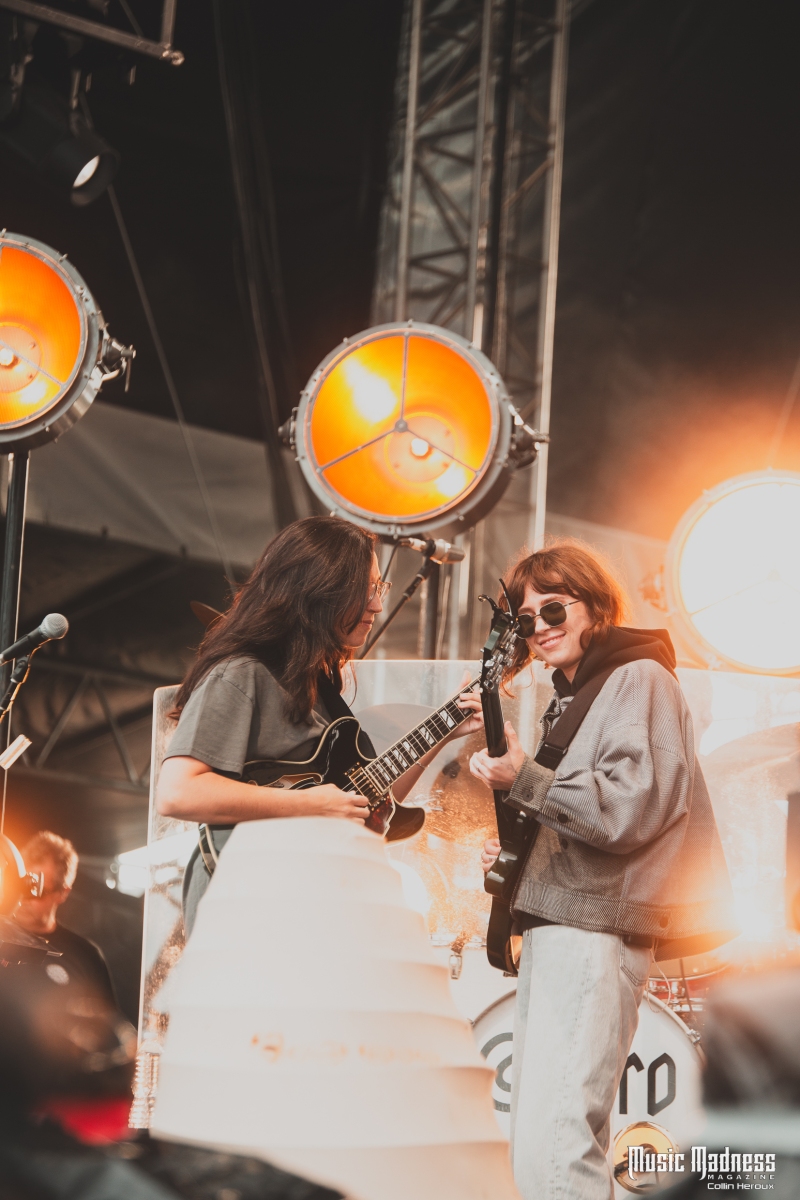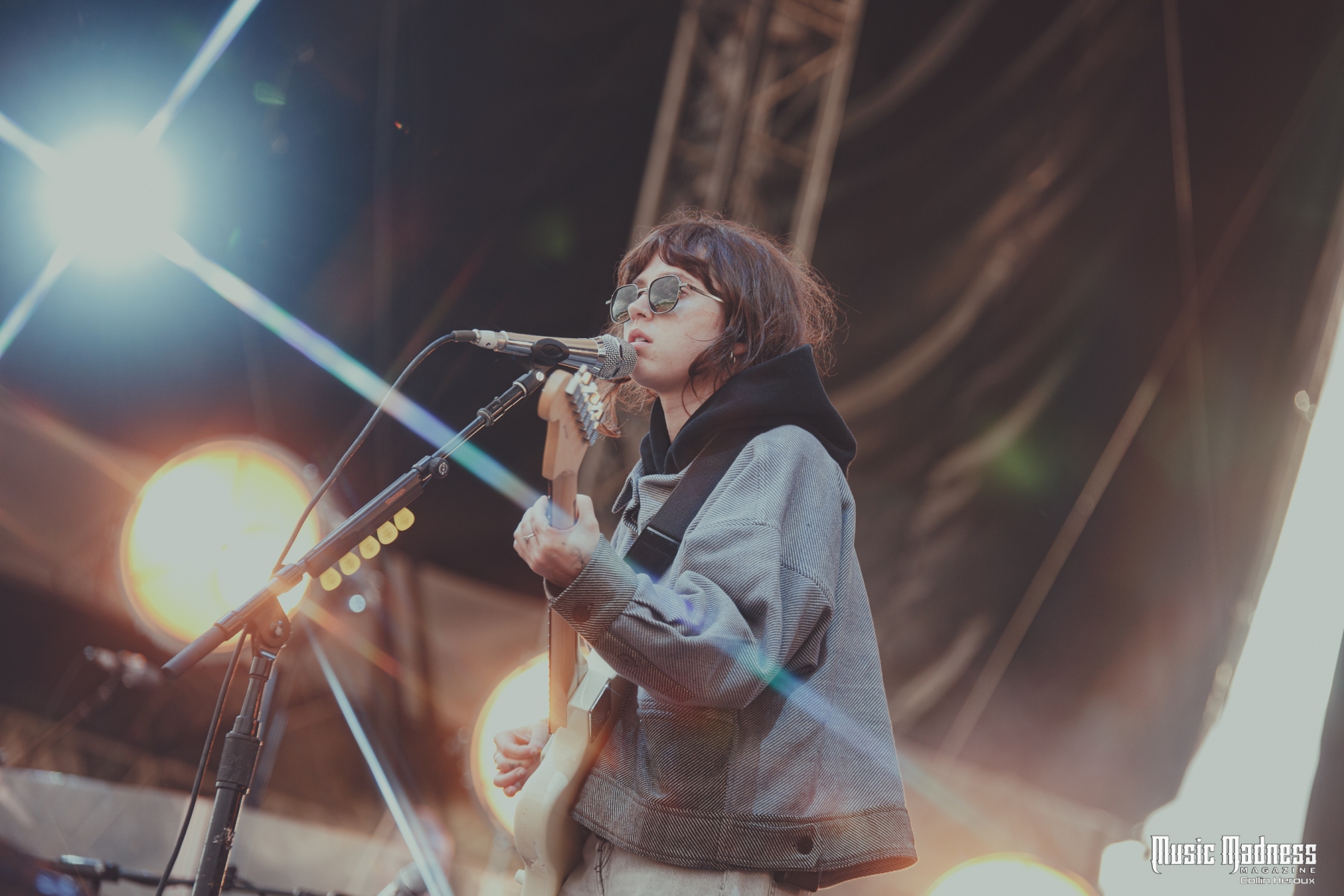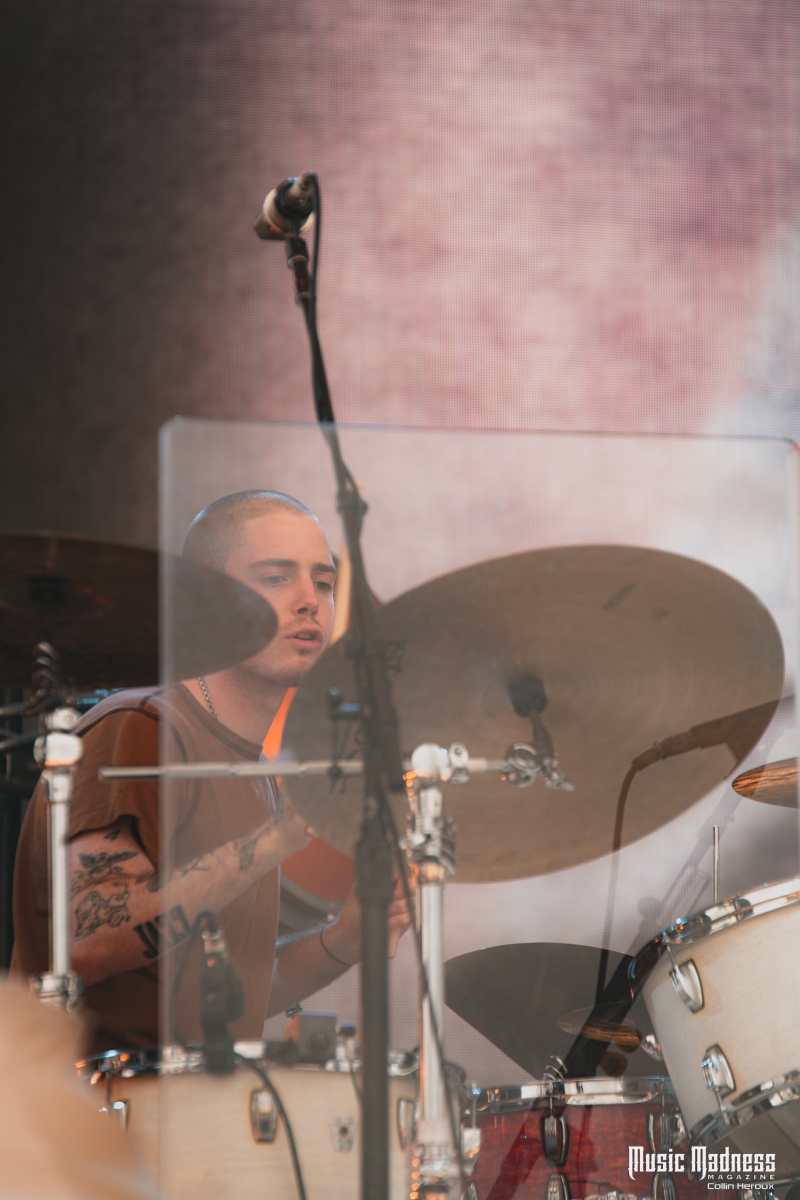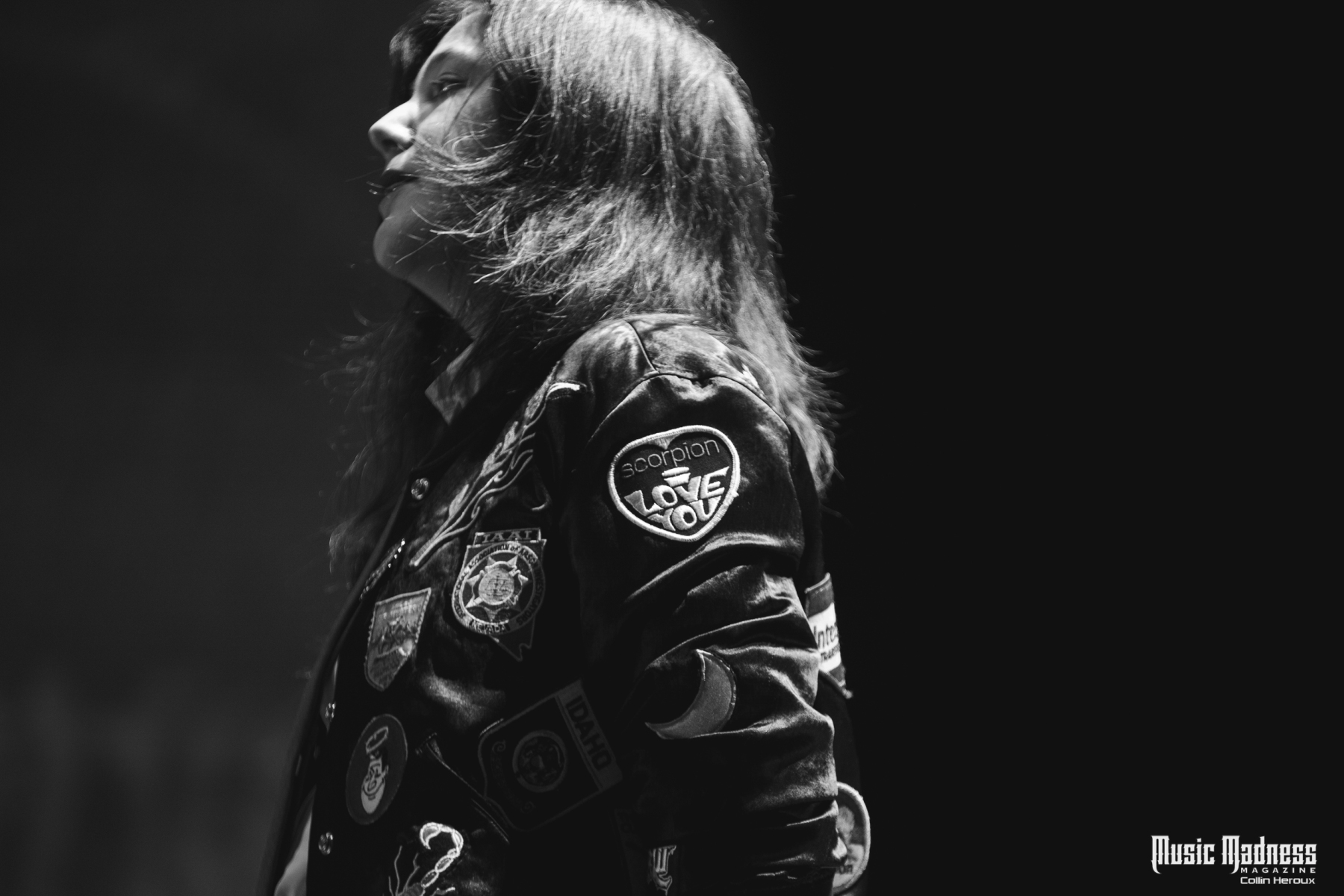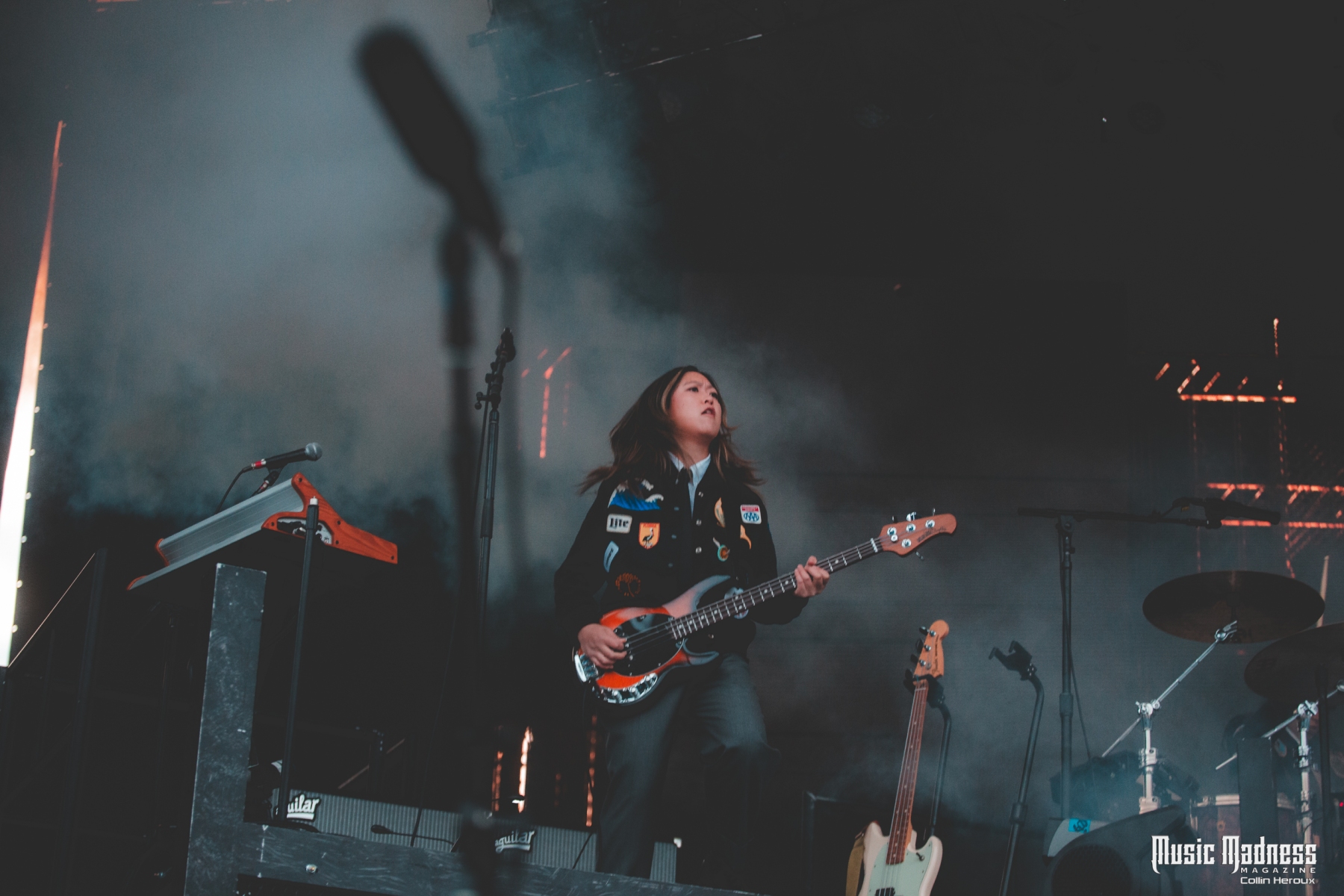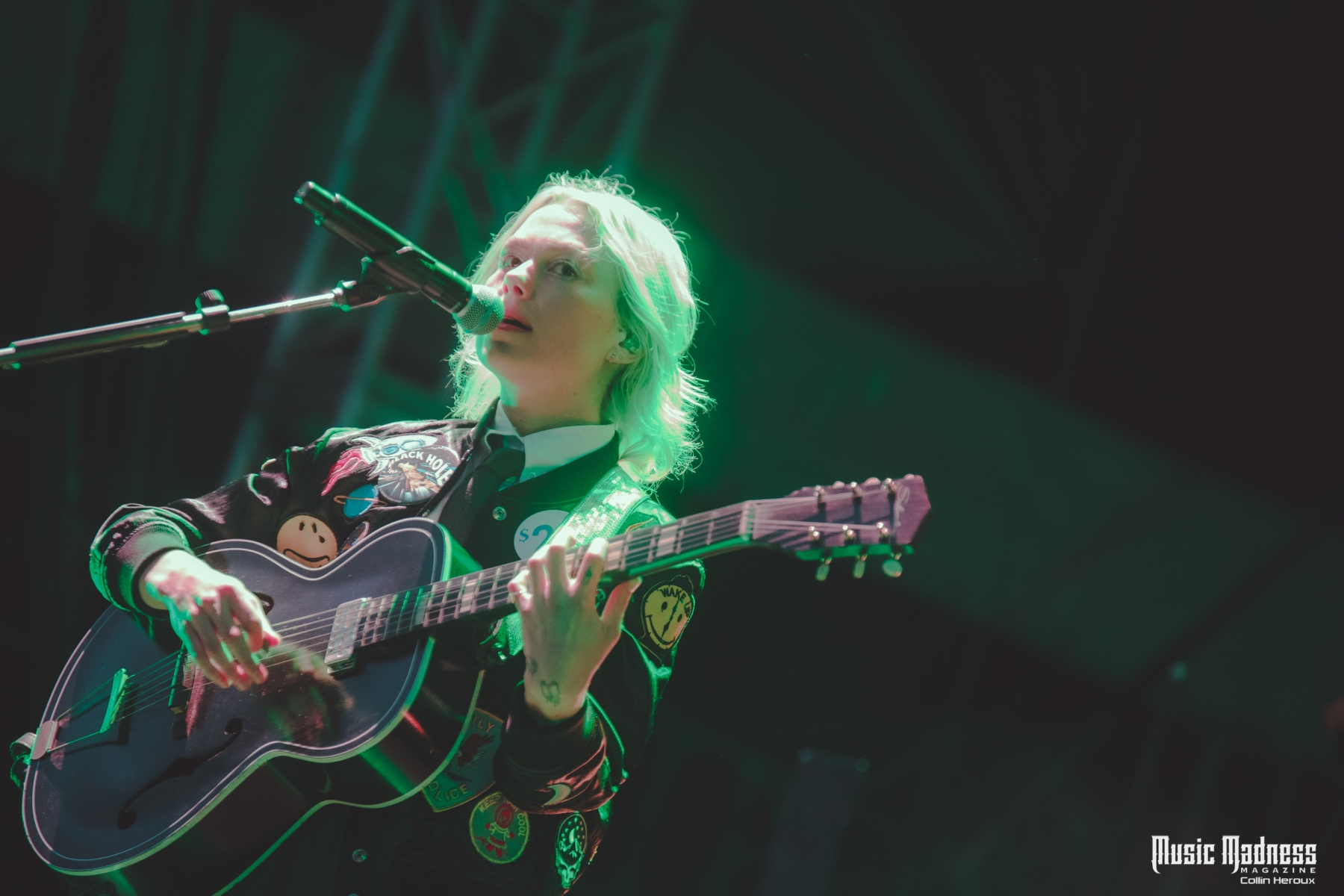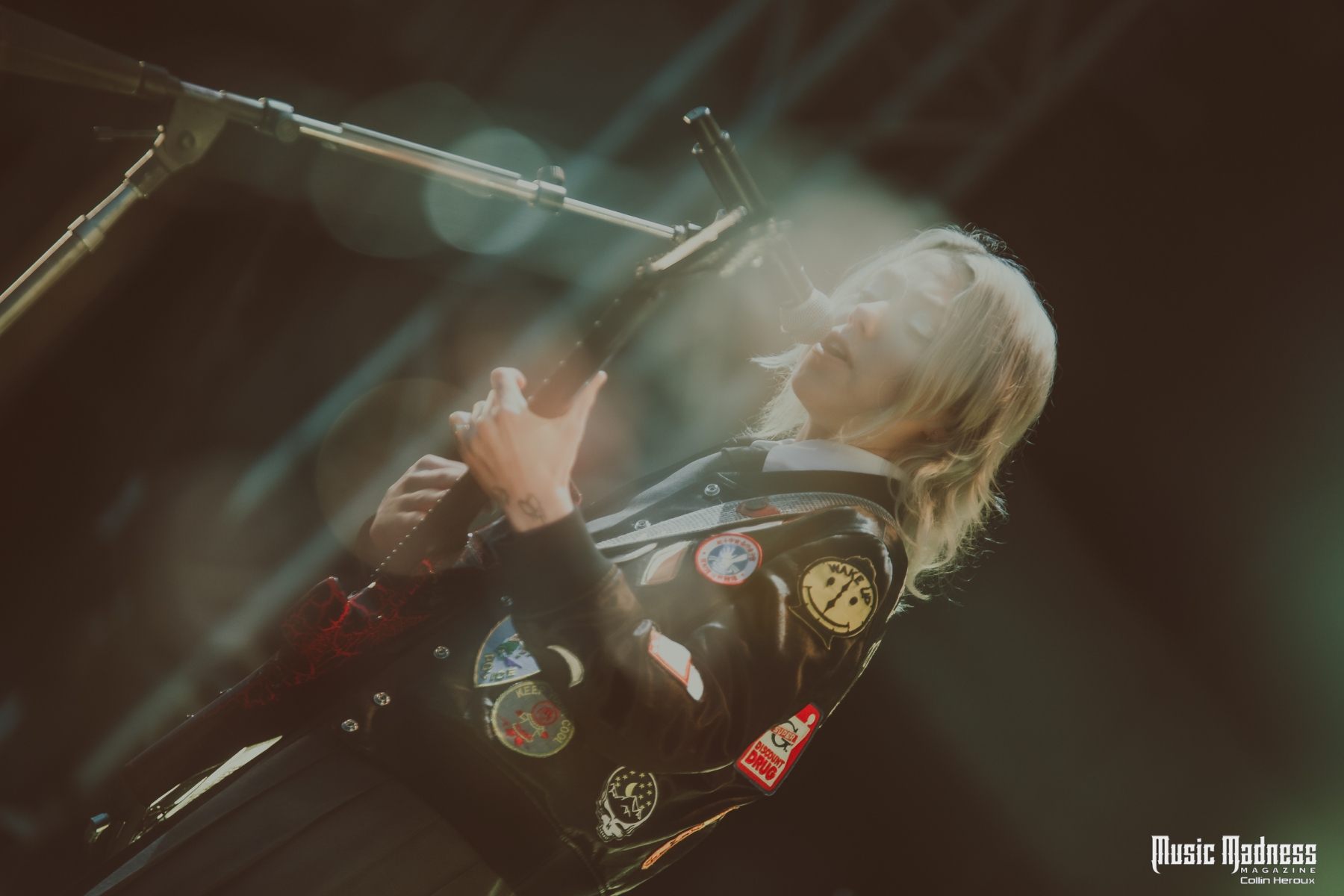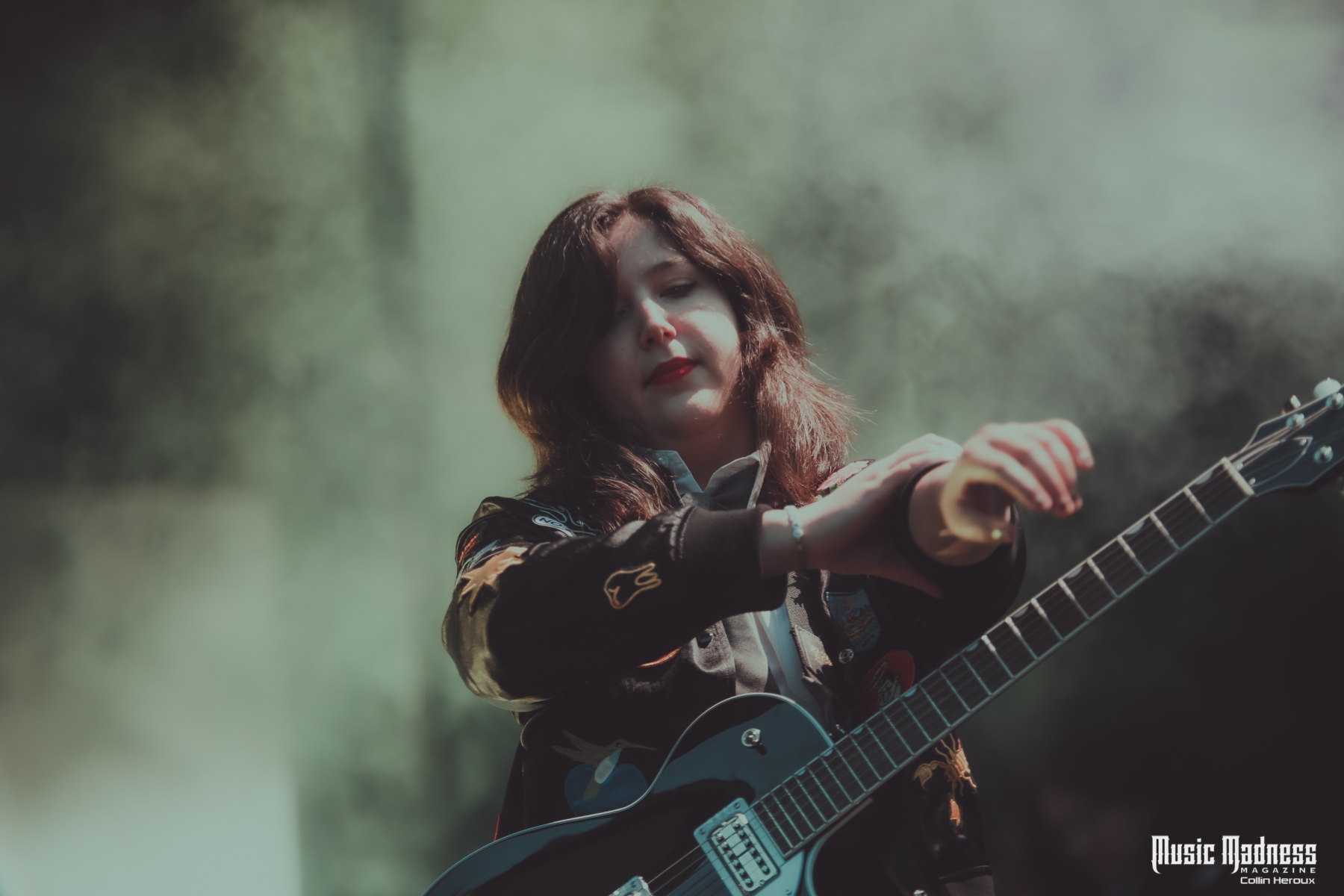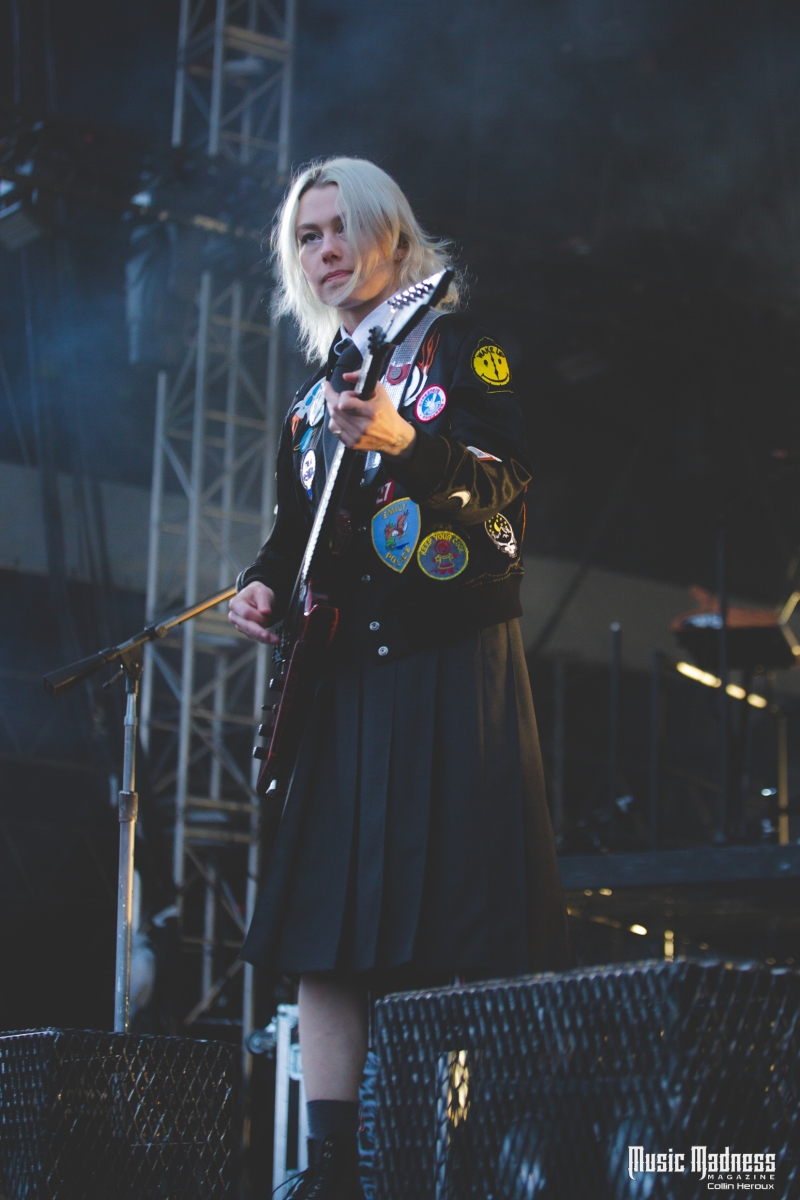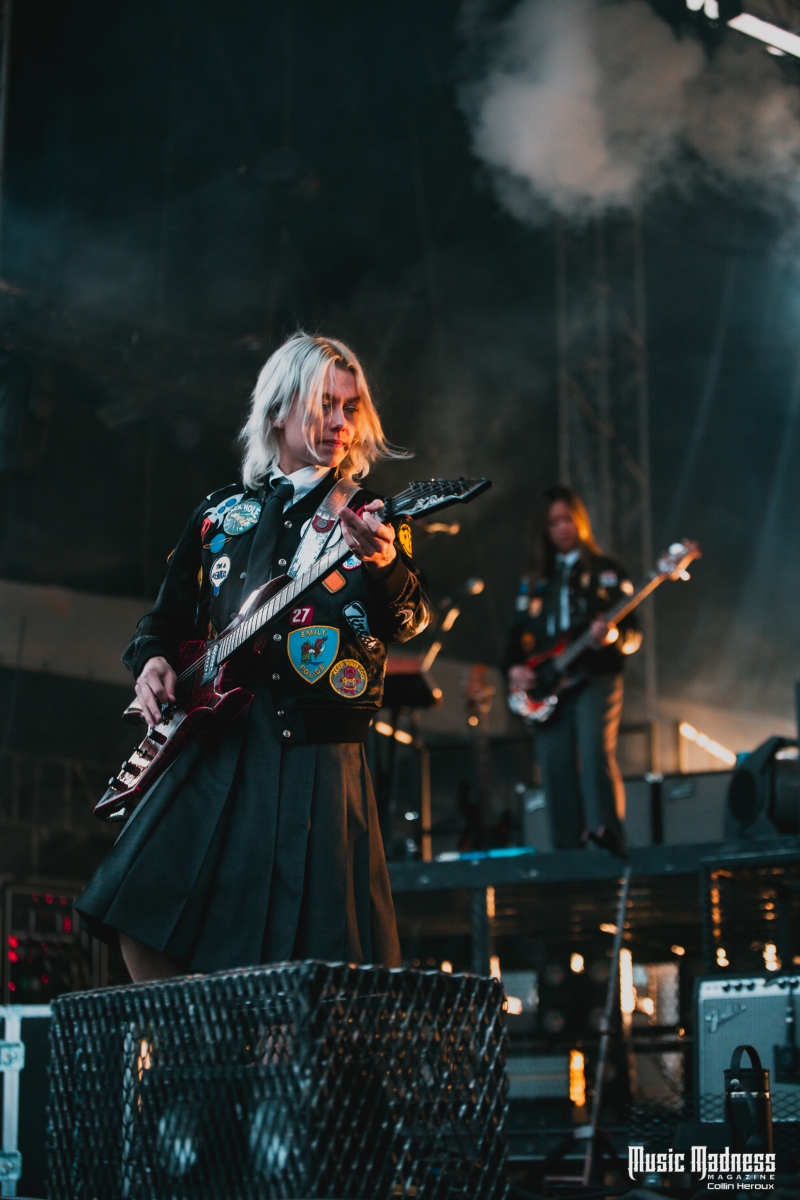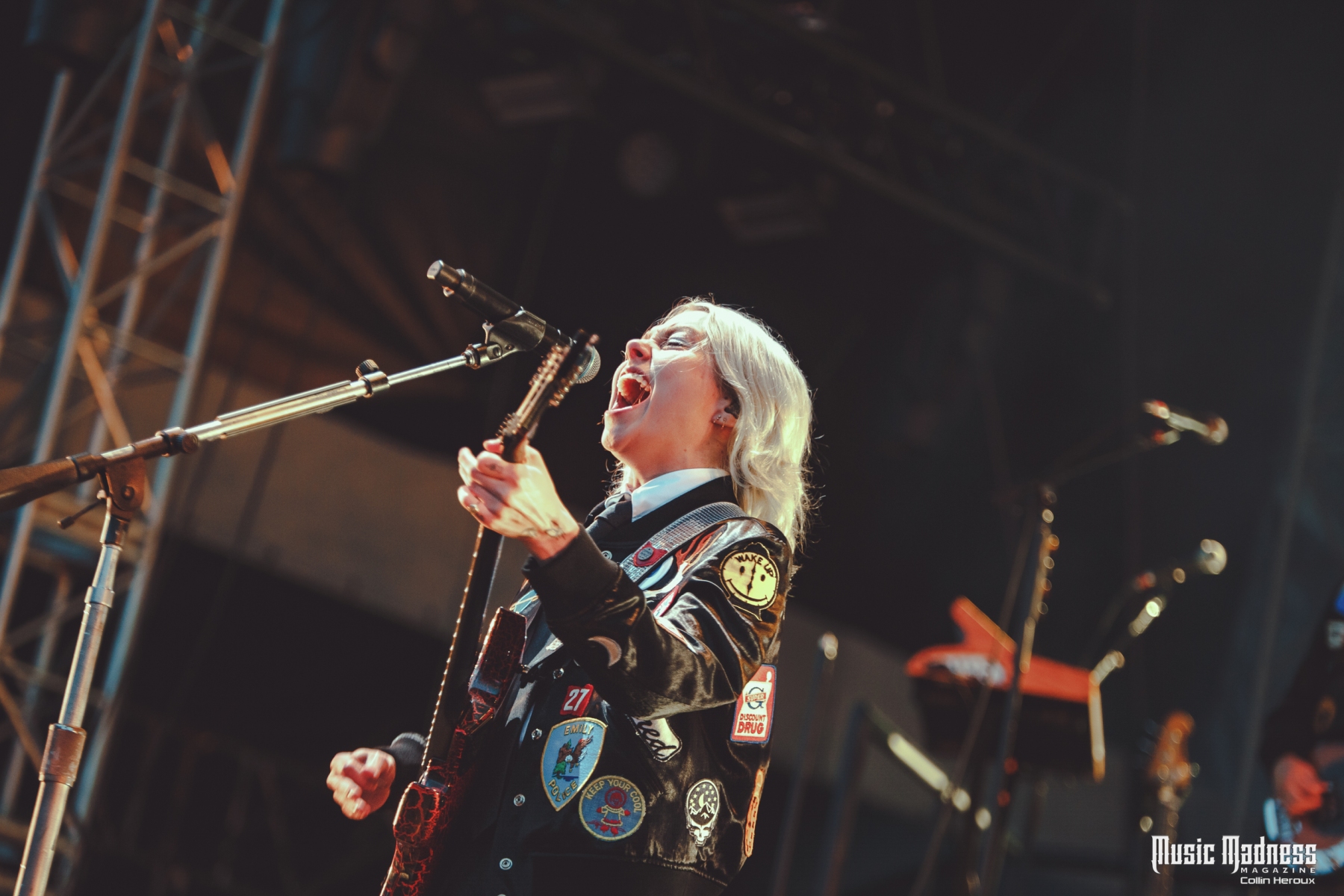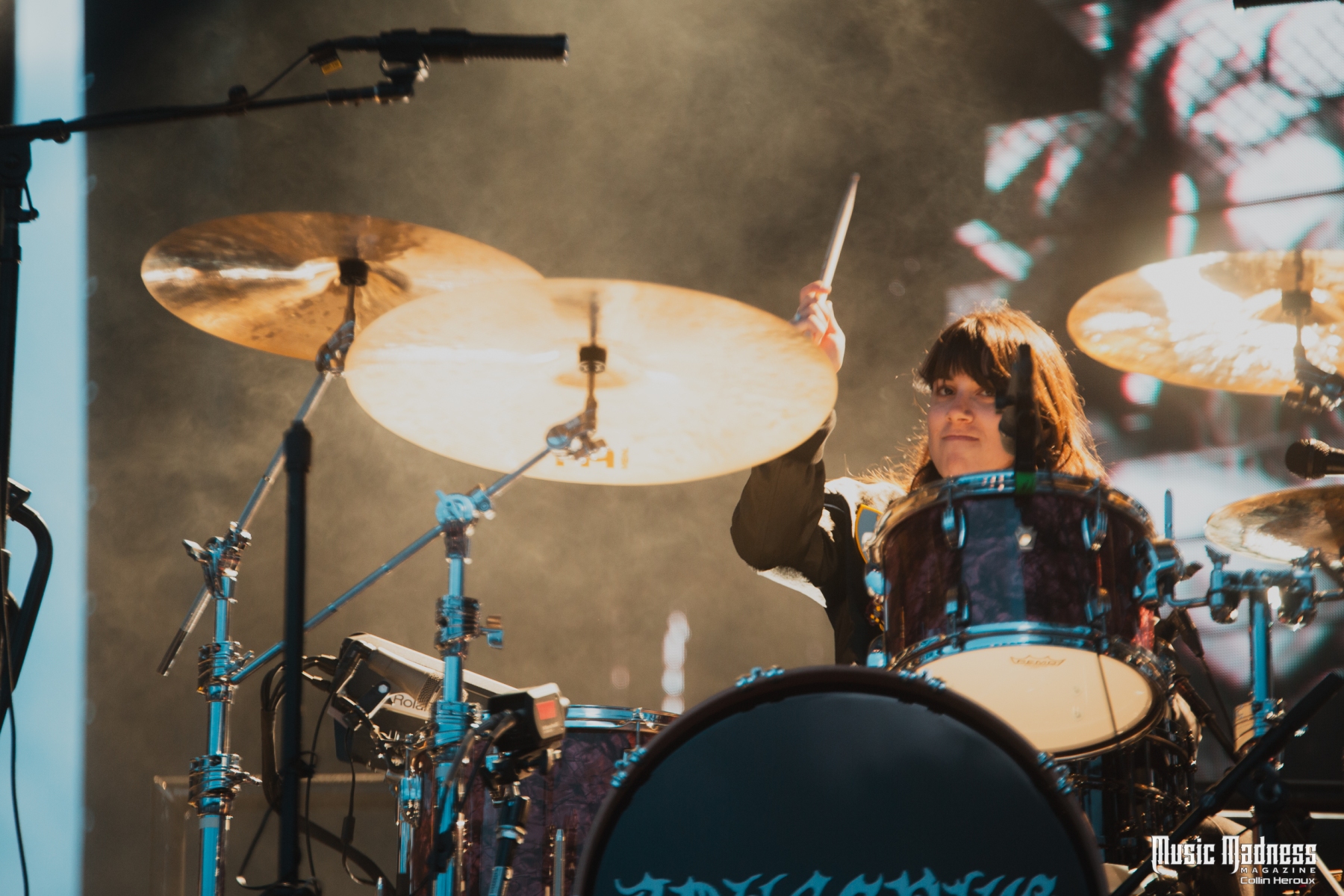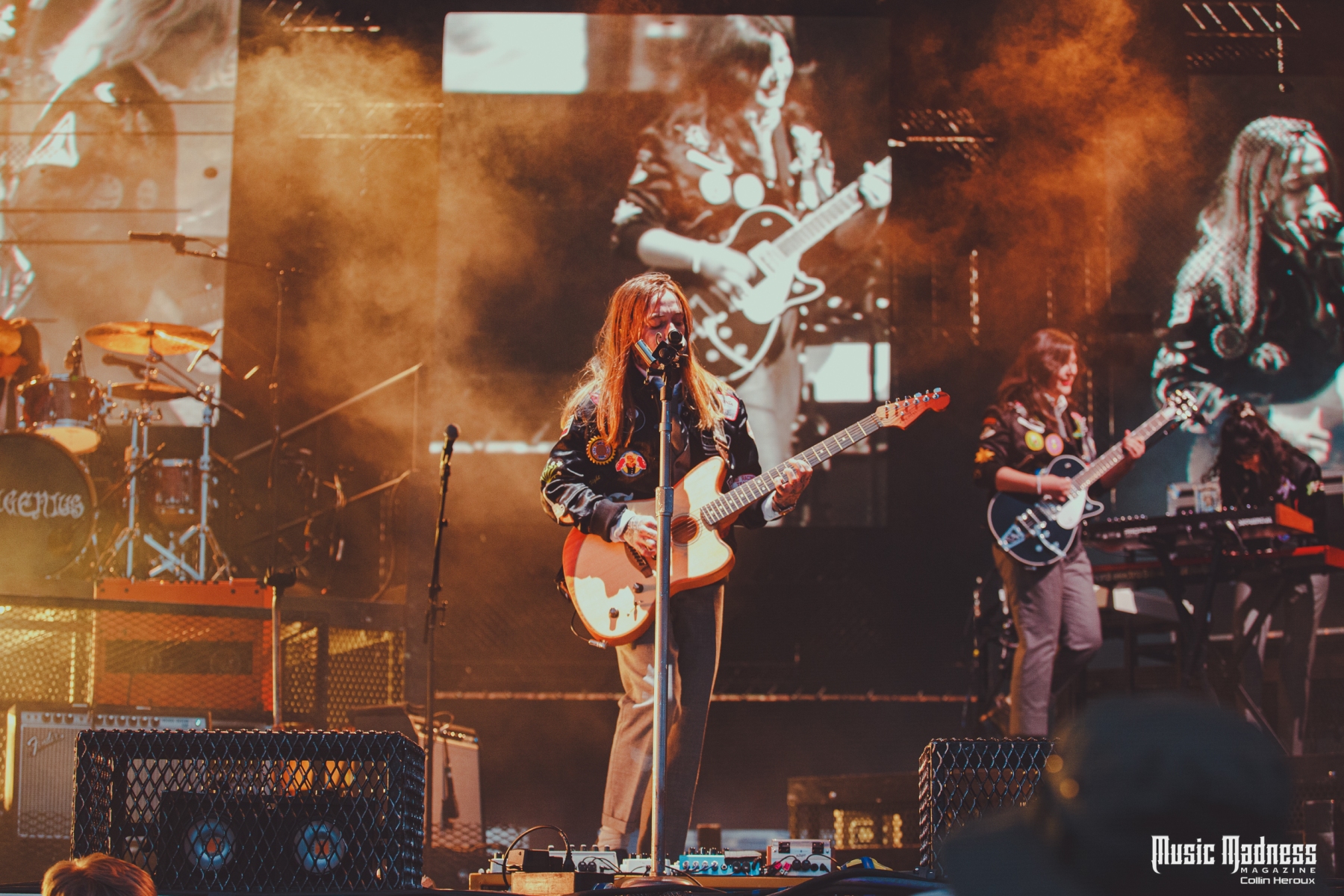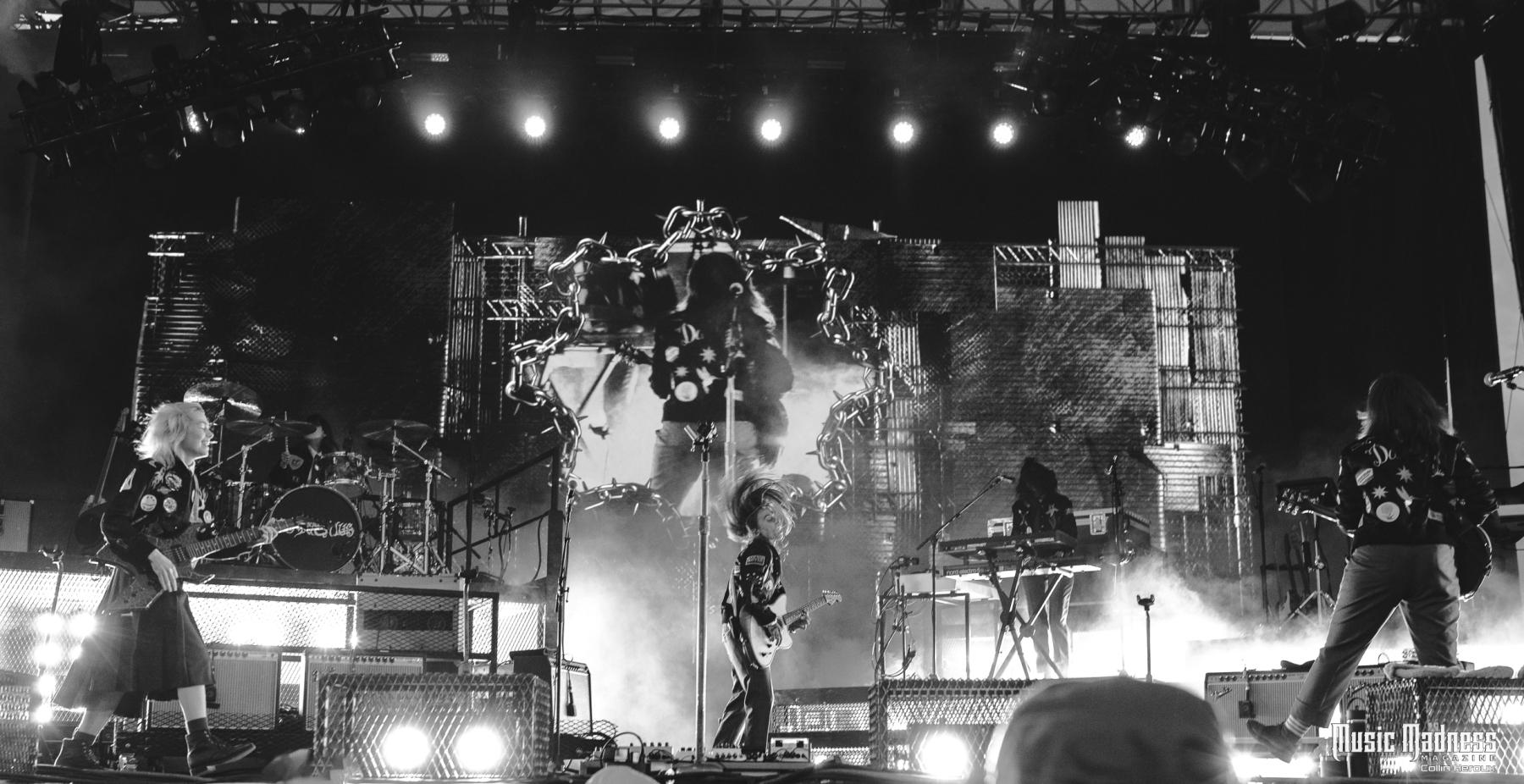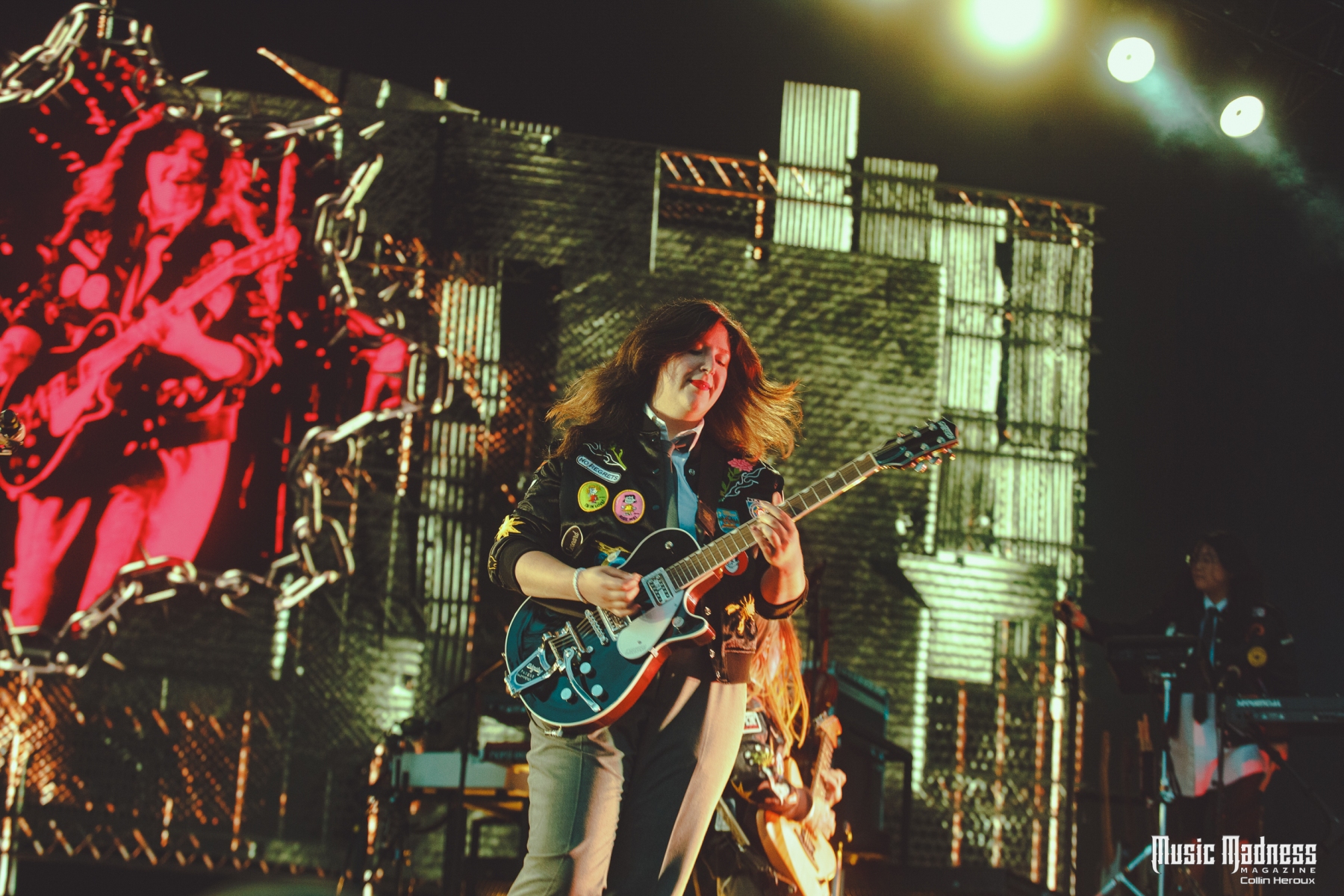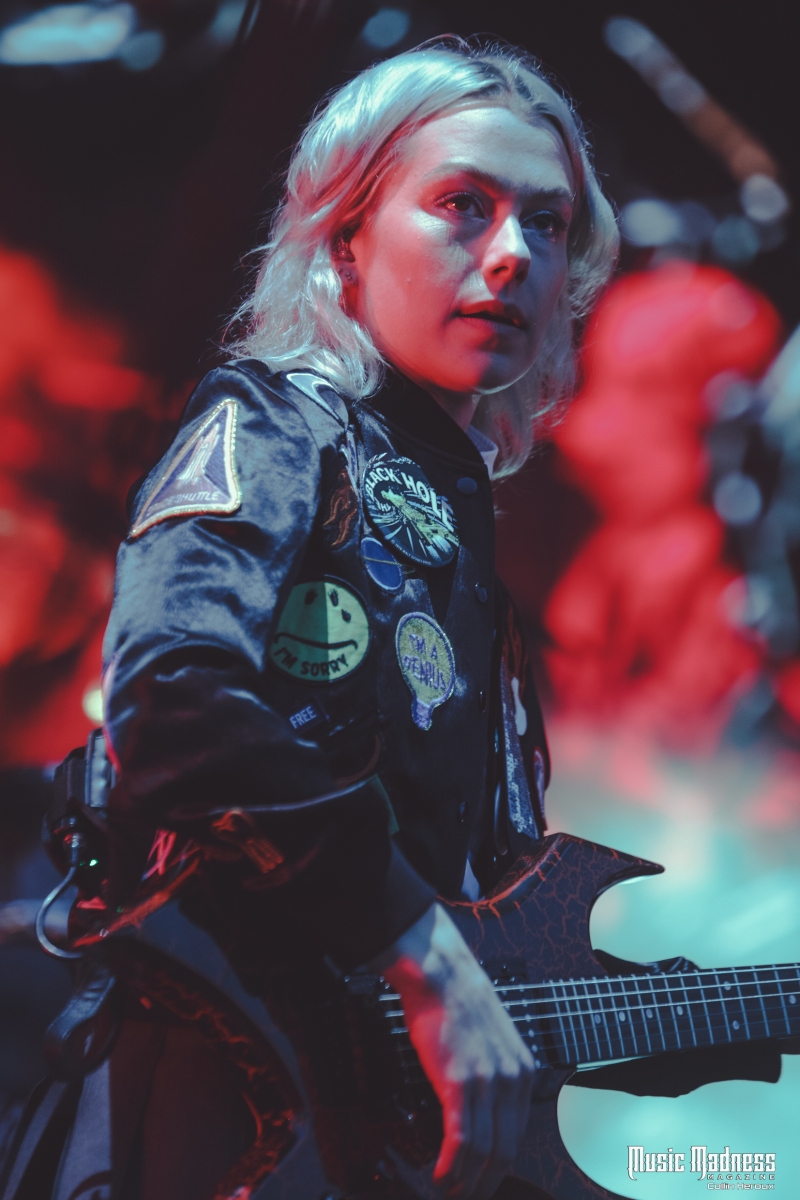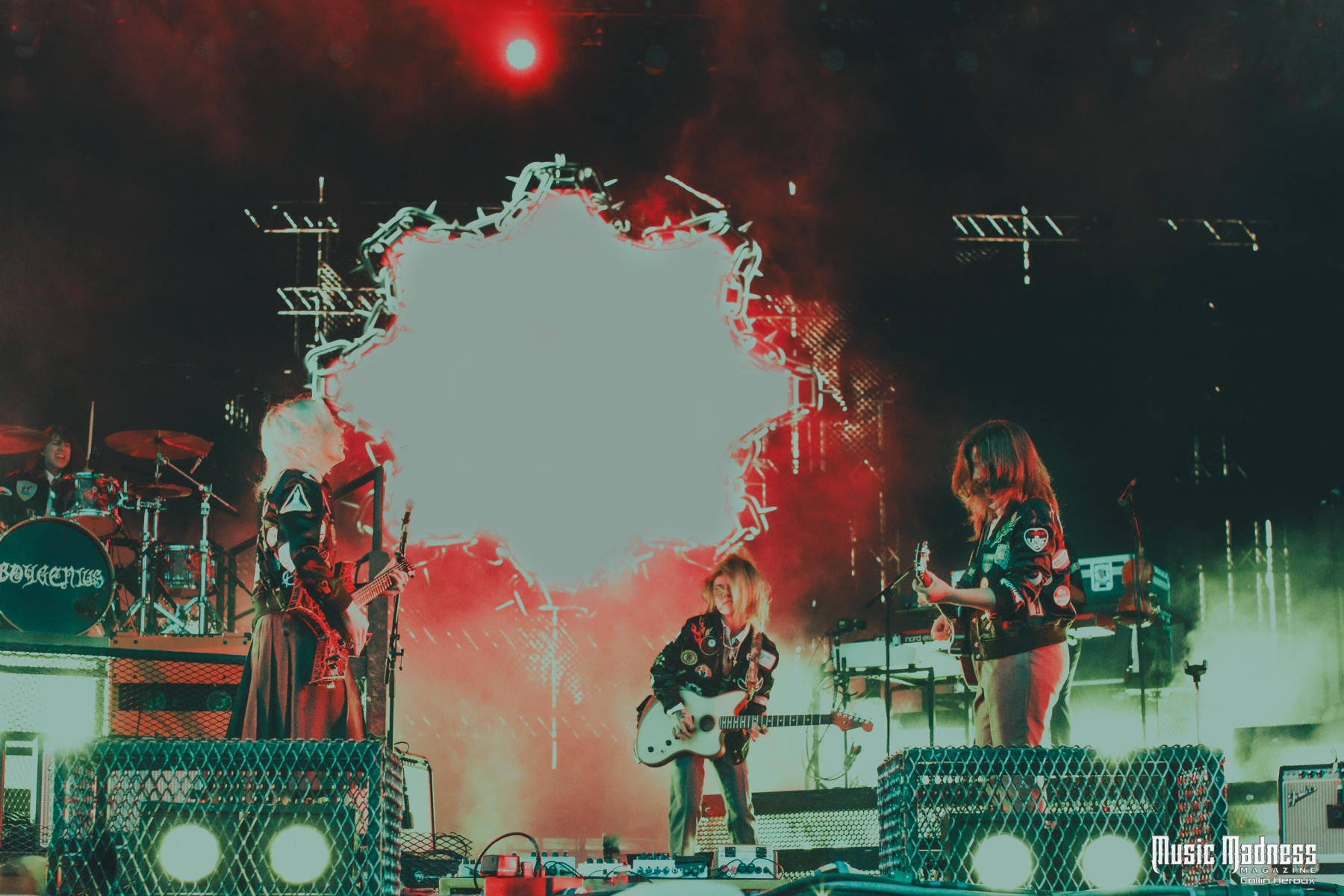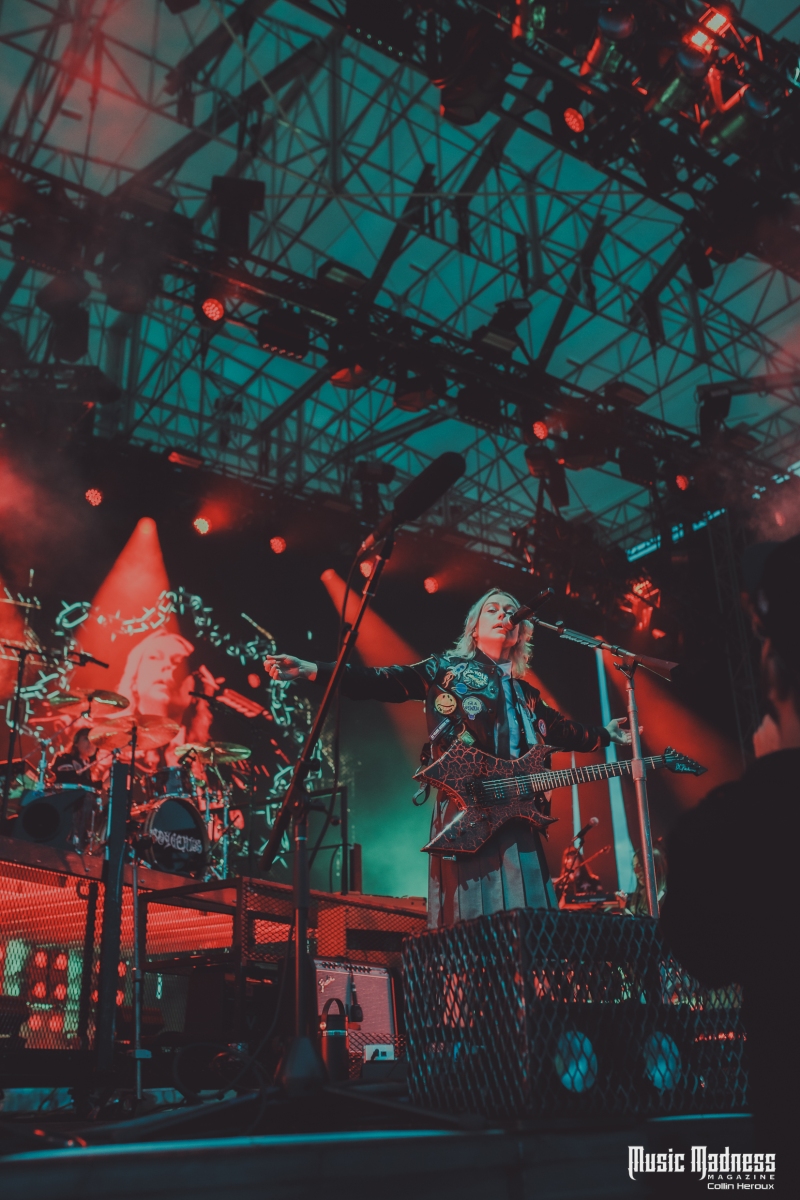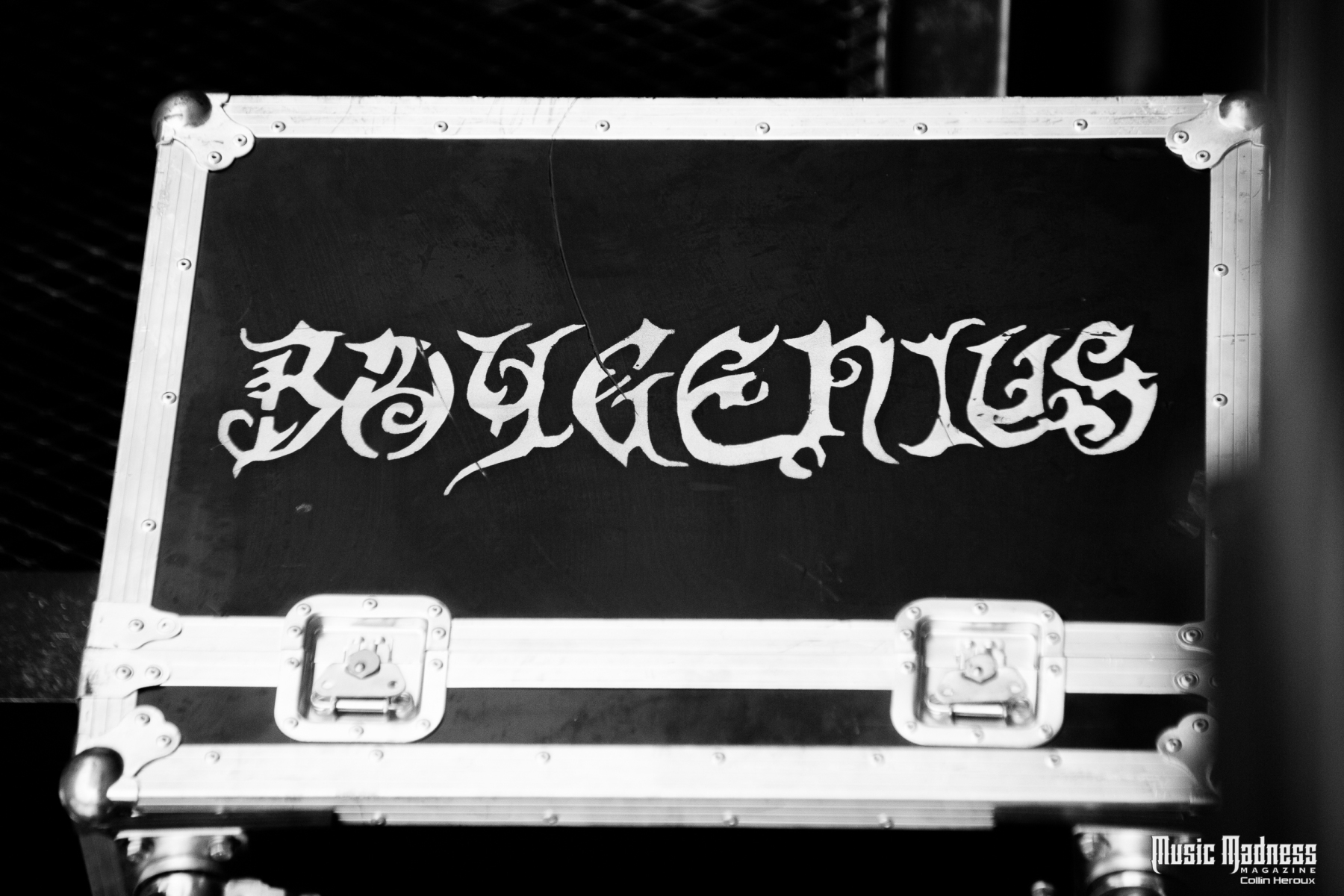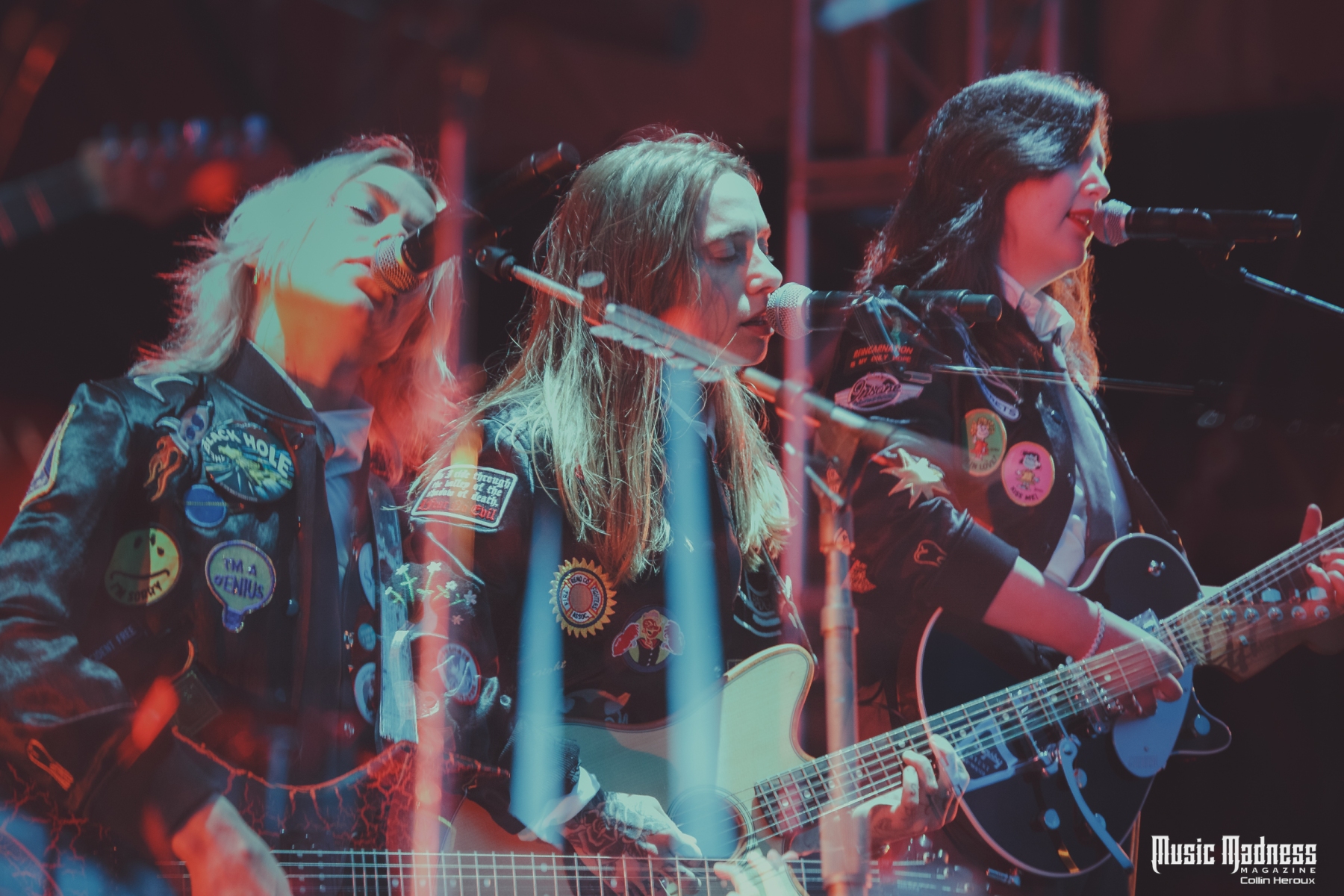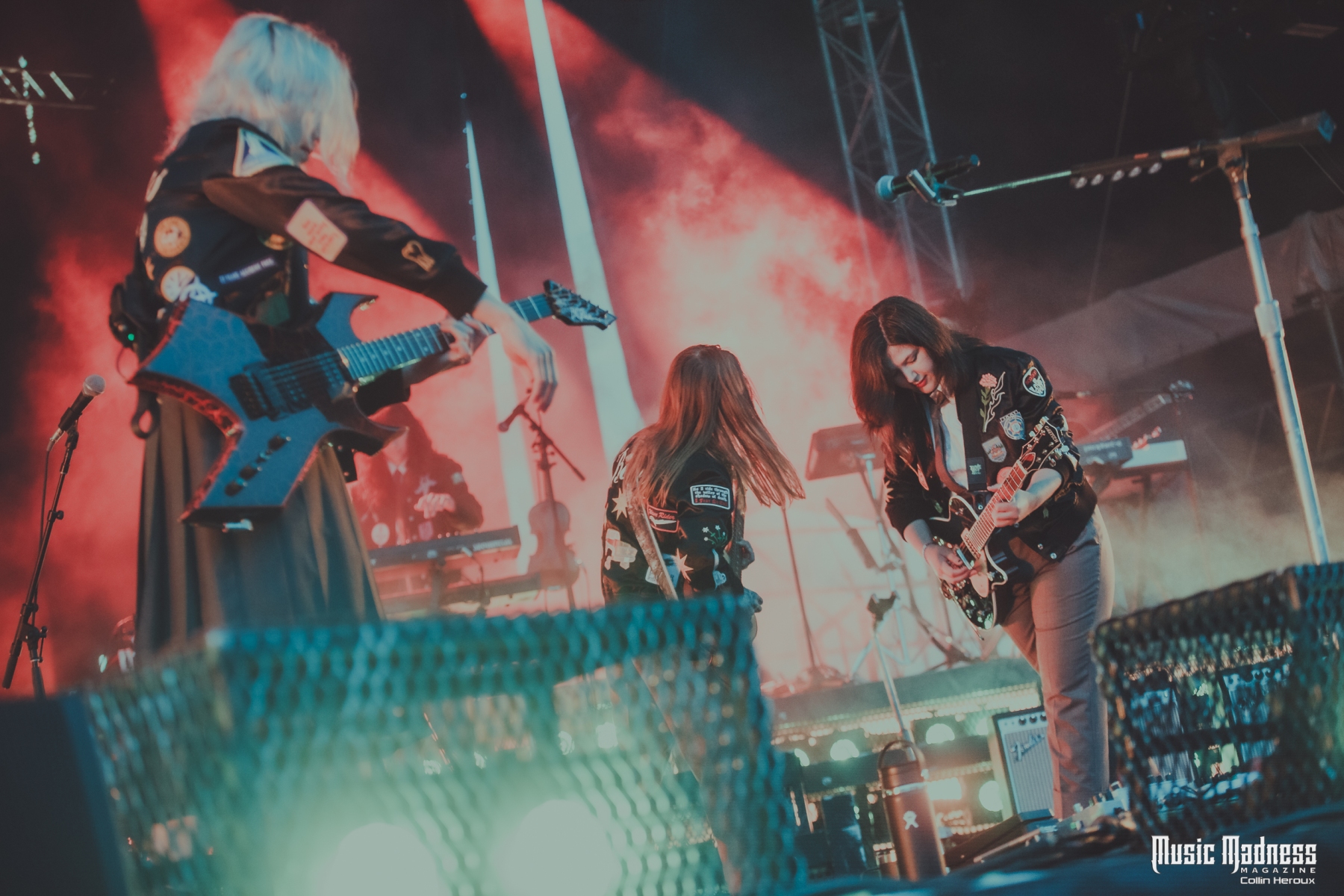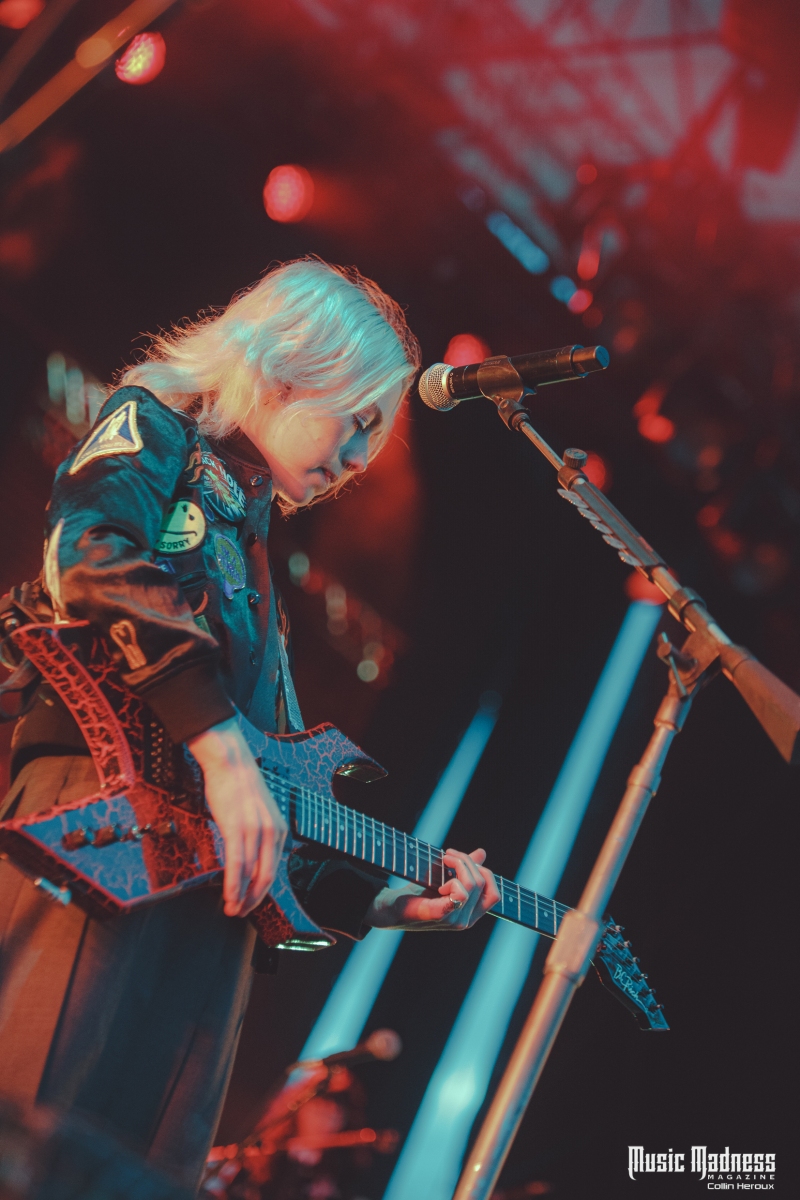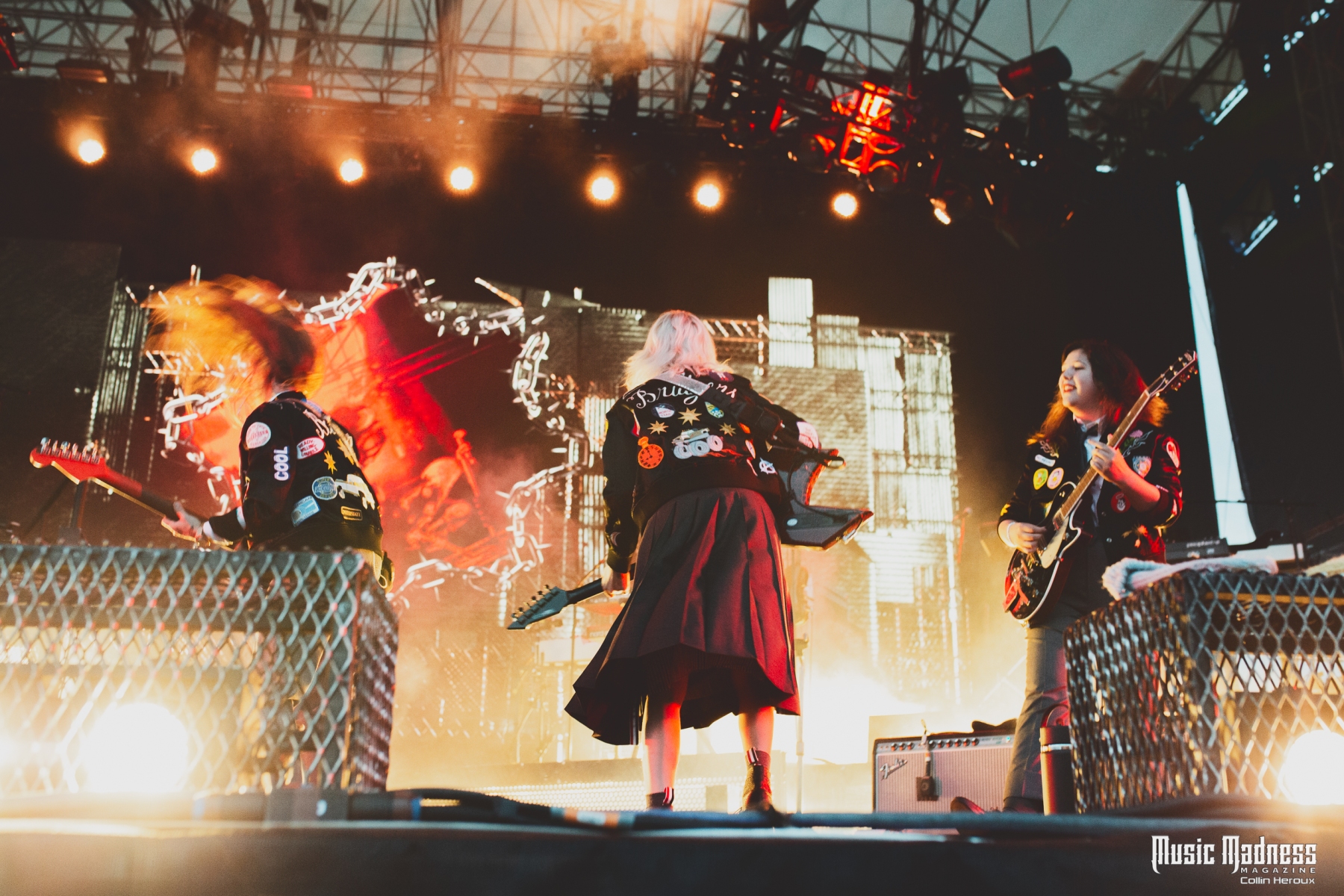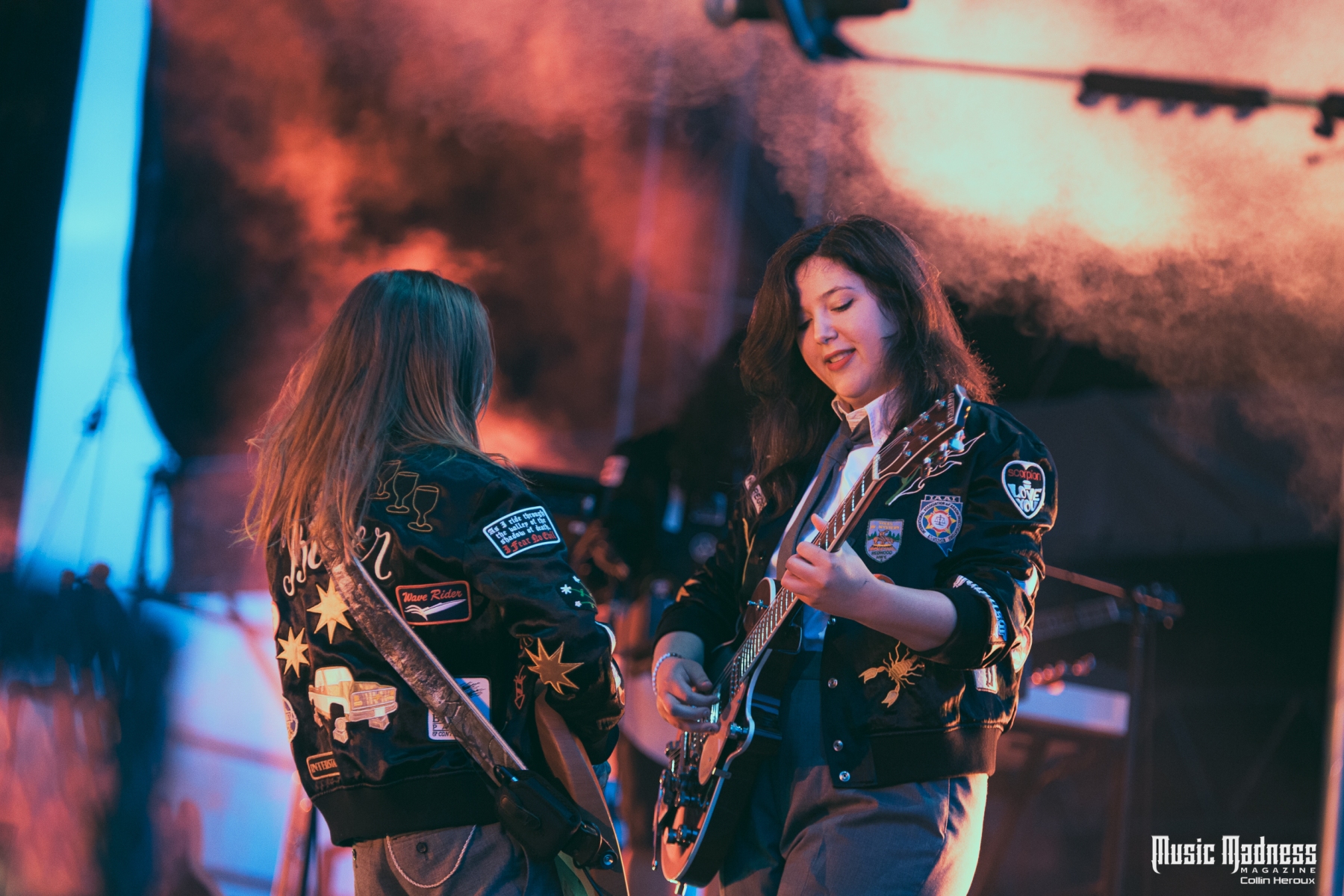
Summer: or, as it’s commonly known among those partial to live music, “festival season”. The boundless possibility of warm weather and outdoor venues draws fans all over the country and the world, but certain pain points can arise from the huge time commitments of three-or-more day fests. Re:SET endeavors to alleviate some of these by offering a pristine, stripped-back lineup of artists every weekend in June, rotating each day’s itinerary between regional cities in a new take on the touring festival concept that seeks to improve the experience for both musicians and concertgoers. Boston’s turn came on the third weekend of the month, and while one day was (somewhat) thwarted by weather, the others were delightful evidence that this format could find a significant foothold in the future.
Friday begins with a lineup heavily influenced by R&B – first up is Fousheé, who performs in front of a hinged mirror that, along with the projection screen at the back of the stage, repeats her image across the entirety of the space. Foushee alternates between singing, and playing acoustic guitar, and then, in contrast to the smoother opening songs, breaks mid-set into a head-banging, pulsating wall of noise with punk and industrial influences, Fousheé approaching the crowd at the end of the stage and spinning her long hair in circles to the beat. Frequent collaborator and later headliner Steve Lacy comes down into the space between stage and crowd early in the set, beaming a smile and watching from amid the gaggle of photographers and security staff. Fousheé’s set is a perfect opening for the night as a whole, forecasting the soulfulness of Toro y Moi and Lacy, as well as the electronica of James Blake, who performs third that day. It’s also representative of the festival as a whole, which overall seems to have prioritized variety in sound even while keeping the schedules streamlined.
While day one dodged any problems from the somewhat cloudy skies above, the Saturday show of Re:SET in Boston isn’t so lucky. Despite the hopes of the thousand-plus people lined up at Suffolk Downs, the rain refuses to abate, and a partial cancellation gives way to a full one as the sky remains dark and starts spewing rain down in sheets by late afternoon. While the city was deprived of seeing L’Rain, Jaime XX, and LCD Soundsystem, UK punks IDLES seized a brief window of opportunity to still perform. The band’s previous visit to Boston saw them packing 3500-capacity Roadrunner, but with that space booked for the night, they have but one option: the area’s beloved Sinclair club and its 500-person allocation. The social media posts go up: Sinclair. Doors 11:30pm. $20. Cash only.
That’s all it takes: soon there’s a line out the door of the club that snakes down the street and into the alley between Harvard buildings, and a counter-line starts forming in the opposite direction from the club entrance of opportunistic would-be attendees trying to beat the rest of the crowd. It’s still raining, everyone is soaked despite the attempts of feeble umbrellas and clumsy ponchos, the anticipation and tension letting loose in a rush as the competing queues both vie for the doors. Once inside, people finally permit themselves to relax and dry off, and around 12:30am the band emerges from backstage. Frontman Joe Talbot is dressed in a pink poncho in solidarity with the crowd, and as usual guitarist Mark Bowen is in nothing but his underwear, for a bit of friendly contrast. But by the second or third song, everyone in the room save for perhaps the bartenders is absolutely drenched again, this time in sweat, raining from everyone’s hair as they thrash about.
The mosh pit in the center of the room is as much a force of nature as anything, superimposing the frustration of the day finally finding resolution on the excitement of seeing a legendarily-energetic band in a room the size of which they might never play again. Talbot says he and the crew missed that feeling, and the entire band is in rare form. Guitarist Lee Kiernan ventures to the center of the room in a longstanding band tradition, and later on Bowen steps out in the crowd, standing solely on the hands of audience members during the pro-immigrant anthem ‘Danny Nedelko’. In contrast to the sets they’ve played in other rotations of Re:SET, this unique show focused primarily on their first two albums: Brutalism and Joy as an Act of Resistance, a one-of-a-kind experience after a harrowing day. The band ends as they often do with an extended version of ‘Rottweiler’ – Bowen is known for singing snippets of other songs during the closing breakdown, and as a nod to the band so many were hoping to see cap the night, he sings the chorus of LCD Soundsystem’s ‘Tribulations’ as he hauls his entire mic stand around the stage, while Talbot joins Jon Beavis at the rear of the stage as a second pair of drumming arms.
But while Saturday night – or Sunday morning, more precisely – was redeemed for some, the festival as a whole still needed a strong Sunday afternoon and evening to rally as a whole. Thankfully, Boston’s lineup for day three was completely sold out and more than equipped to right the ship, headlined by boygenius, the trio of Phoebe Bridgers, Julien Baker, and Lucy Dacus. Each of these three is individually one of the biggest names in music, and their combined efforts recently spawned the record, their inaugural LP which follows their self-titled EP from 2018. The crowd is a collage of boygenius merch and that of the three leads – some licensed, others lovingly (and occasionally hilariously) homemade. But the phrase that recurs most across it all is the final refrain of ‘Not Strong Enough’: “Always an angel / never a god”.
The entire day was particularly animated, beginning with Bartees Strange, who’s been on tour with each of the members of boygenius as part of a rapid rise that began, in all places, with an EP of The National covers. One of those, his rendition of ‘About Today’, appears in the set, and the rest of his songs are drawn from his debut Live Forever and sophomore album Farm to Table. Bartees’ powerful voice is the center of his body of work, which spans a wealth of dynamic range and genres, shapeshifting between sections. One such song from Farm to Table is ‘Wretched’, whose airy, confessional verses transform into a throbbing club beat in the chorus. Well before the time he’s into ‘Cosigns’, which name-drops Bridgers and Dacus, the crowd is fully into his performance, and hands go in the air, captivated from the start.
Second for the day is Dijon, whose music is slower and sultry, but at times crescendos into a huge wall of noise combining effect-laden guitar and huge tom hits on the drums. Quieter parts get accentuated with a lap steel, and the backdrop of the stage shows a top-down view of the band, allowing the audience an uncommon insight into all the inner workings of how the multi-instrumentalists are working to create their songs. Dijon’s voice is raspy when he speaks between songs, but he pushes himself to the last outsized “I love you” of ‘Rodeo Clown’ nonetheless before his set is done.
Clairo, who is from the greater Boston area is one of the most successful musicians to emerge from the state. The stage is adorned with beehive-shaped structures and large, round lights behind each of the band members. While some of Clairo’s songs are quiet and sparse, like ‘Blouse’, others – such as the following ‘Softly’ – are decidedly funkier and bring the audience into a different space in the realm of pop music entirely, employing a bevy of woodwinds including saxophone, flute, and clarinet, and inviting the crowd to cut loose to the point where they sing the big chorus in place of her during the gorgeous golden-hour set.
With the setting of the sun, there’s but one act left for the evening. Re:SET’s plan to streamline the festival experience has proven itself effective, with a stunning range of sounds in just three prior performances, minimal downtime, and none of the annoying stage-jockeying that comes with the typical festival – all in all, a happy middle ground that delivers on scale and grandiosity without burning attendees out with the logistics of quantity. Before boygenius takes the stage, the crowd is addressed by representatives of local indigenous tribes, who take a moment for a land acknowledgement and musical performance that pays homage to those who were here long before this ground was ever called “Boston”. Then a camera feed starts up from backstage, and “The Boys” as they’re collectively known are shown singing ‘Without You Without Them’, the opening track from the record, together. The song is touching on its own but in light of the acknowledgement its words take on additional meaning, trying to touch the totality of what it has taken to bring every individual person to the moment that is now.
With their four-piece backing band set up on tall platforms at either side of the stage, The Boys burst one by one from backstage into ‘$20’, which by contrast is one of the loudest passages on the album. Every song is a group project here, but the ones where Baker takes lead vocals are characterized on the record by prominent, choppy guitar patterns that are a mostly-new dimension to the band’s work. It’s as if this band were fated to exist, the way all of their voices so deftly complement each other to bring forth amazing harmonies, their overall styles similar enough to blend easily but not so much as to diminish the unique style of the lead, if there is one, like how Bridgers’ vocal on ‘Revolution 0’ recalls her ‘Garden Song’ with how her most hushed delivery can be the most threatening. But ‘$20’ builds to a massive conclusion, where Bridgers’ scream outdoes even the massive cathartic release at the conclusion of ‘I Know the End.’ After that whirlwind of a performance, one can finally take notice that the band are all wearing matching outfits, and biker jackets with scarcely any space left open after they’ve been adorned with a sea of patches with references to lyrics found throughout the band’s catalog.
Speaking of that catalog, with only eighteen recorded tracks in the world, the band has enough time to perform the entirety of their discography over the course of their festival set, another benefit of the format where even headliners can be subjected to a time crunch. And not only does everyone, by definition, get to hear the song they came to hear, but they’ve also taken time to arrange songs from their own work to play with the band as a trio of mid-set divergences, as well as a preview of a new song that hinges on the chorus of, “What happened to your boyfriend?” But the lion’s share of the evening is a testament to the strength of the record, a dozen tracks where everyone is at the top of their craft, writing with incredible clarity about friendship, love, and intimacy. It’s three of the most talented individuals in modern music, all visibility overflowing with joy to be there playing together; and even when Bridgers flubs a lyric at the end of ‘Cool About It’ they share some friendly banter back and forth that makes it feel like we’re all witnessing a practice-room conversation in front of thousands as they humorously workshop where they got off-track before finishing the song. boygenius truly presents a friendship unburdened by expectation, where everything from the most open-hearted introspection to the silliest aside about Leonard Cohen is welcomed and built up.
Dacus gets some of the most thoroughly heart-piercing tracks from the record, like ‘True Blue’ and especially ‘We’re in Love’. The latter song goes to the same place as songs like Andrew Bird’s ‘The Sifters’, wondering and hoping that if a relationship in this life doesn’t work out, you might be able to find that same person in the next and try again. It’s one of the most stripped-back affairs of the whole record, and despite the sheer number of people in attendance, it’s so quiet one can hear the clattering of the Blue Line nearby which otherwise hasn’t been audible for much of the day. She goes through certain touchstones from the universal – like how a smile lives in a person’s eyes as much as it does in the rest of their face – to the much more personal, like going to karaoke when you’re forlorn, a tendency that might not resonate with some but is all too familiar to those who know. Dacus points out afterward how many people are wearing pink carnations inspired by one of her lyrics here, and in keeping with the emotional gravity of the song, Bridgers takes a moment to talk, on this Father’s Day Sunday, about how the band really represents, “What it means to find your dad, outside of your dad.” Dacus smiles and quips back: “You’re just gonna go and be that earnest, no warning?” and they all crack up.
Bridgers descends closer to the crowd for ‘Letter to an Old Poet’, the closing track of the record. It’s one of the rawest moments in their entire body of work, and her voice shakes just a bit when she delivers the pivotal line of “You don’t know me”. What follows is a reuse of a structure from ‘Me & My Dog’, to exemplify how she’s grown in the years since the earlier song was written. It works perfectly as the record-ender, but there’s one more song of the live set, ‘Not Strong Enough’. Baker’s line about singing ‘Boys Don’t Cry’ is coincidentally funny considering The Cure is playing maybe 45 minutes to the south, and the lights beam out onto the audience as they sing “Always an angel, never a god,” as they’ve been waiting to do all afternoon. The Boys return after a brief encore break and begin again with ‘Ketchum, ID’, and this time it’s Dacus and Baker who leave the stage to get up close to the crowd. Bridgers spins onstage as the audience sustains the final note for them, and then looks out at everyone, then to the other two, and declares: “This shit is so fun.” ‘Salt in the Wound’ is the evening’s true last song, and by the end, the trio are tackling each other and rolling around onstage, even Baker with her guitar. And in that closing moment, there’s nothing to do but be awed by the sheer power of what the band brings to bear in each one of their shows, and among those emotions, most weighty of all, is joy – and everyone takes that home with them, into the night.
Photos and words by Collin Heroux

